Antique chair styles changed throughout the 18th, 19th and 20th century and below we list the different styles, designs in a comprehensive list from A – Z with pictures. You can use this for identification along with discovering the different the names. Antiques world also offer quality antique chairs for sale and you can see our full selection here. All our antiques are professionally cleaned and restored using a high quality furniture wax whilst enhancing the original finish and patina.
Armchair – A comfortable chair that has been upholstered with arms. These were first made in the 19th Century and continued up to this day.
Art Deco chairs – Chairs made in the periods of 1920 – 1930s. You often could find these with a matching table like this Quality Art Deco Golden Walnut Table with Matching Four Chairs standing on four cabriole legs with pad feet and beautiful shell carvings.
Arts & Crafts Chairs – Made by hand in the traditional manor using solid woods in the late 19th century. They are usually simple in design but extremely well built.
Bar Back Chairs – A design of antique dining chairs from the early 19th century. This set is constructed from rich quality Mahogany timbers with a curved bar back and stand on turned octagonal tapering front legs.
Balloon Back Chairs – Victorian chairs with the back curved similar to a balloon shape. You can see more information on this design here.
Barley Twist Chairs – A set of chairs with barley sugar twist carved uprights or legs.
Bedroom chairs – Usually part of a bedroom suite in a pair or as singles. This example has been constructed using the Finest Quality Burr Walnut and with Clean Button Back Upholstery.
Bergere Chair – A very decorative 19th Century with Caned sides and back. can come with upholstered removable cushions. More information can be found here.
Box Stool – Usually from the 17th Century and made from Oak. They have a hinged lid, turned legs and attractive carvings and are of a nice smaller size.
Button Back Chair – Victorian chairs often were upholstered in Leather with beautifully scrolled carved arms and matching stud trim. They would have buttons sewn into the backs by hand for decoration and this made the chairs look highly effective.
Carver Arm Chair – A chair or pair of chairs with arms used at the end of a dining table. This Unusual Pair are made from Oak by the renowned makers JAS. Shoolbred. The backs are curved with upright splats and very unusual central carved motif in the nautical design.
Chaise Lounge – A Victorian design of an upholstered sofa (a long couch) with only an arm on one side. The shape of a chair is long allowing you to fully lie down with your legs up.
Child’s chair – Made for small children, usually the same design as the larger adults chair but in a smaller size like this Georgian Baby Windsor rocking chair.
Chippendale Chairs – Cabinet maker Thomas Chippendale produced some amazing chair designs in the 18th Century. These designs were so popular, they were copied throughout the Victorian and Edwardian eras and still copied today. These chairs are referred to ‘Chippendale style’ as they are not the original but still with the same amazing designs.
Desk Chair – A single chair with arms used to sit up to a desk in an office. Very similar to the carver arm chair with curved moulded back and two splayed out-swept arms, splayed back legs and fine turned front legs.
Dining Chairs – Sets of chairs used for dining around a table. First seen in the Georgian period but are still used today. Some of the finest sets come from the 19th century with curved bar backs and spectacular central carving.
Double Chair-Back Settee – A Chippendale design with two beautifully shaped scrolled chair backs combined into one chair.
Edwardian chairs – Chair made between the periods of 1901 and 1910 during the reign of King Edward VII’s. Edwardian furniture was mainly focused on older styles in their designs but they adapted them to fit the more up to date living with comfort in mind. Machines were used in most furniture manufacture of this period.
French Chairs – 19th century French chairs were usually made from Walnut with scrolled arms and elegant carved cabriole legs.
Gainsborough Chair – An armchair first made in the mid-18th century but reproduced in the late 19th century. It is a wide chair with a high back.
Georgian chairs – Georgian Furniture refers to styles that were made between 1714 to 1820. During this period some amazing chair designers started like Chippendale and Hepplewhite. The timbers used were of the highest quality and chairs were made by hand by master craftsmen.
Gillows chairs – Gillows of Lancaster was a well known cabinet maker who only made the finest quality antique furniture. His chairs had the iconic turned reeded design leg and are very sought after by collectors.
Gilt Chairs – Decorative chairs with the frames gilded to create a ‘gold look’. These are often from the 19th Century and can have details like ribbon carvings, caning and beautifully turned carved legs.
Hall chairs – Hall chairs were situated in the entrance or hall and used for guests to wait until they were invited into dining rooms. They were also used for servants to wait during servings.
Hepplewhite Chairs – Chairs designed by the furniture designer George Hepplewhite. His designs were copied throughout the 19th and 20th Century called ‘Hepplewhite style’ chairs.
His and Hers Chairs – Two chairs made in the same design but one larger for the gentleman and one smaller for the lady.
Inlaid chairs – Chairs with the use of fine inlays in their decoration. This was mainly used towards the end the the 19th century and in the Edwardian chair.
Metamorphic Library Steps / Chair – Made in the 19th century, Metamorphic Library Steps are a type of archaic dual use furniture, usually constructed from solid oak. They consist of a small folding staircase that can be transformed into a chair. These were first built in the mid eighteenth century for private libraries and offices, these rooms often had high ceilings and floor to ceiling bookshelves, so move-able library steps were created as a form of domestic furniture.
Mouseman Chairs – Mouseman Chairs were made using solid oak with the signature lattice back and iconic carved mouse on the leg.
Ladder Back Chairs – Chairs with a ladder design back, like these 18th Century Country House Set of 4 Antique Georgian Ash, Oak and Elm Ladder-Back Chairs.
Leather Chair – A chair upholstered in Leather like this country house leather button back arm chair dating from the Victorian period with a mahogany frame.
Library Chair – Made specifically for the Gentleman and used in the Library or study. They are comfortable Victorian chairs and often made by well known cabinet makers. This example is stamped by renowned makers Riley and with Arts and crafts influences.
Music Chair – Used for playing music with a Harp, Cello or Violin. These will usually have a stunning shaped back with fine carved back rail and the seat is adjustable and will rotate.
Office Chairs – Mainly from the Edwardian period, they can come in pairs for use around the office. They will often be upholstered for comfort.
Ottoman –Victorian Antique Upholstered Ottoman, some of large proportions so offers ample storage. They were often seen at the bottom of a ben. This example has a buttoned lid with beautiful concave shaped sides, solid mahogany moulded edge and fine turned feet, finished with castors.
Painted Chairs – Antique painted chairs can be unusual and decorative. This His & Hers pair are from the Victorian period with gilding, unusual tapestry seats, one with a Gentleman with dog and the other with a Lady in a beautiful garden scene.
Penny Chair – Usually county made in woods such as locally sourced Elm or oak. Penny Seat Antique Chairs are similar in design to the Windsor chair but with a circular moulded seat.
Pugin Chairs – Pugin was a furniture designer who made Gothic style furniture. These Victorian Golden Oak Antique Dining Chairs are in the Pugin Design, Extremely Rare and of the Finest Quality. Each has a spectacular carved back in three different designs with stunning carved finial and ebony and bone inlays.
Prayer Chair – Was used in the early 19th century primarily intended for private devotional use, but was also be found in churches. They can be seen upholstered in tapestry fabric.
Queen Anne Chairs – Original Queen Anne chairs were from the early 18th century but are very rare. These designs were copied in the late 19th Century. They were usually in Walnut with the back having a vase shaped back splat and cabriole legs with pad feet. this is a superb example of Antique Edwardian Dining Chairs in the queen Ann design.
Regency Chairs – Regency chairs were made between 1811 to 1830, when Prince George the Prince of Wales was Regent. Regency furniture used unique features within their designs like Corinthian turned columns, reeded edges and exotic woods were used like Rosewood, Zebra-wood and Brass inlays.
Rocking Chairs – a chair mounted on curved bars which can rock back and forth. This is a good example of an unusual Pair of Arts and Crafts Antique Oak Rocking Chairs.
Sabre Leg Chairs – This is where the leg is splayed like on this set of six Regency Antique Dining Chairs. This set has a double sabre leg as both the back and front legs are splayed.
Salon Suite – A 19th Century three piece suite (or more) consisting of a settee, arm chair and ladies chair. This Victorian example has a walnut beautifully carved frame, with turned legs and castors with serpentine fronts.
Side chair – an occasional chair made to fit anywhere in the home. usually at the side of a wall and used for guests.
Smokers Bow chair – Often made in the country manor from timbers such as Elm. They have curved backs with shaped arms, turned spindle upright supports and a figured shaped seat. Very comfortable and come with wonderful charm.
Ships Chair – Usually made in the Victorian and Edwardian eras, they come with the quality you would expect from ships furniture that has to endure several years on the high seas. They will usually have beautifully carved scrolled backs with decorative carvings and turned upright supports. This example had a decorative cast iron lion head base with the original number plate from cabin number thirty nine.
Slipper Chair – Made in the Victorian era, used to comfortably seat high-class women whilst they put on their shoes or slippers. They are usually upholstered and buttoned.
Sofa / Settee – Made for comfort in the Victorian period but carried on throughout the 20th century. This is a superb example of a Victorian Walnut Antique Settee / Sofa with a shaped buttoned back, moulded carved edge, scrolled sides and elegant cabriole front legs.
Spoon Back Chairs – Spoon Back Dining Chairs were made in the Victorian period with simple but beautifully figured curved shaped backs and central carved back splat.
Stool – The stool has been seen as far back a the medieval times and is one of the earliest forms of seating. The stool was used in rural farm houses, kitchens or public rooms with the three legged stick stool of a simple trestle construction.
Swivel Chair – An office or desk chair that can swivel 360 degrees. These were often made from oak in the Edwardian period by makers such as Maple & Co.
Victorian Chairs – Chair made between 1837 – 1901 in the reign of queen Victoria. Victorian Furniture was extremely well built using high quality timbers. They made large sets like this Set of 12 Victorian dining chairs constructed from the finest quality solid oak with decorative barley twist turned upright supports and rope twist moulded edges.
Wainscot chair – known as a ‘panel chair’ or ‘joined chair’ and usually made of oak from the 18th century. It gets its name from wainscot panelling used in early country homes. They were often copied in the Victorian period like this example gifted to Ulverston Baptist Church in Feb 1936 with a brass plaque on the top. It has a magnificent carved back and front edge with a central Griffin.
William IV chairs – Chairs made from the period of William IV when King William was on the throne in England from 1830 to 1837. Fine timbers with unusual features were used like Cuban Mahogany.
Window Seat – made to sit next to a window, this example has a beautifully figured seat with unusual column turned sides and stands on four elegant cabriole legs.
Windsor Chair – These chairs were made as as far back as the 16th century but were most popular in the 18th Century. They were made using locally sourced native woods such as Oak, Elm, Fruit-woods and the rarest in Yew wood. They usually have a curved back with pierced back splat, has out-swept arms and turned legs. The best examples will have a crinoline stretcher.
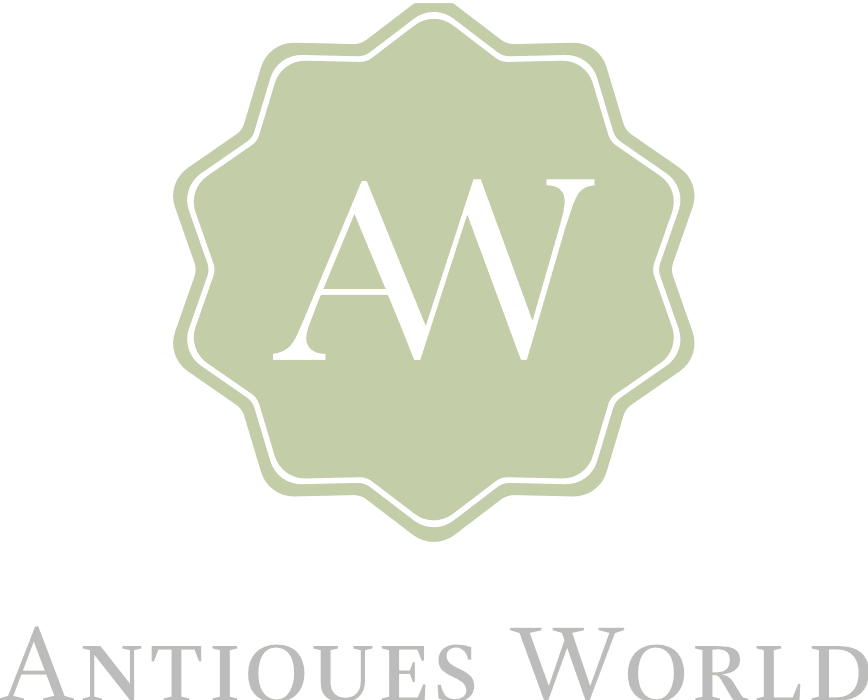
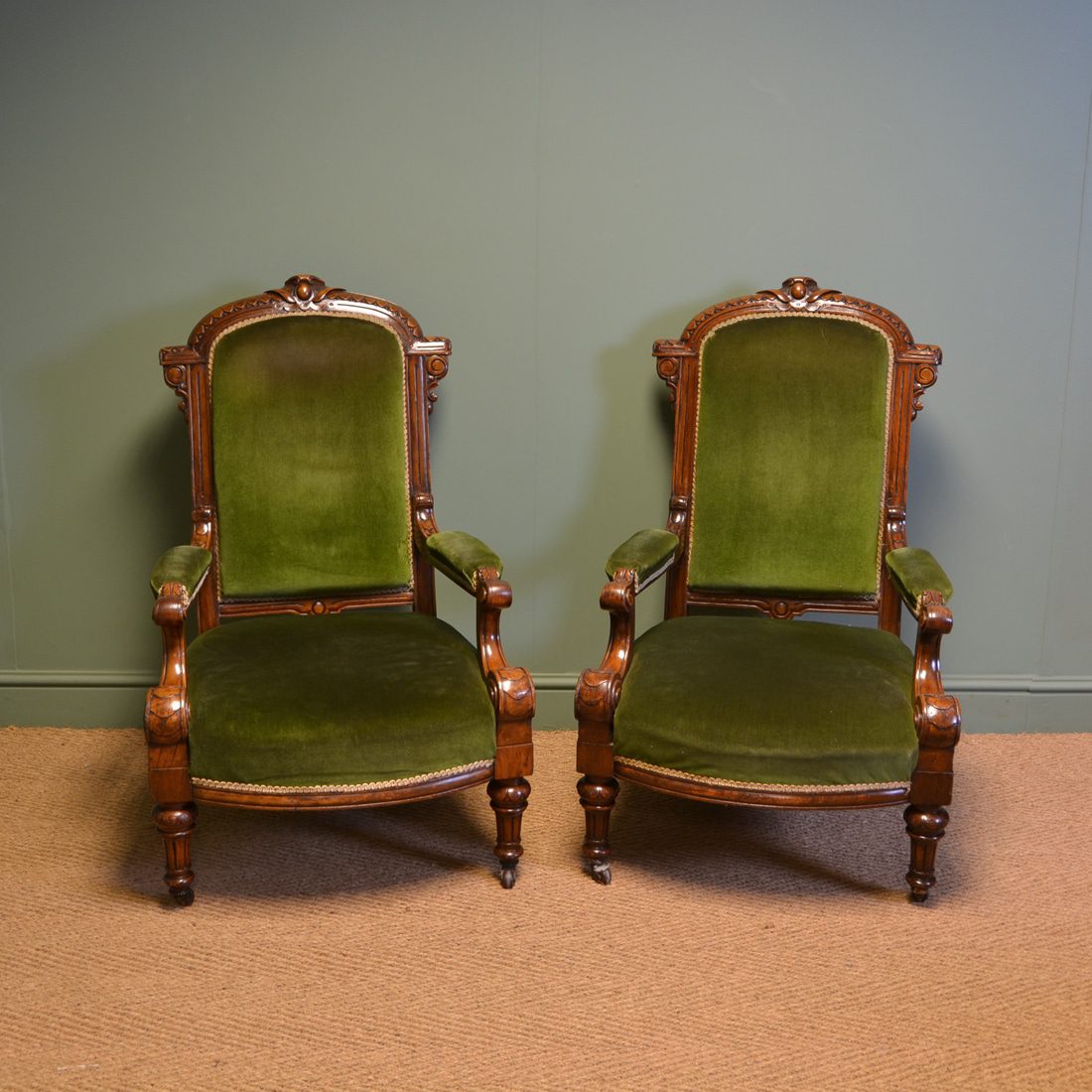
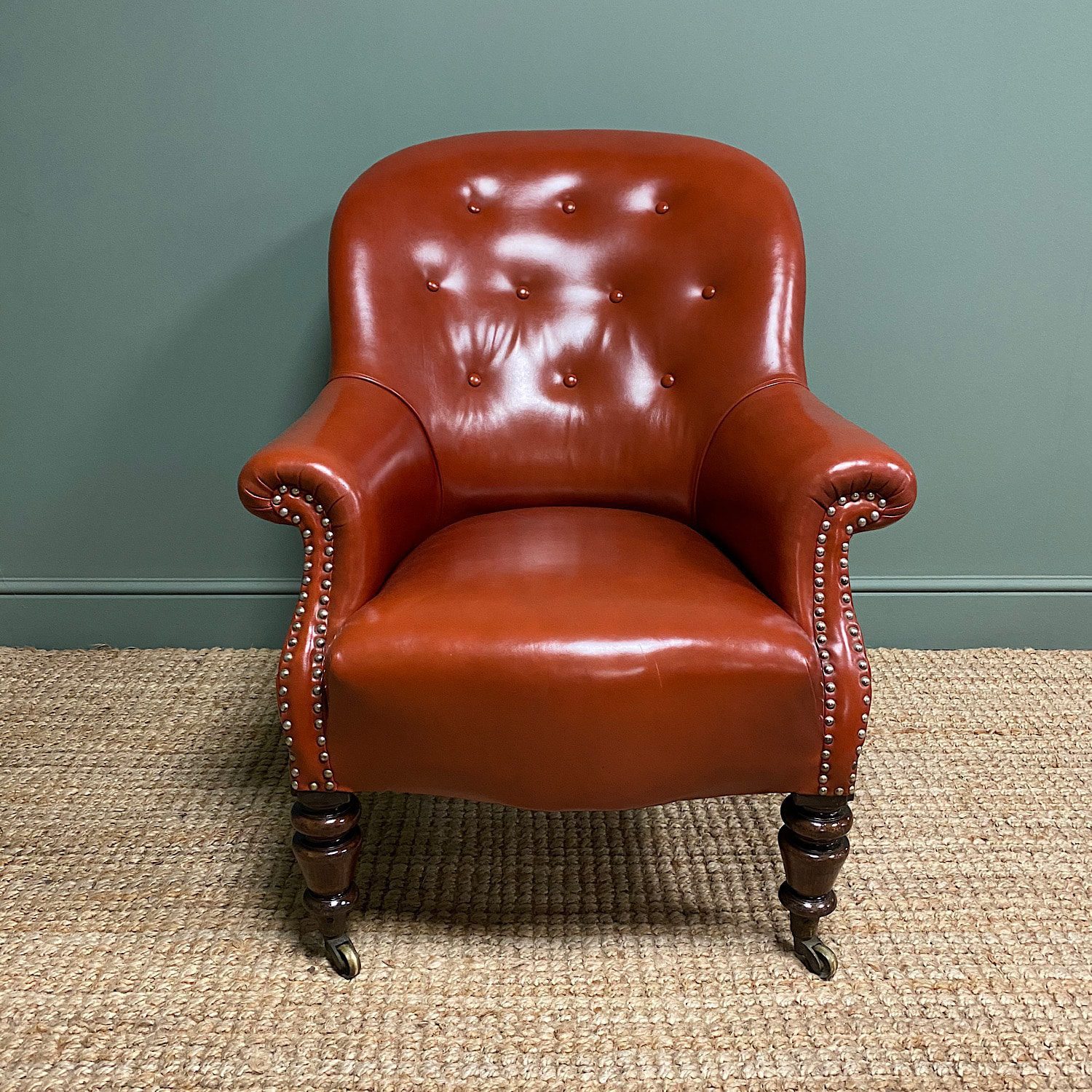
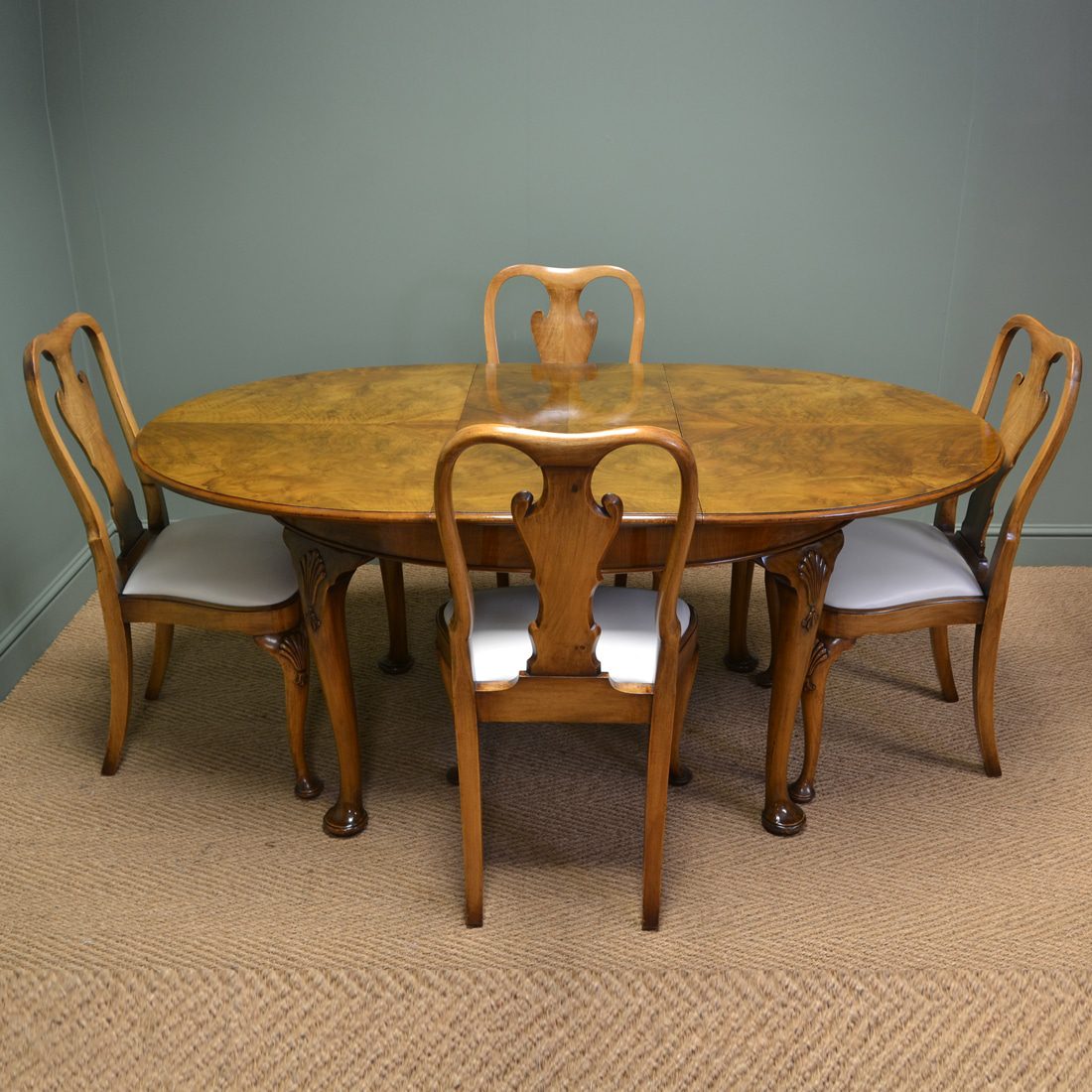
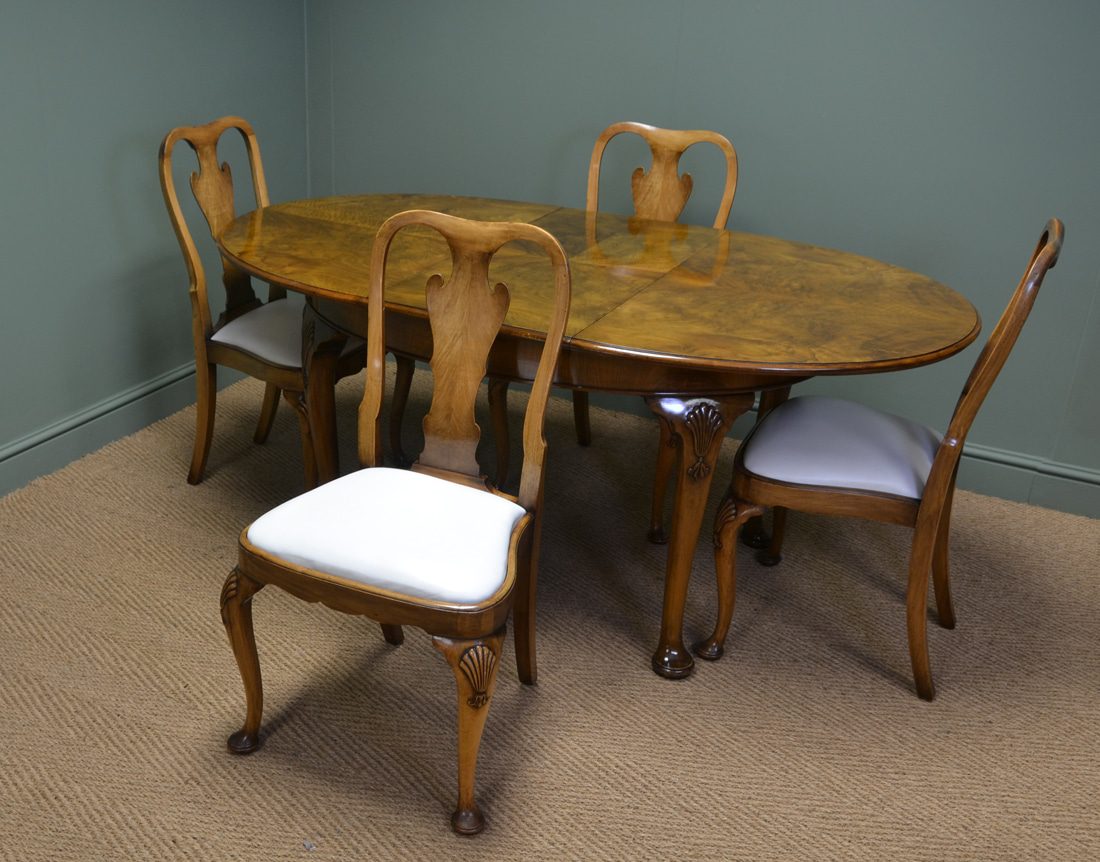
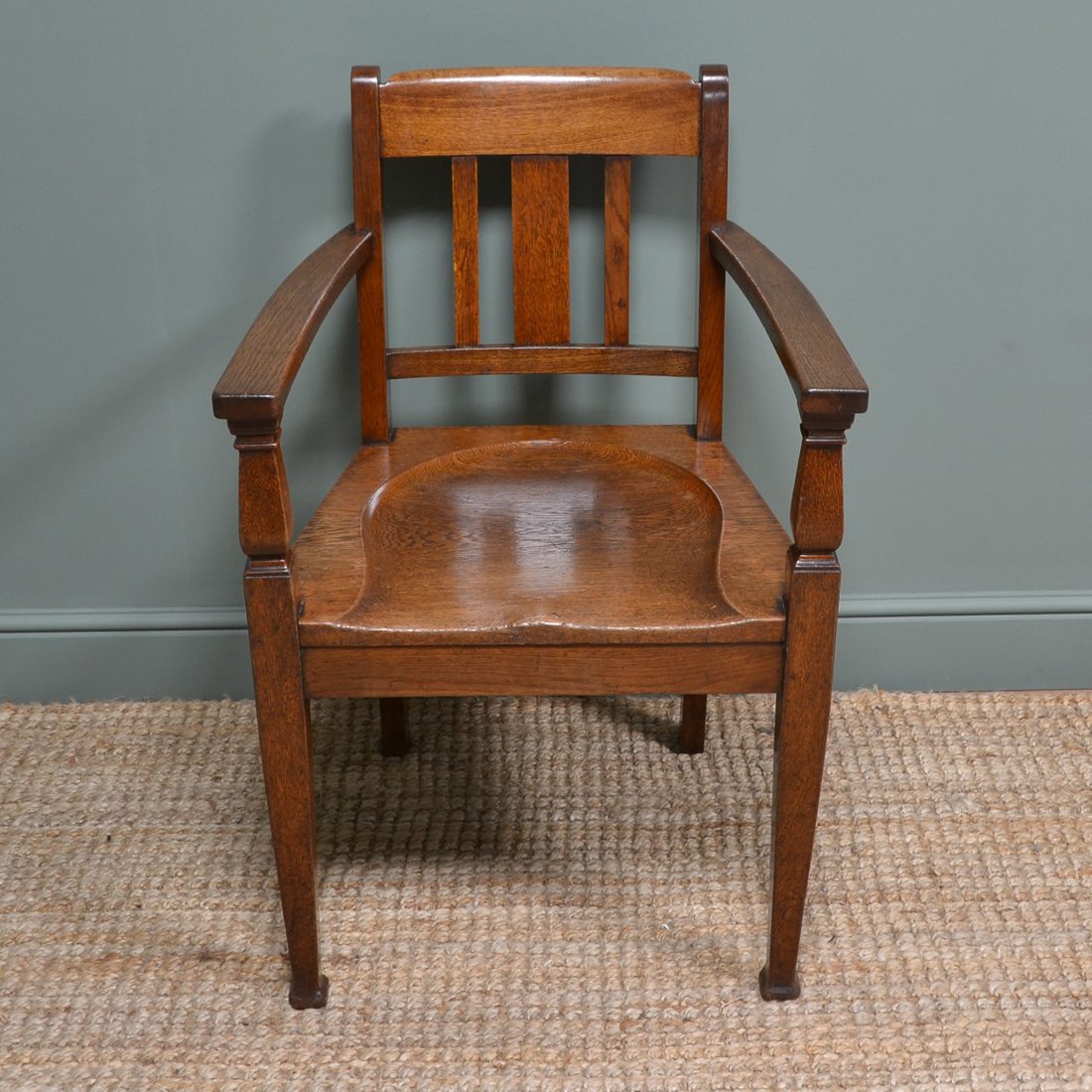
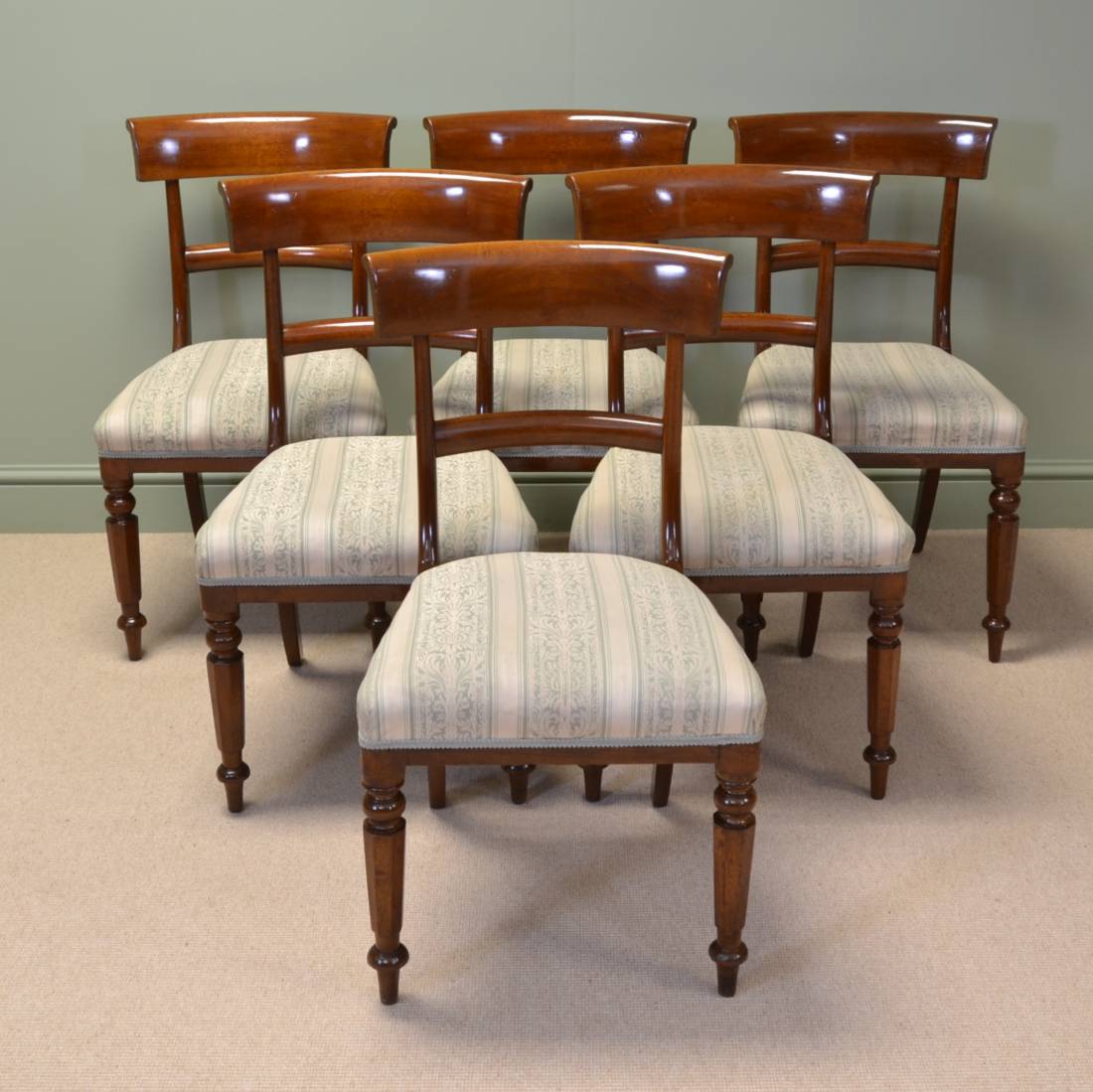
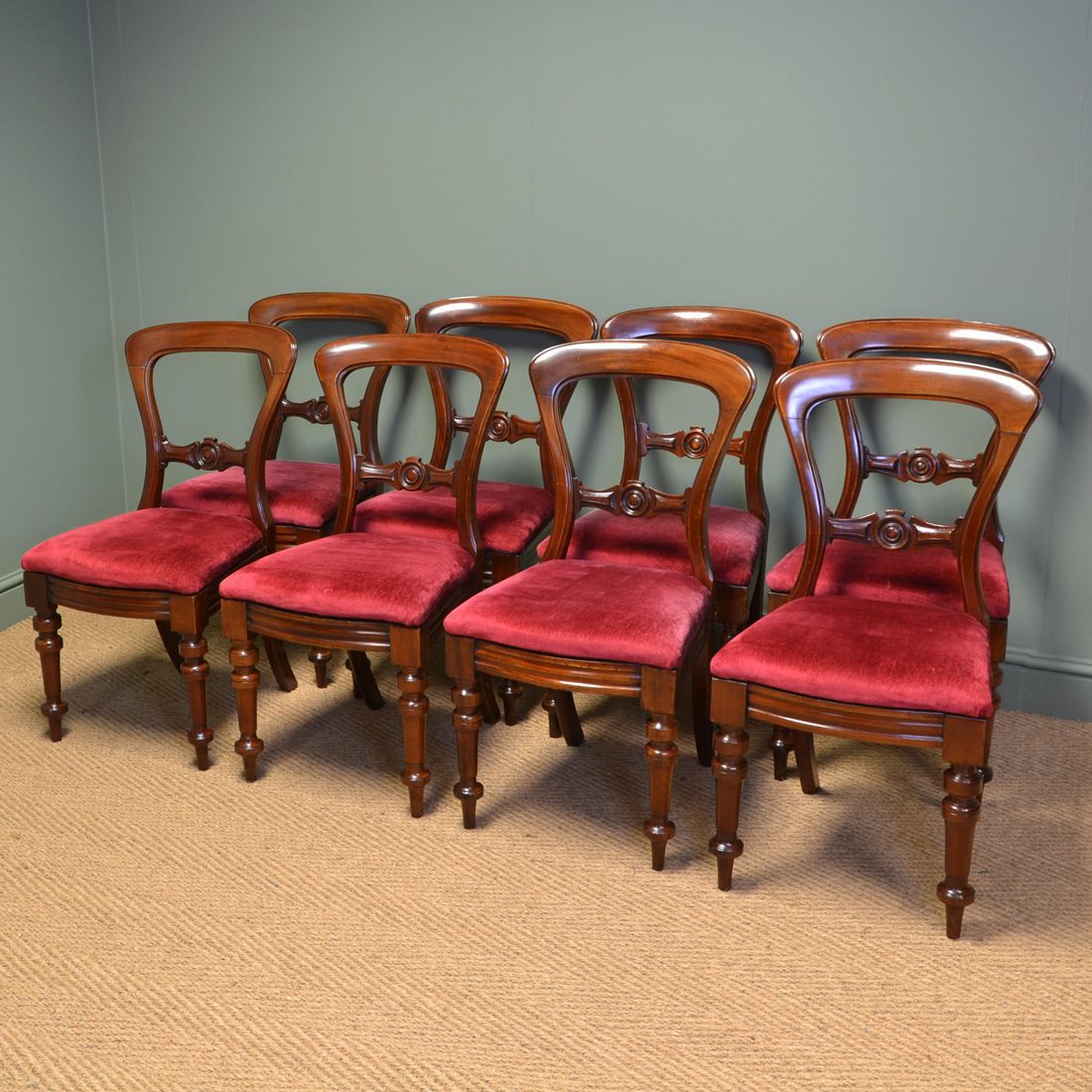
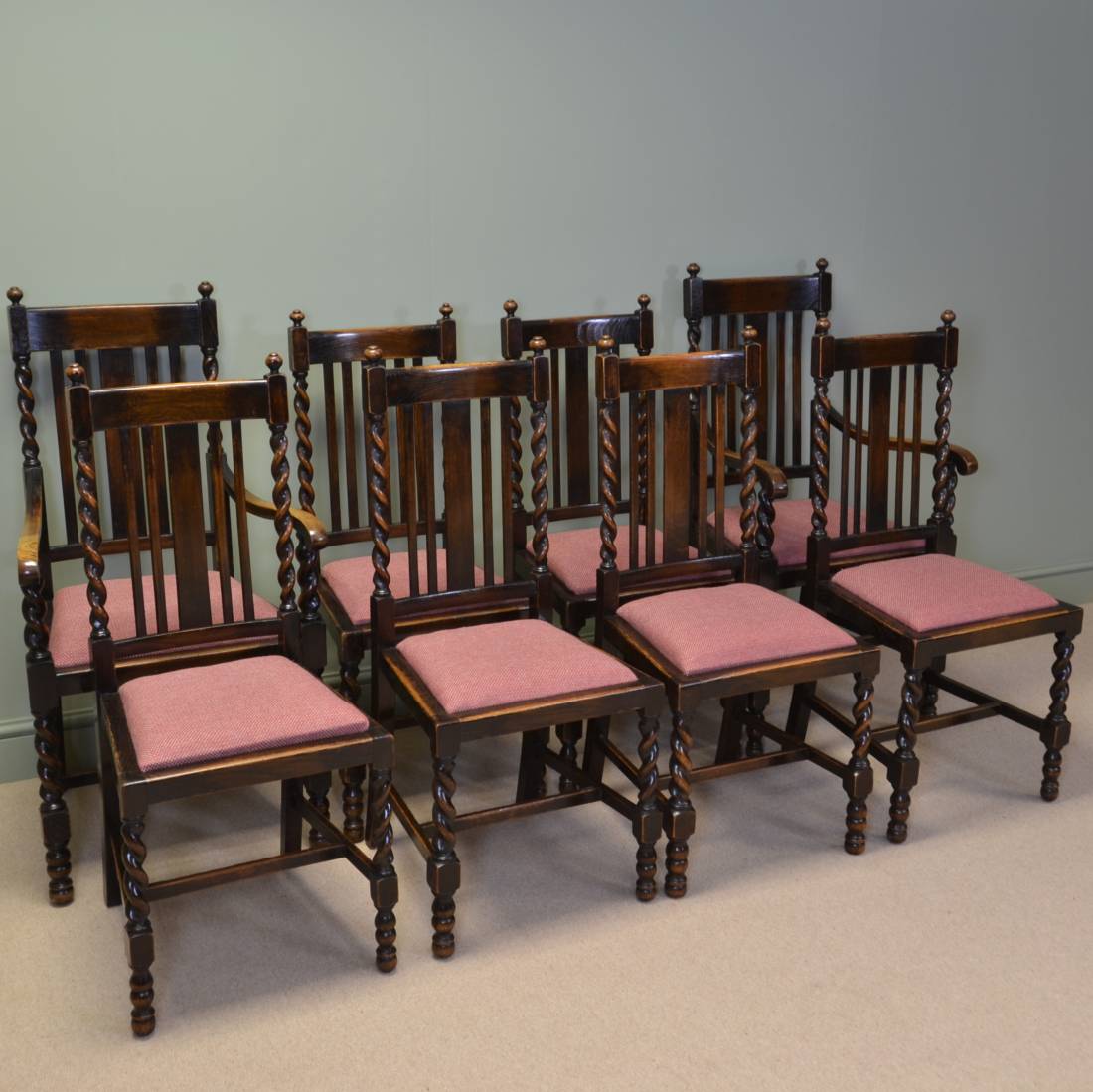
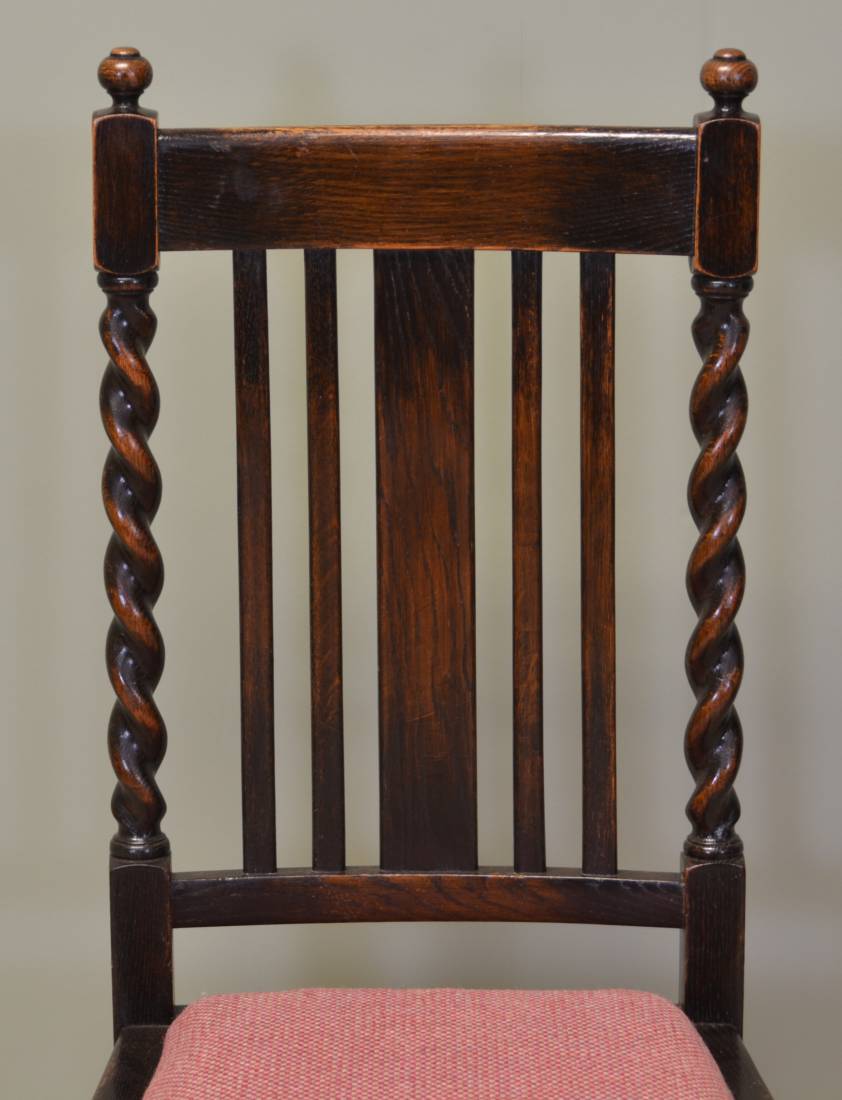
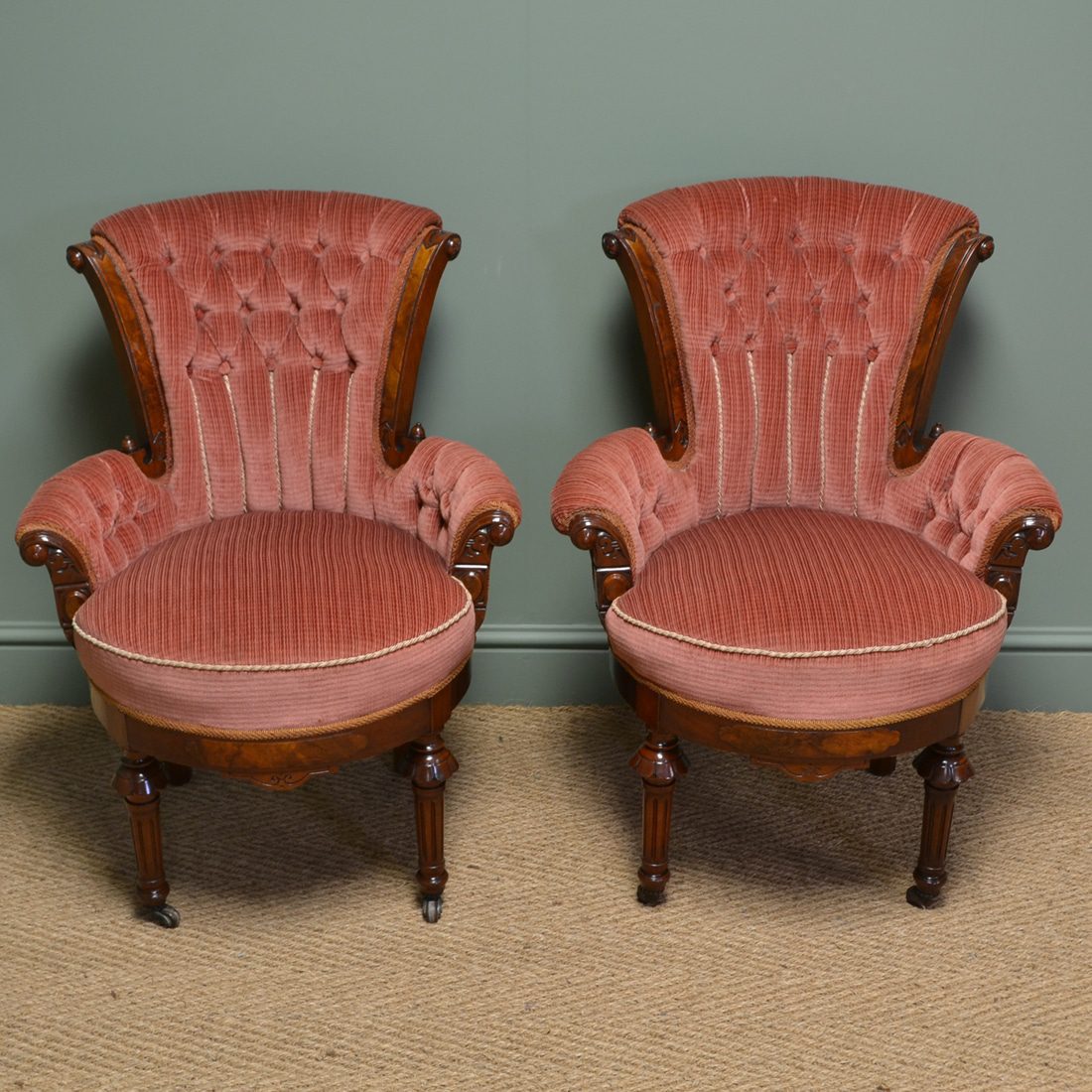
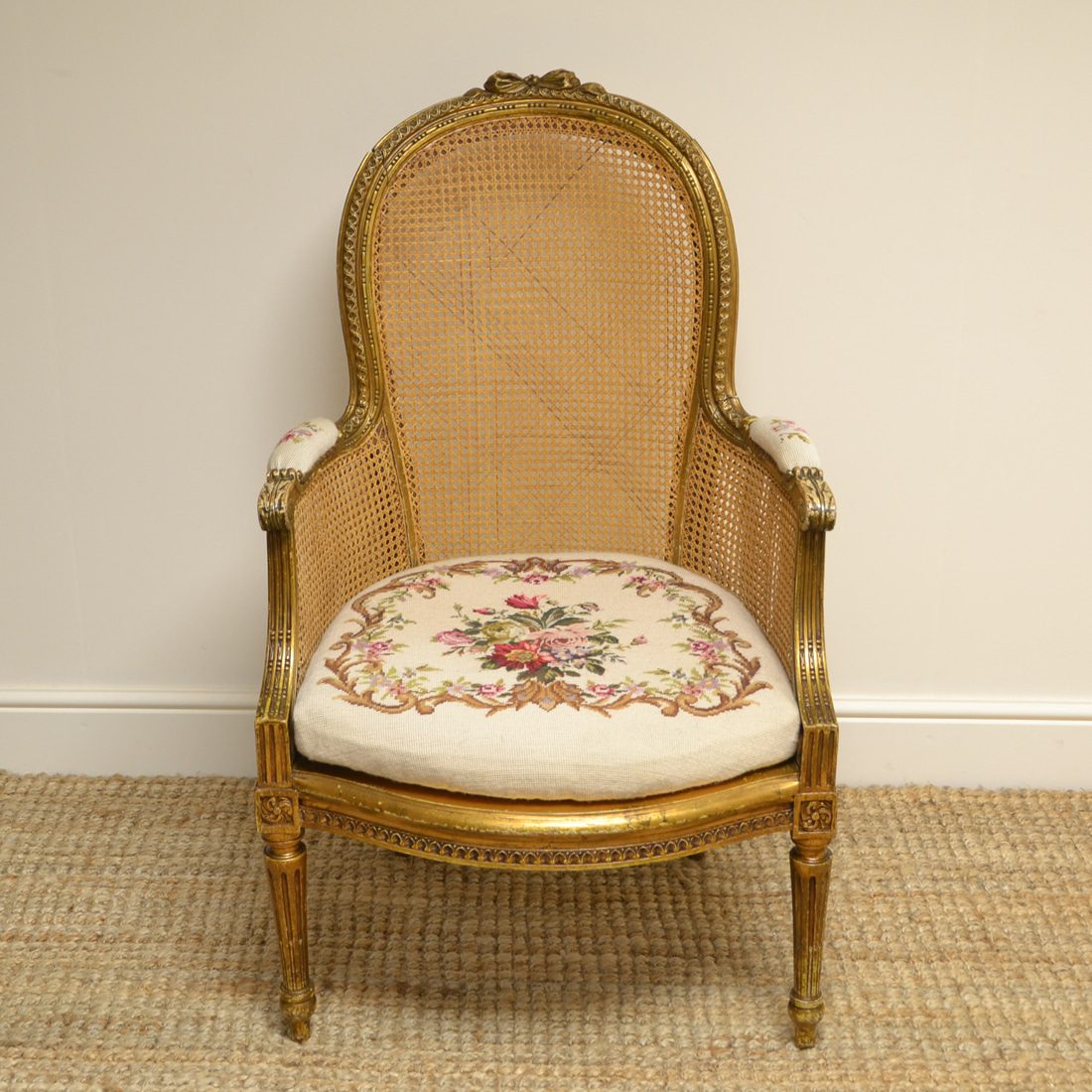
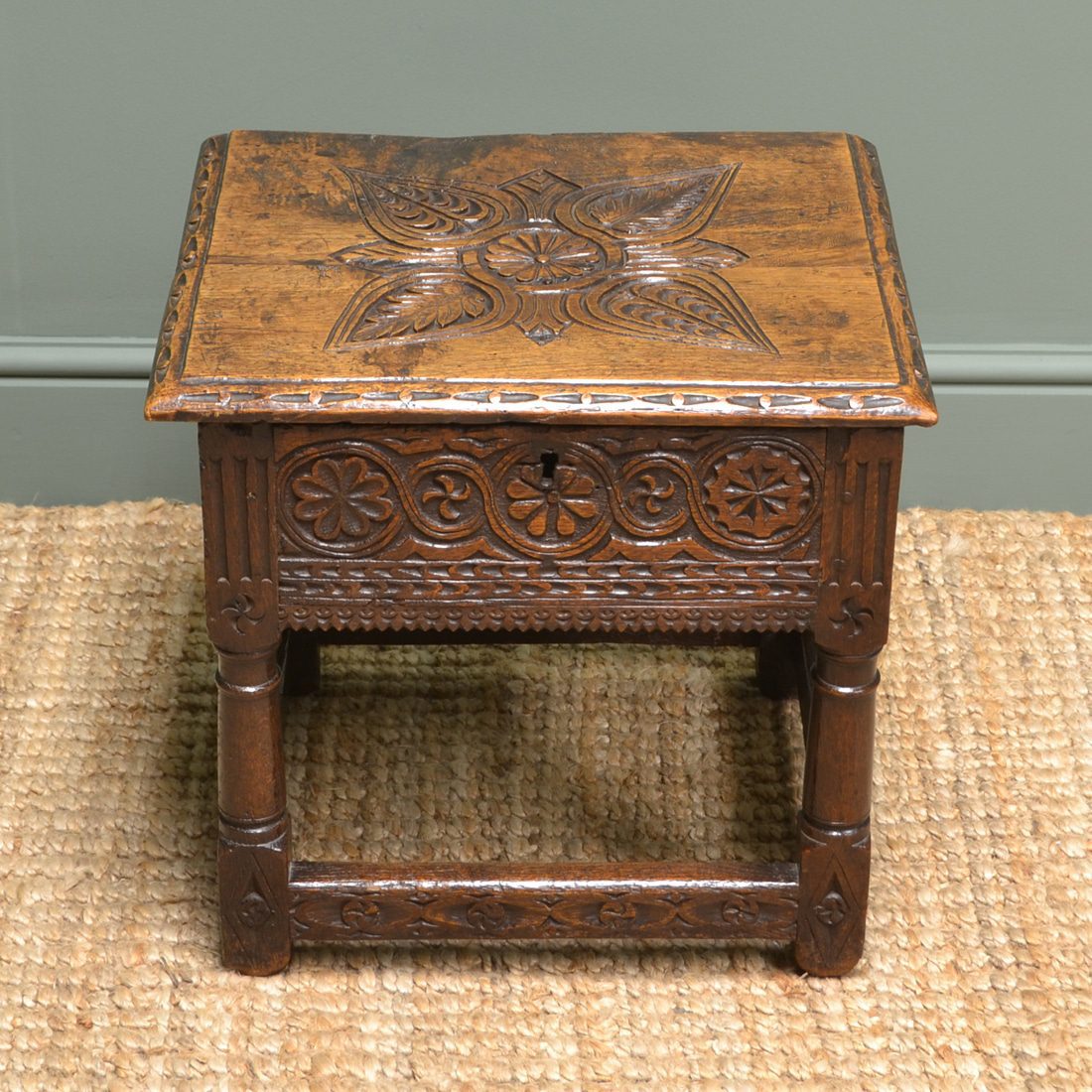
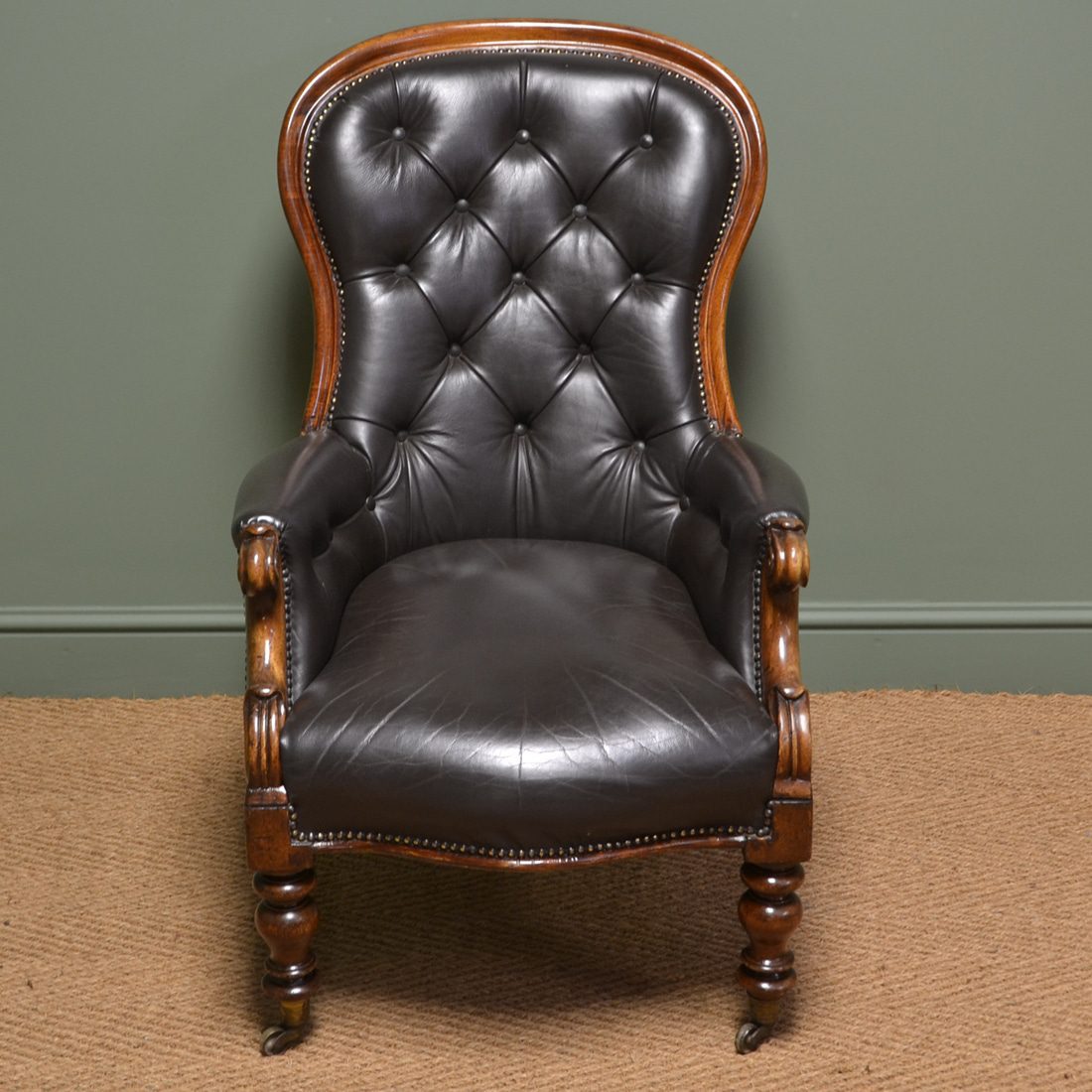
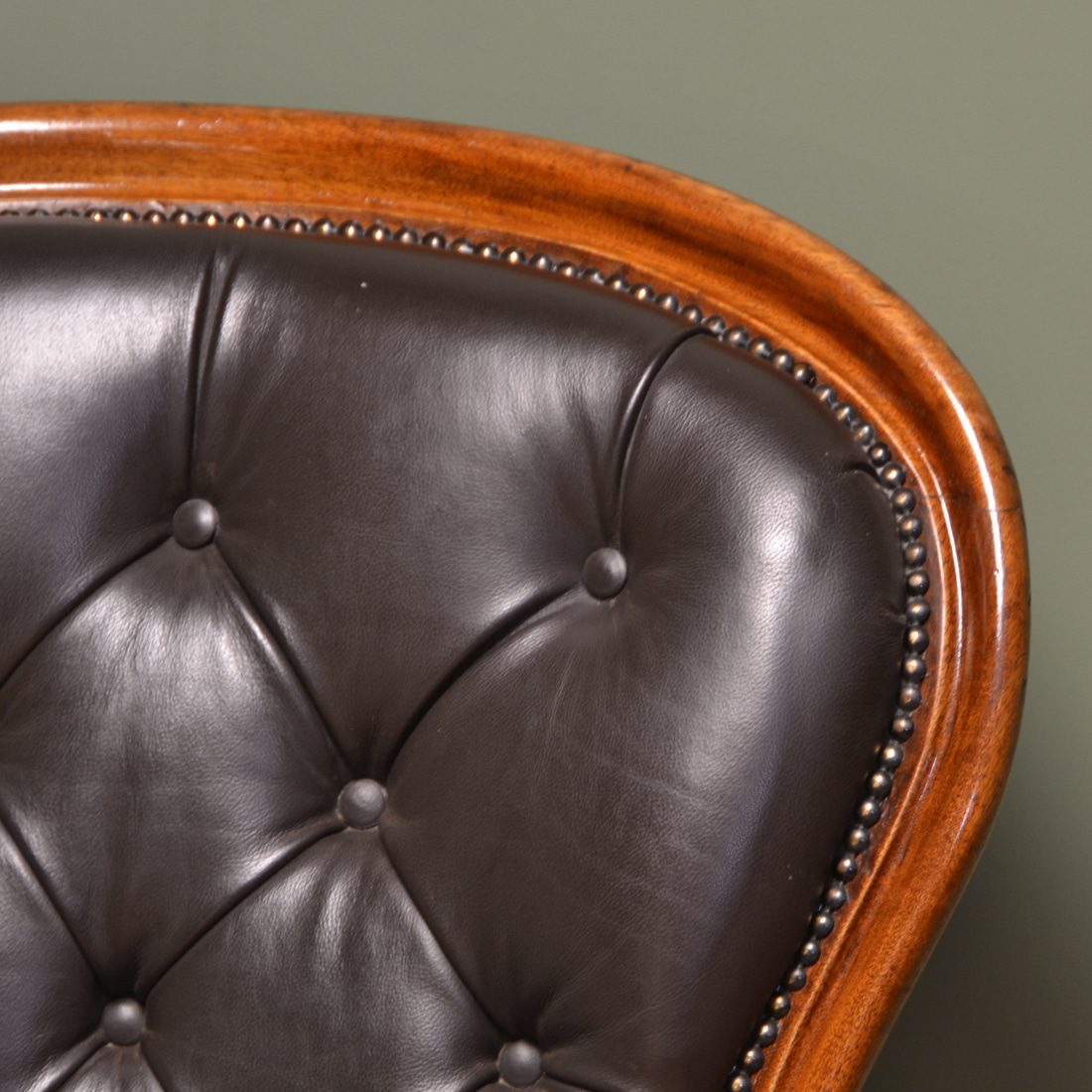
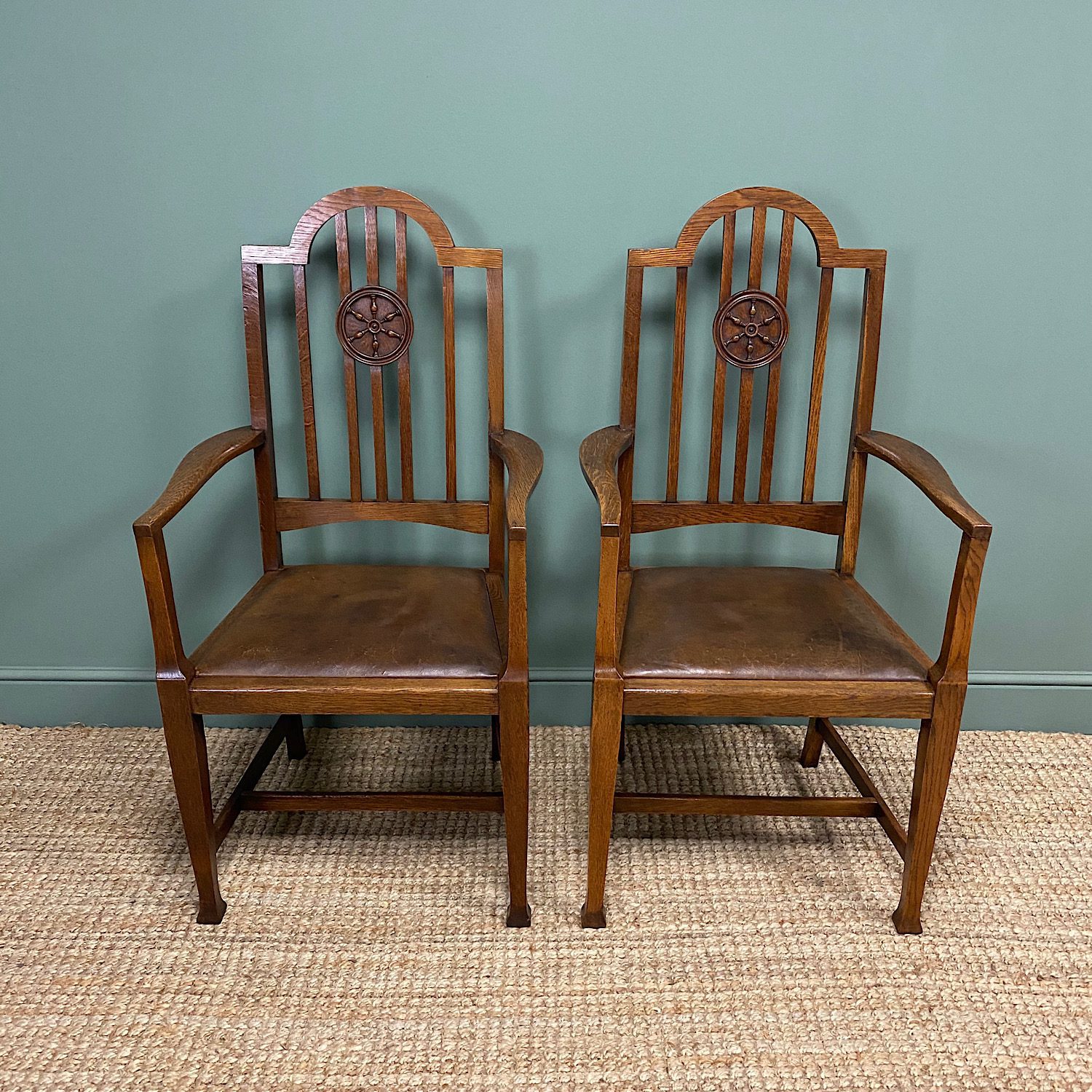
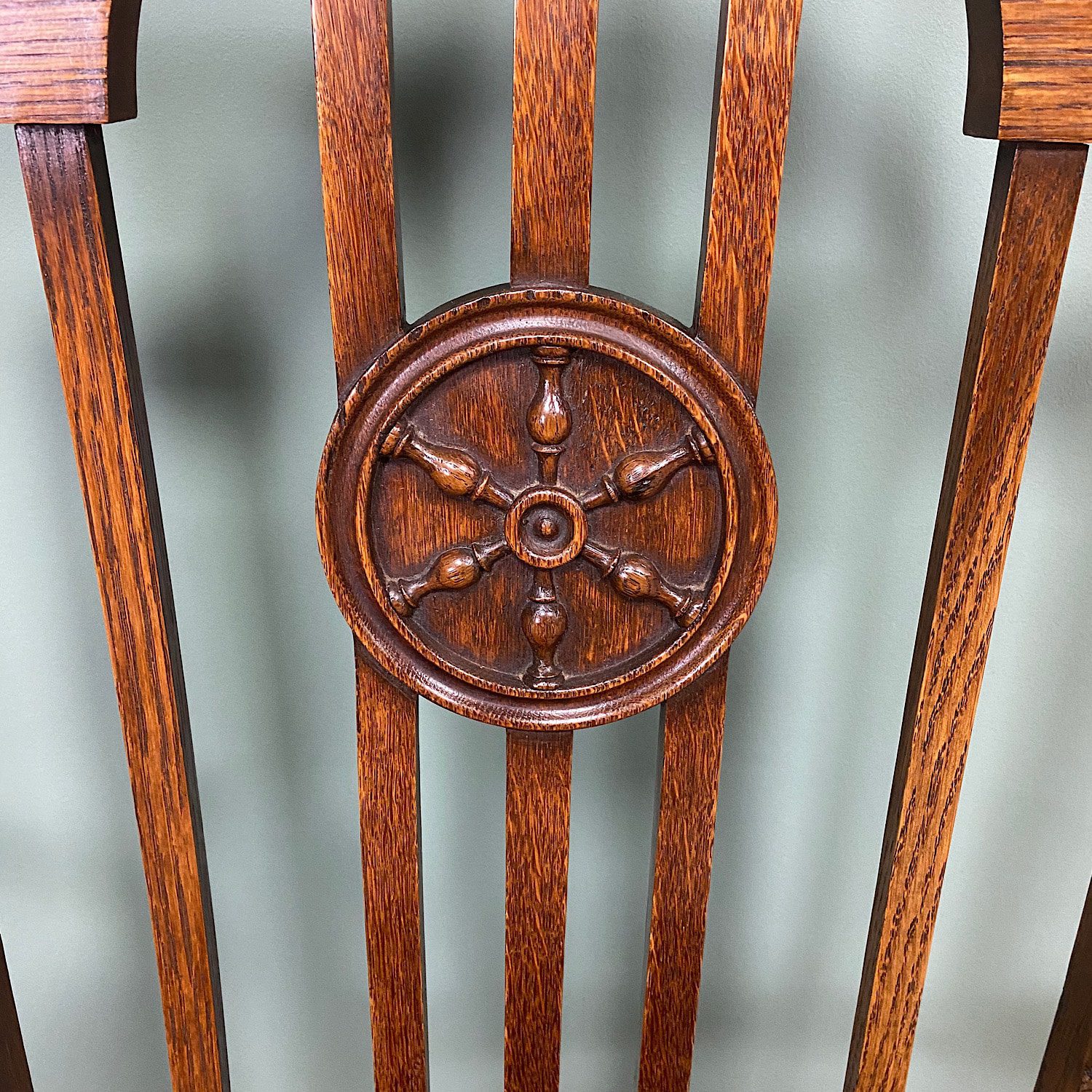
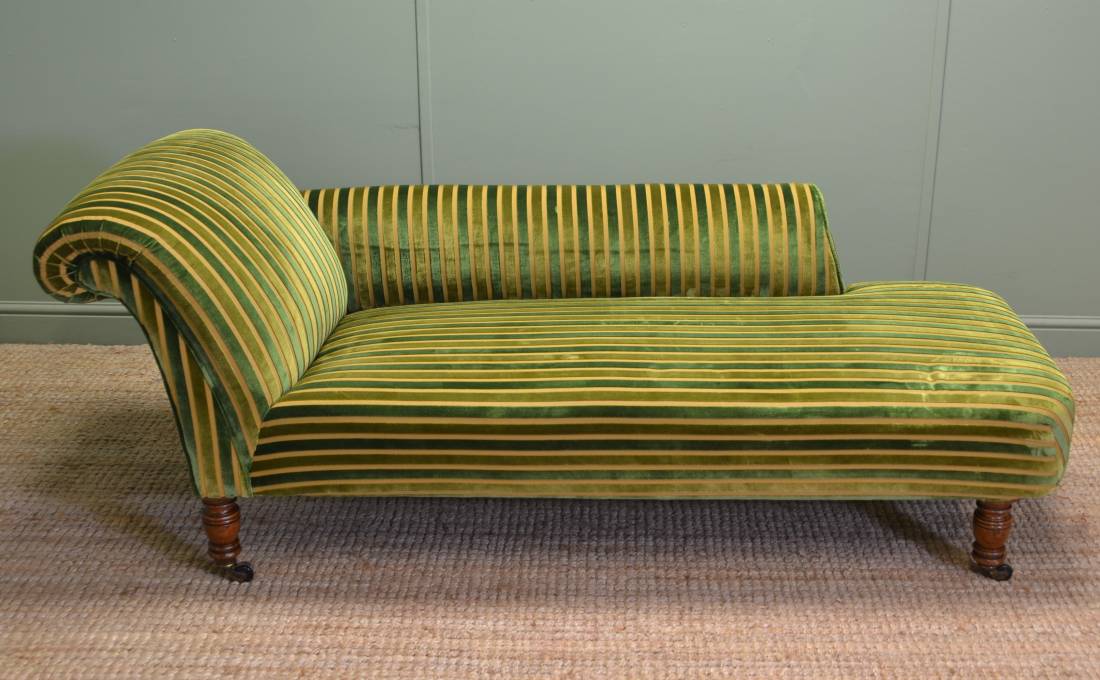
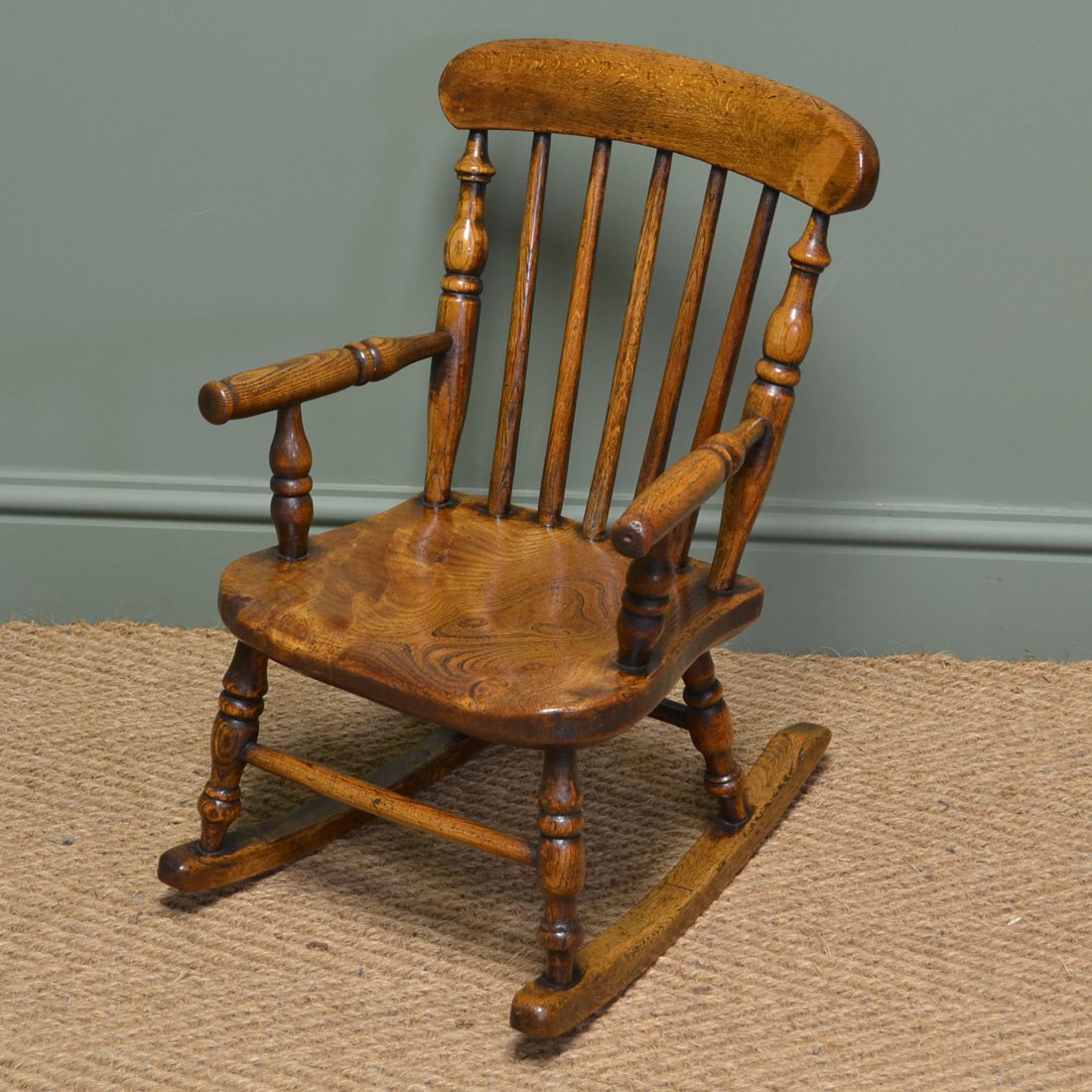
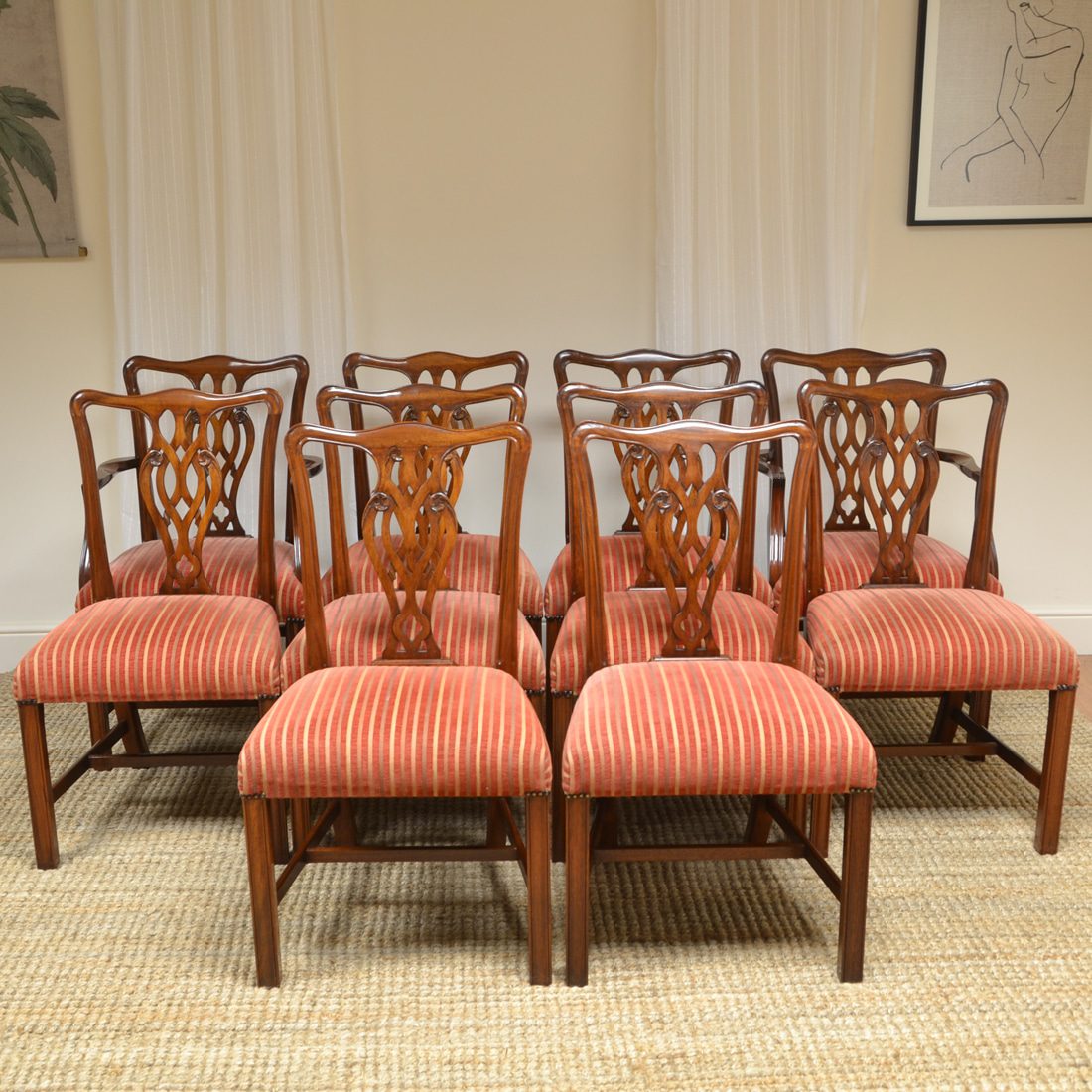
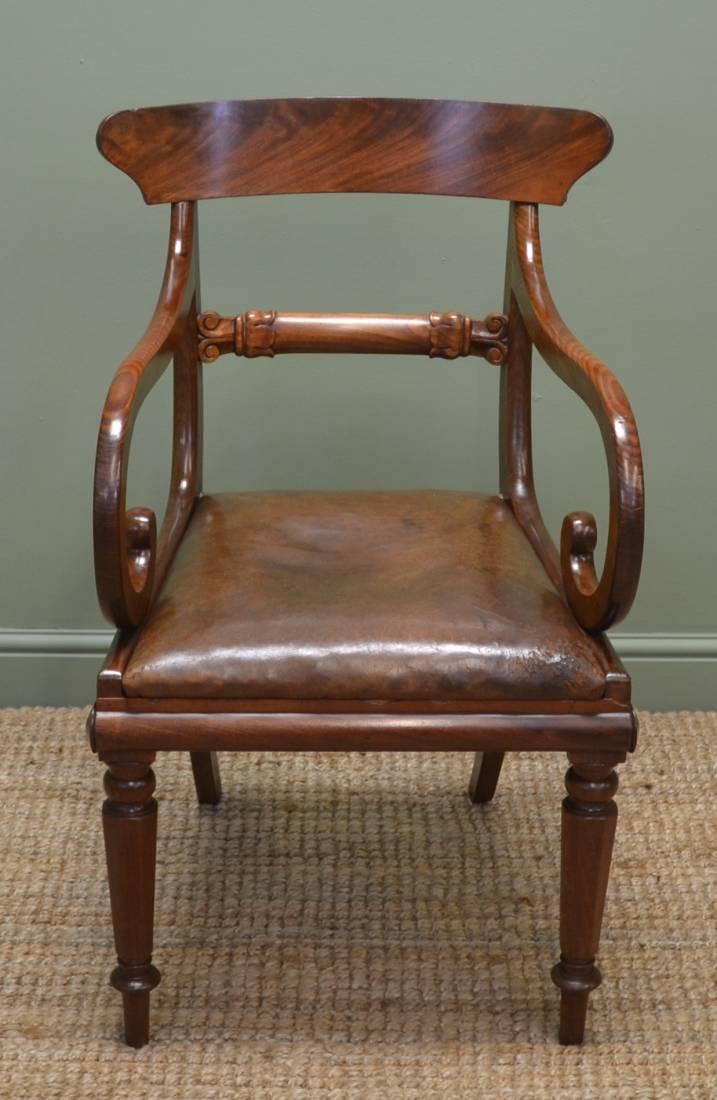
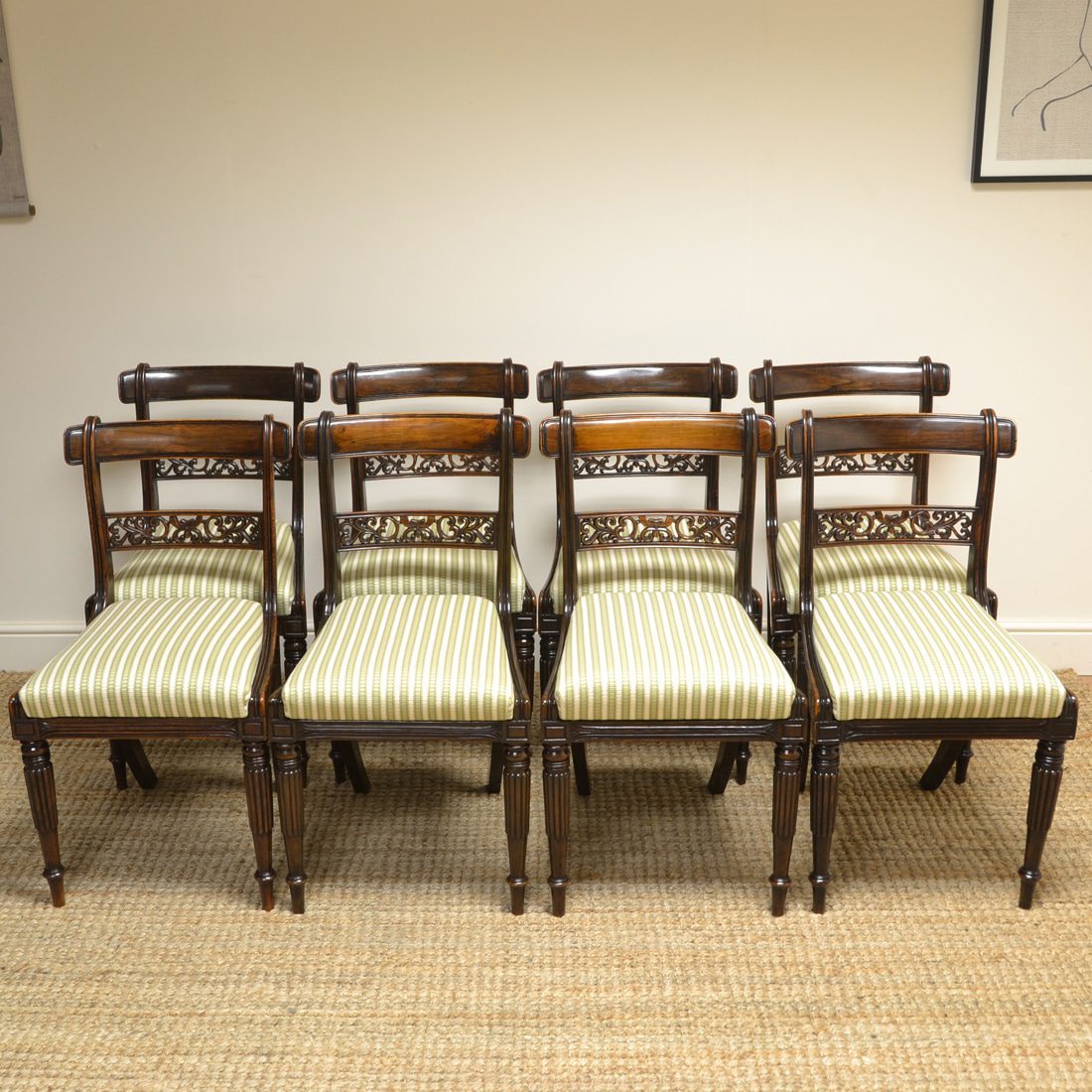
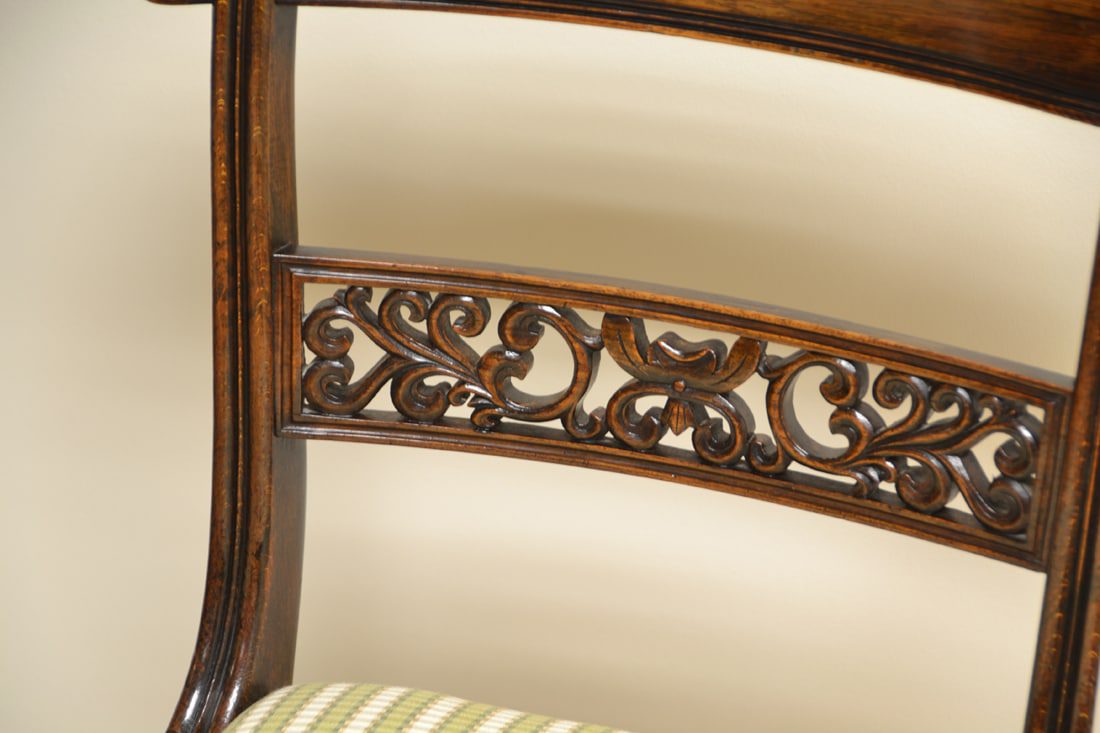
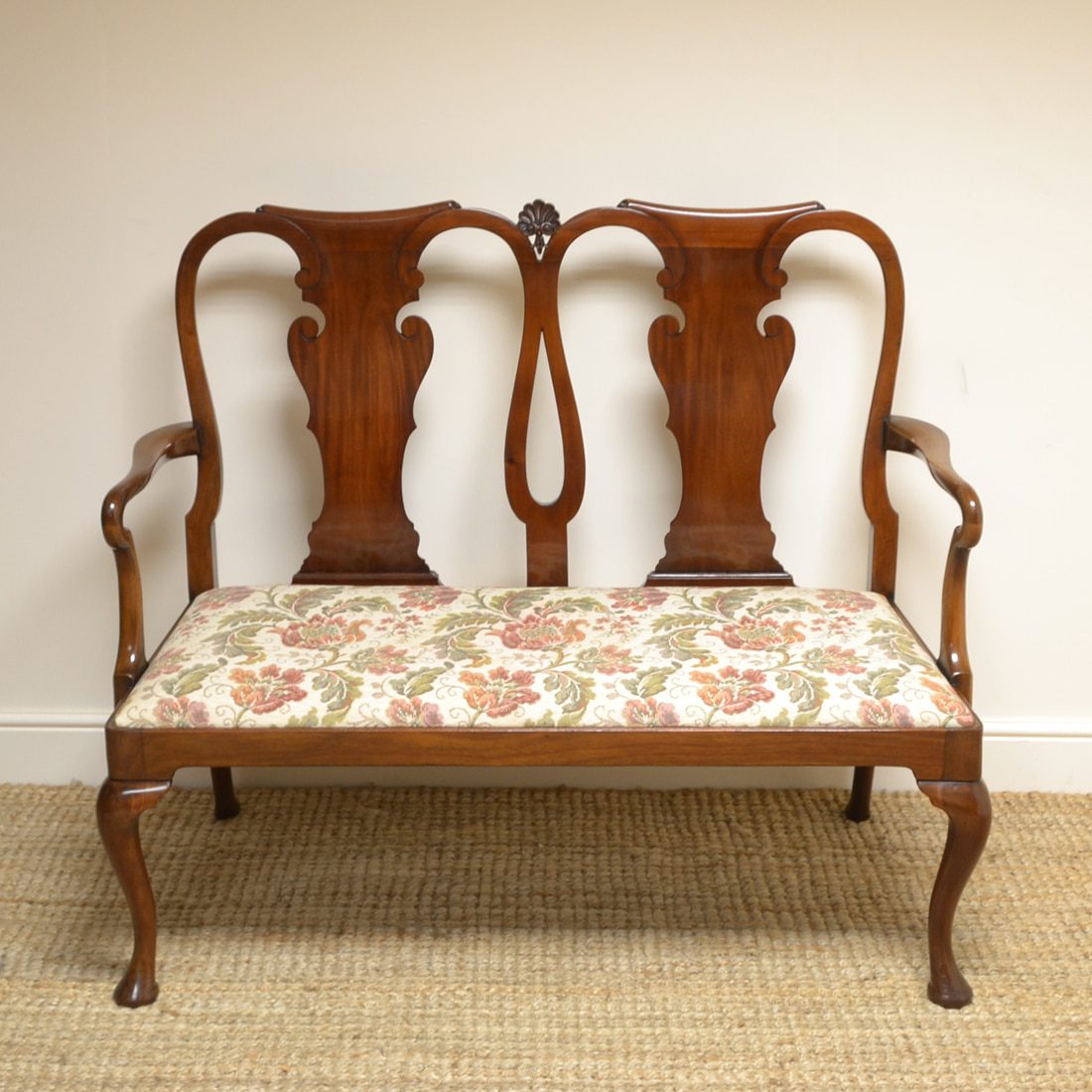
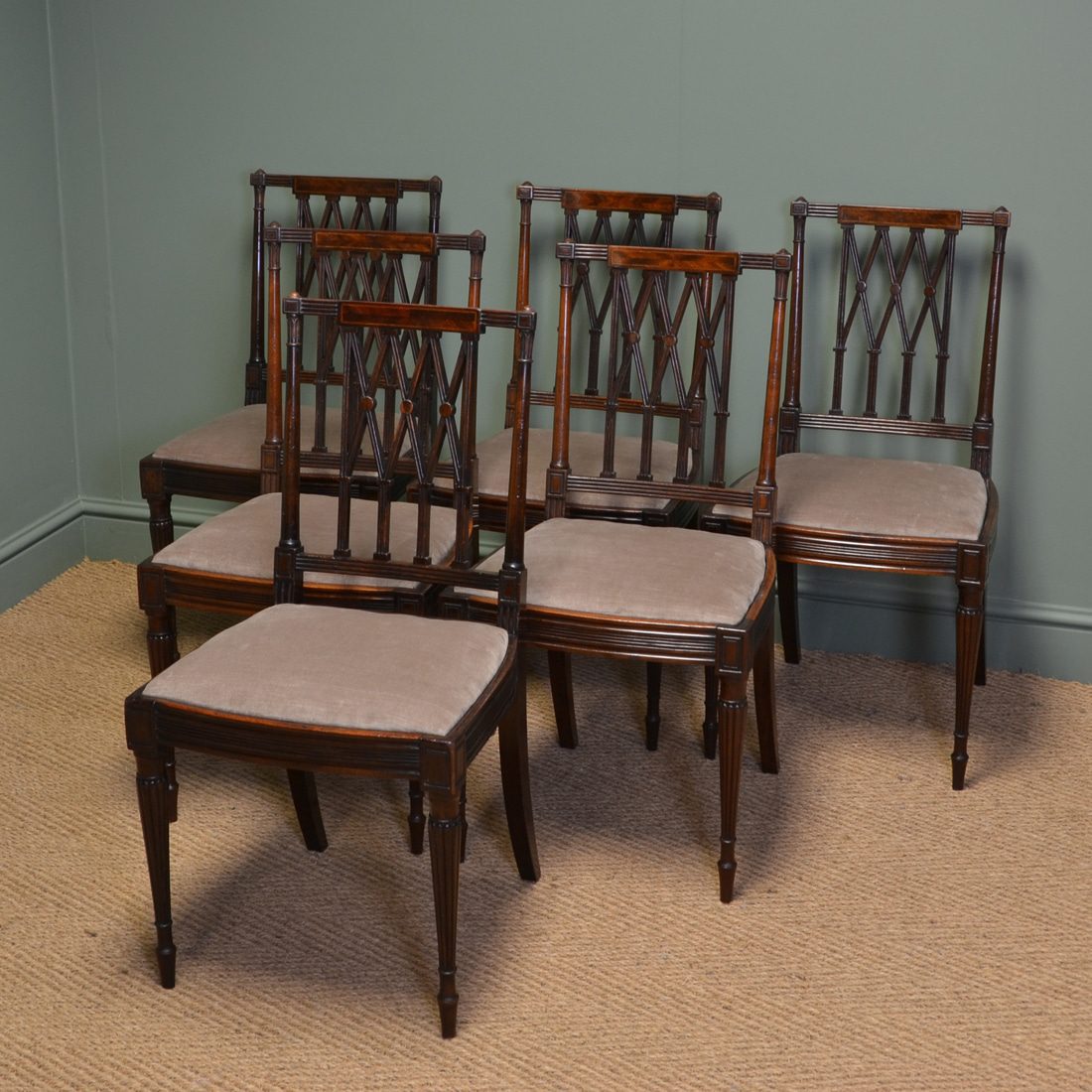
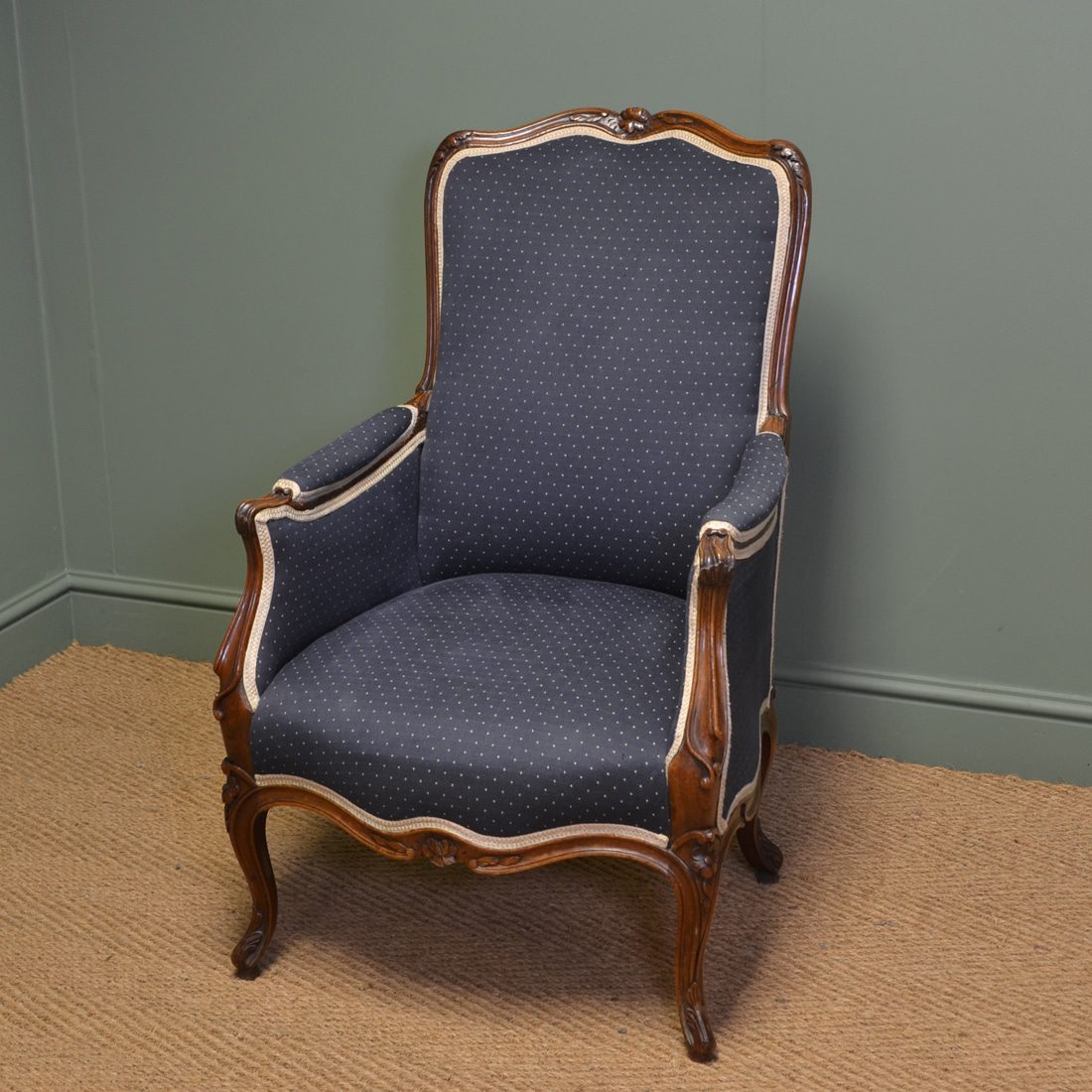
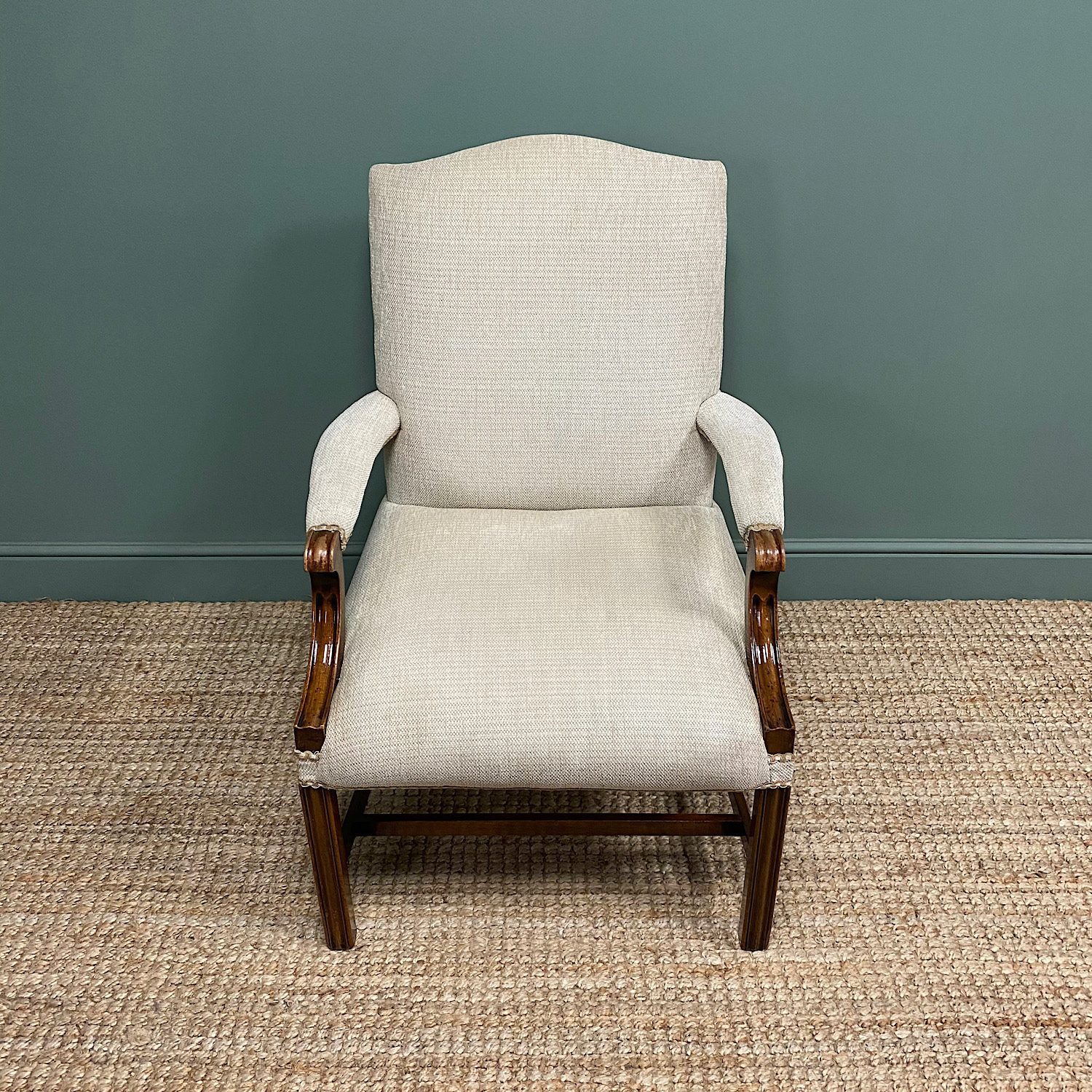
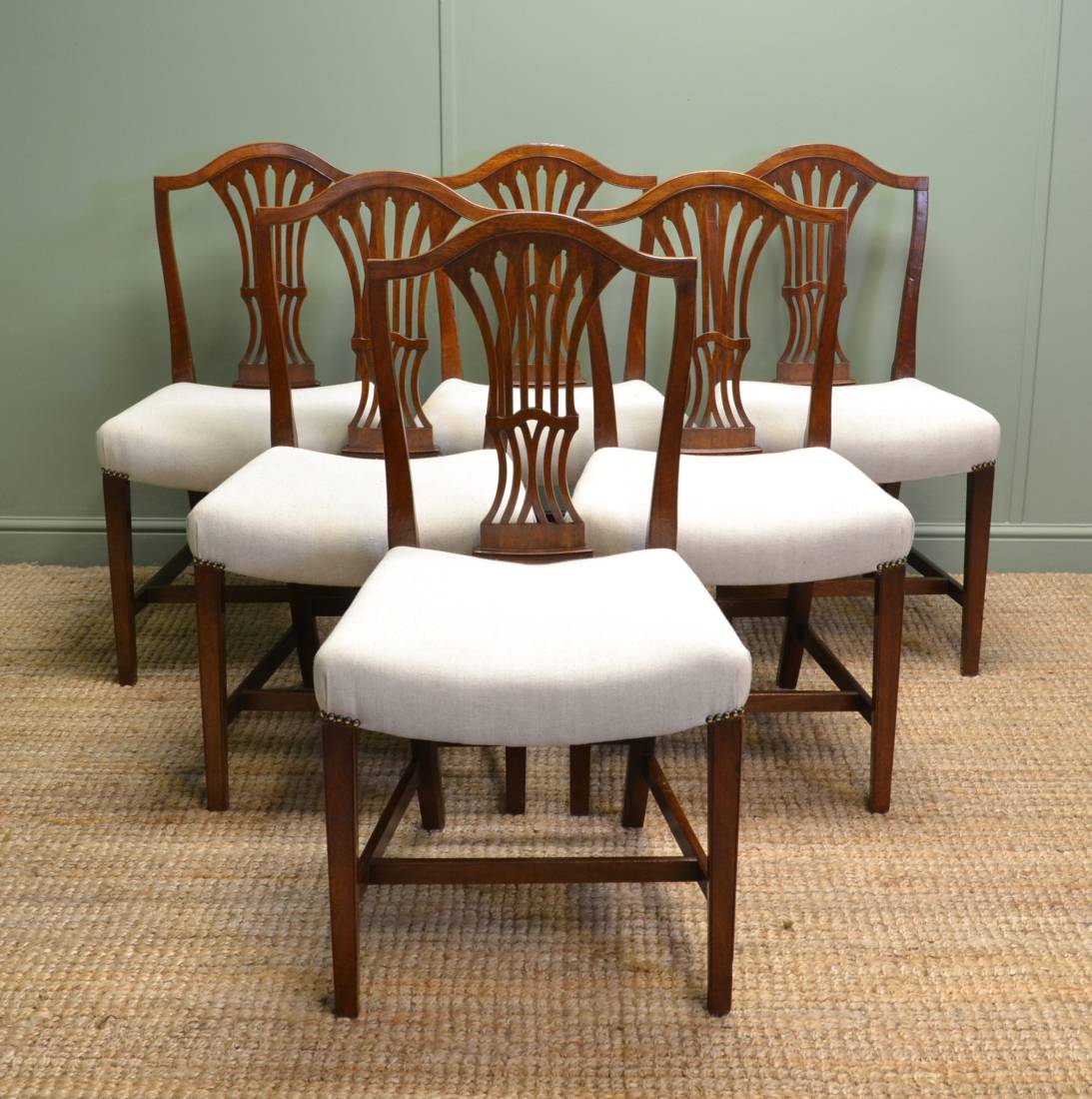
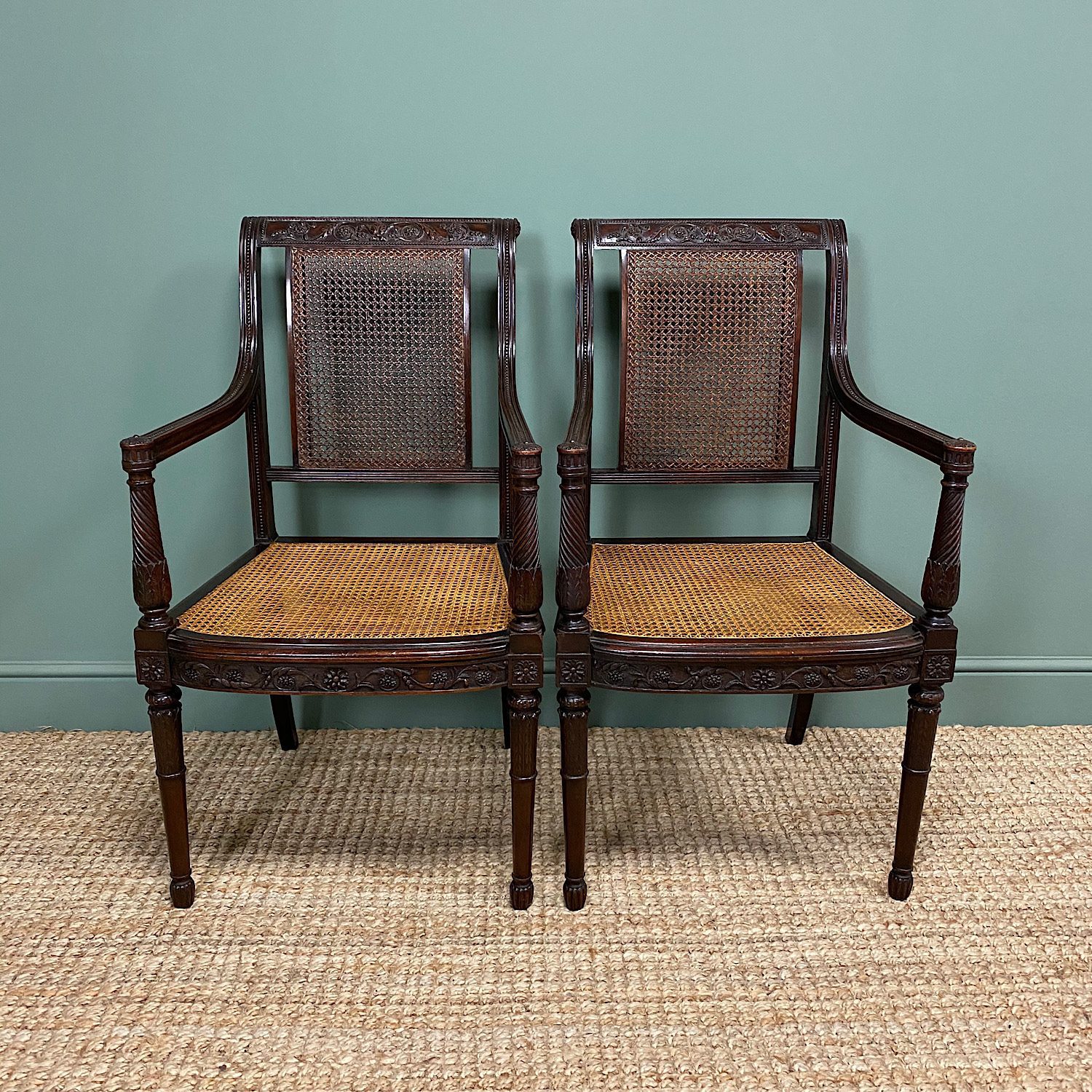
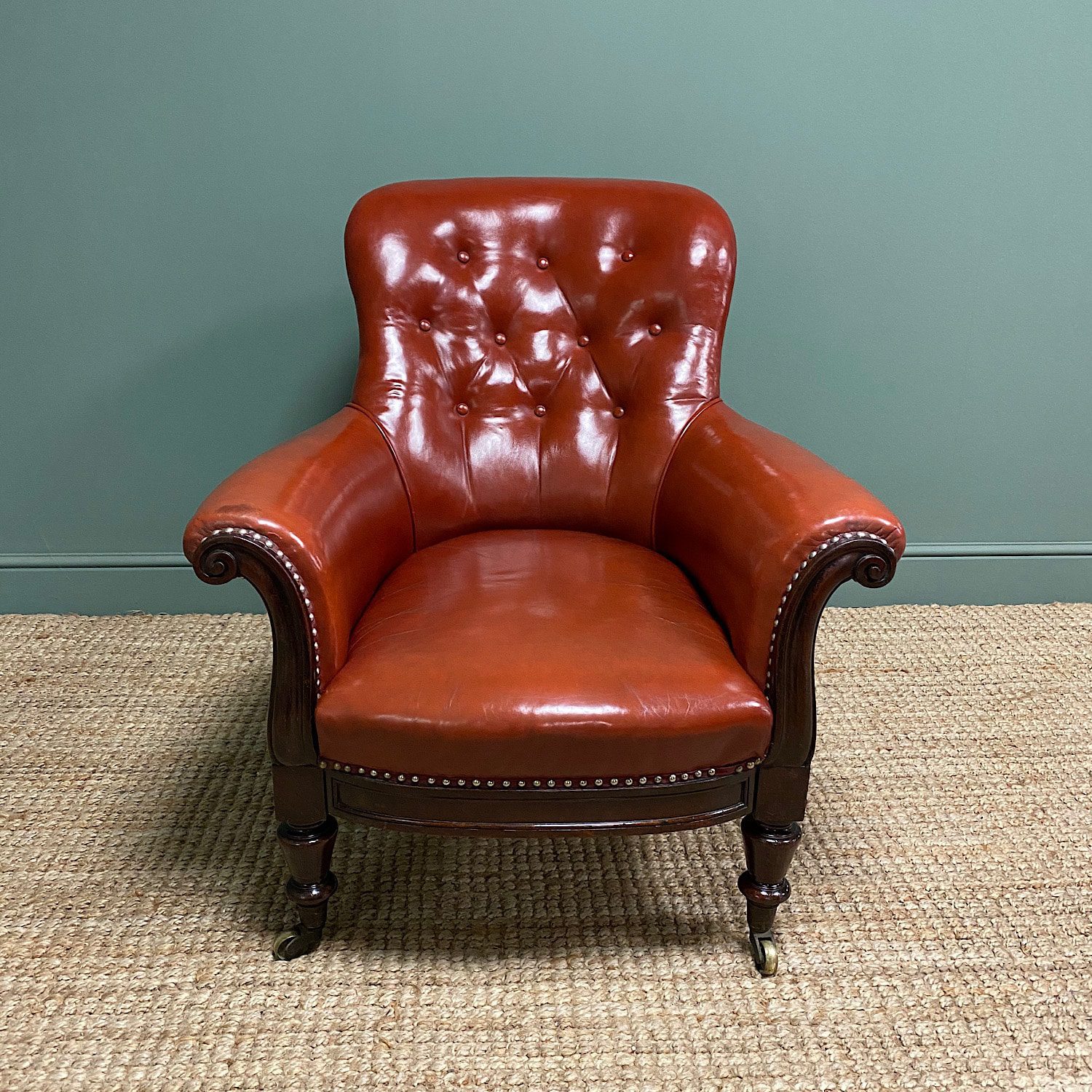
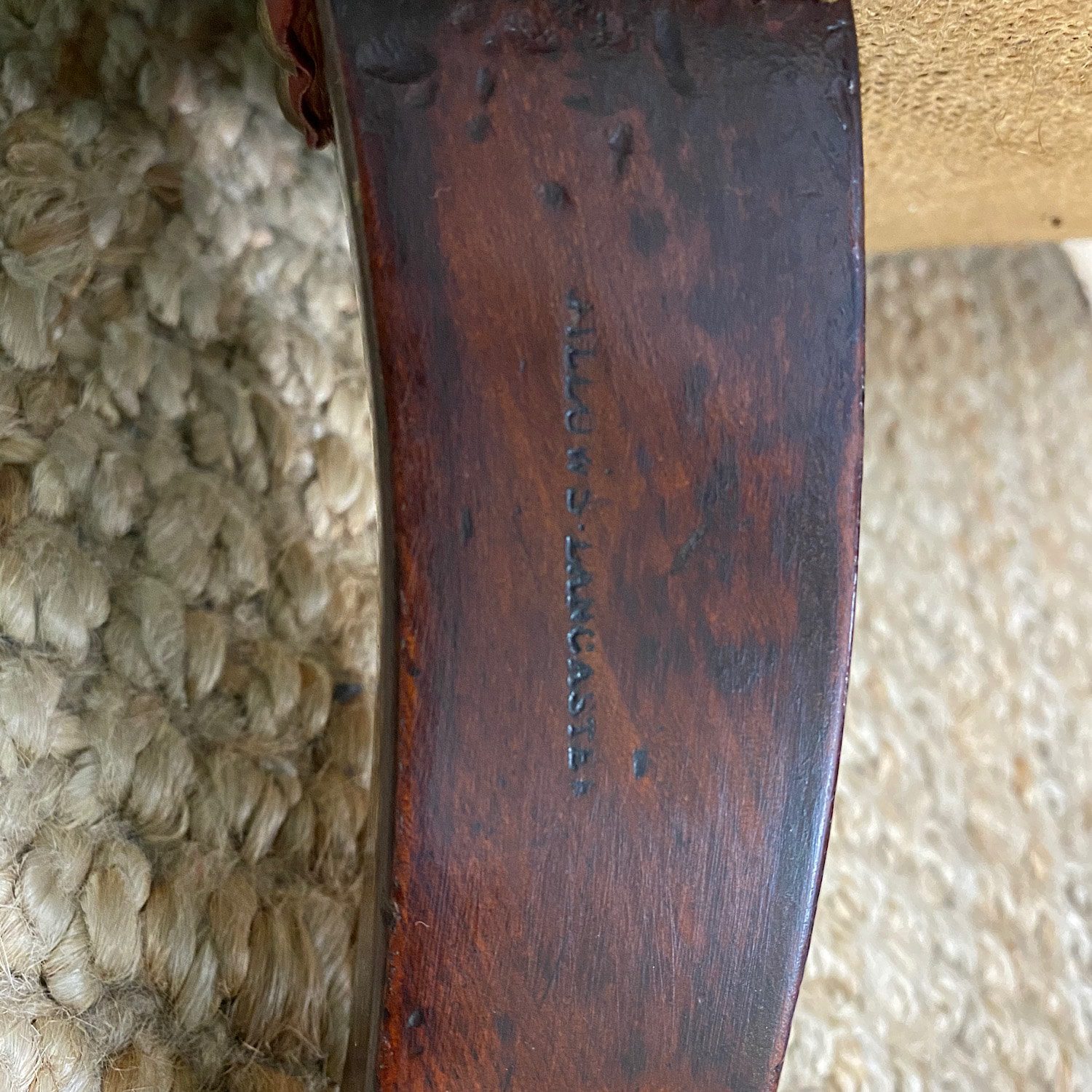
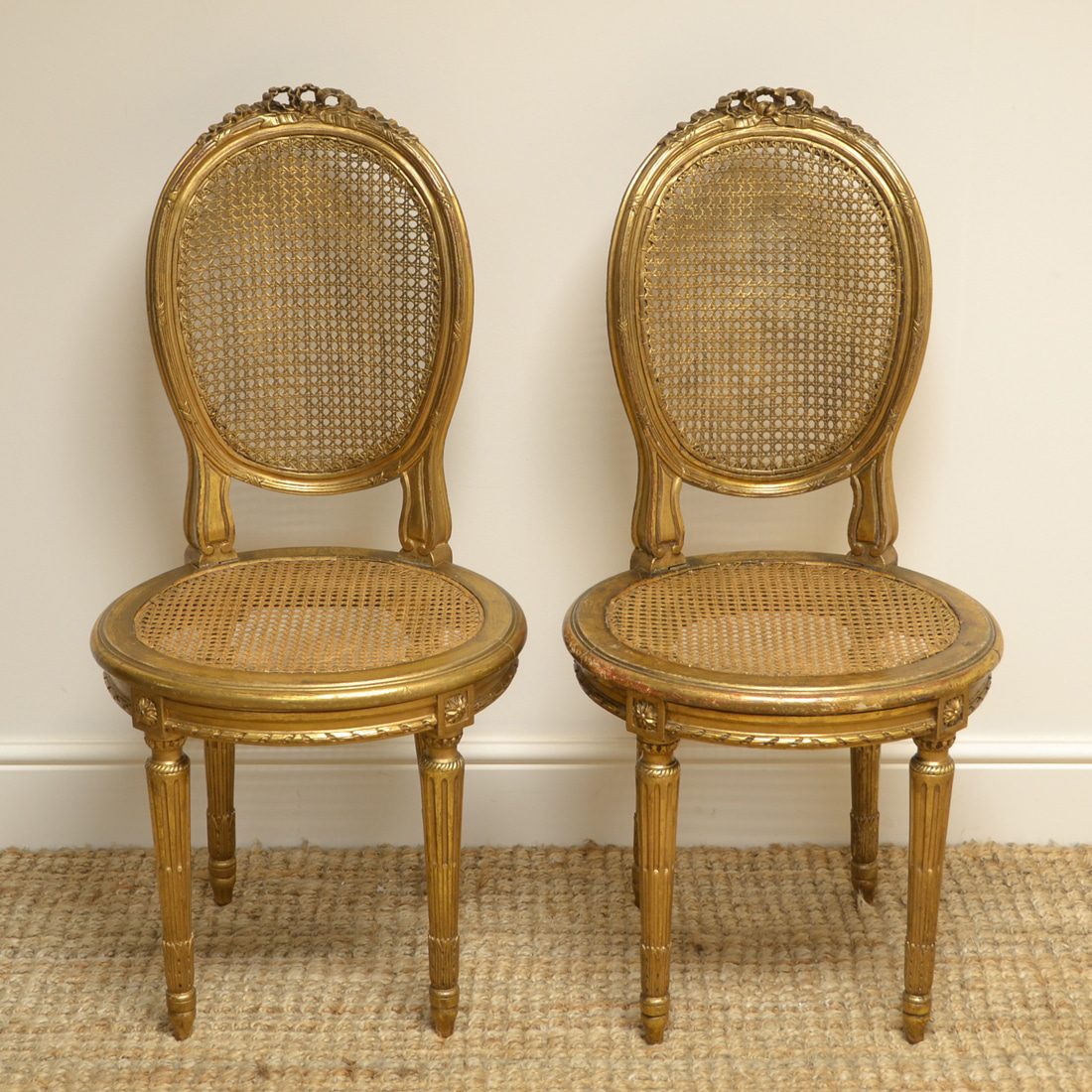
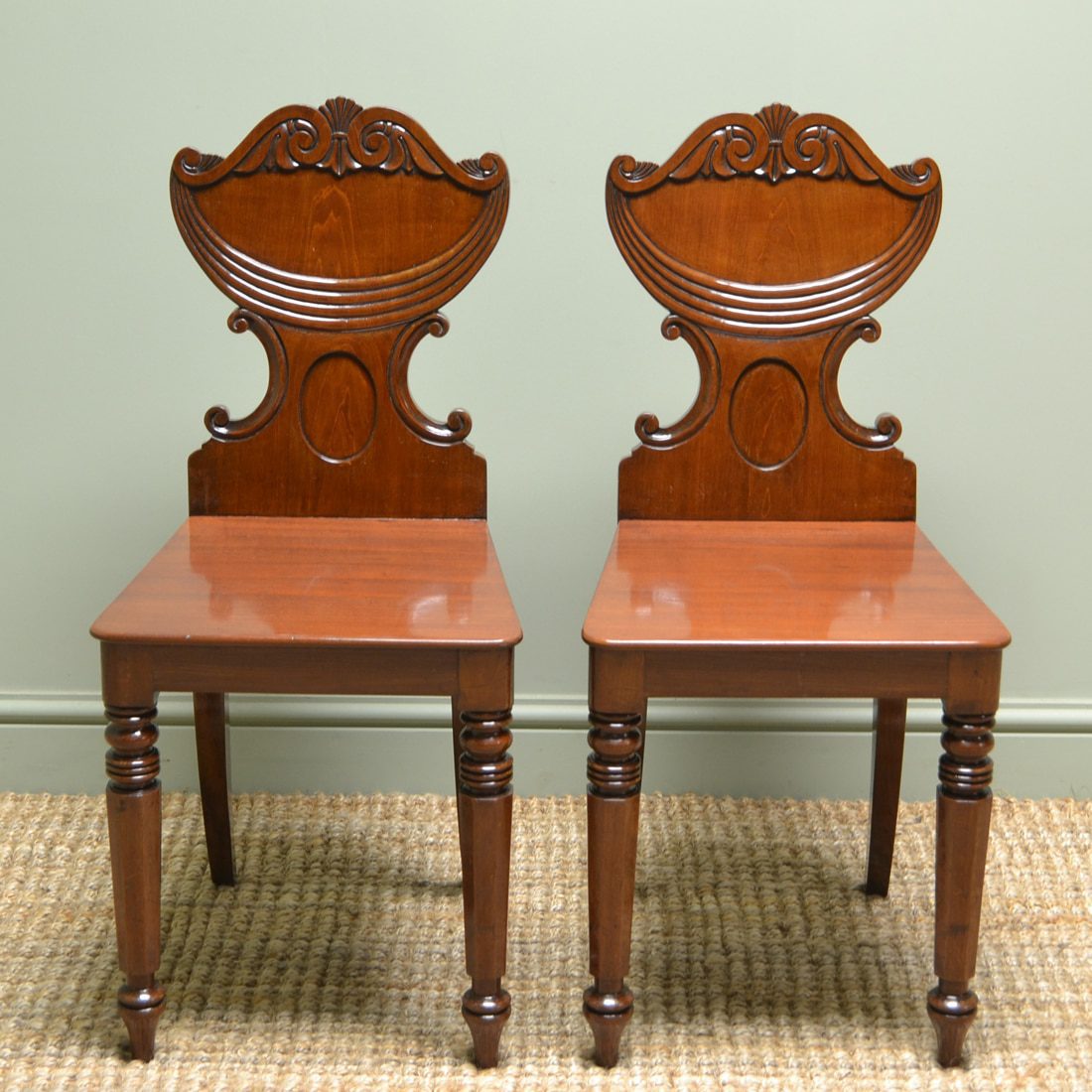
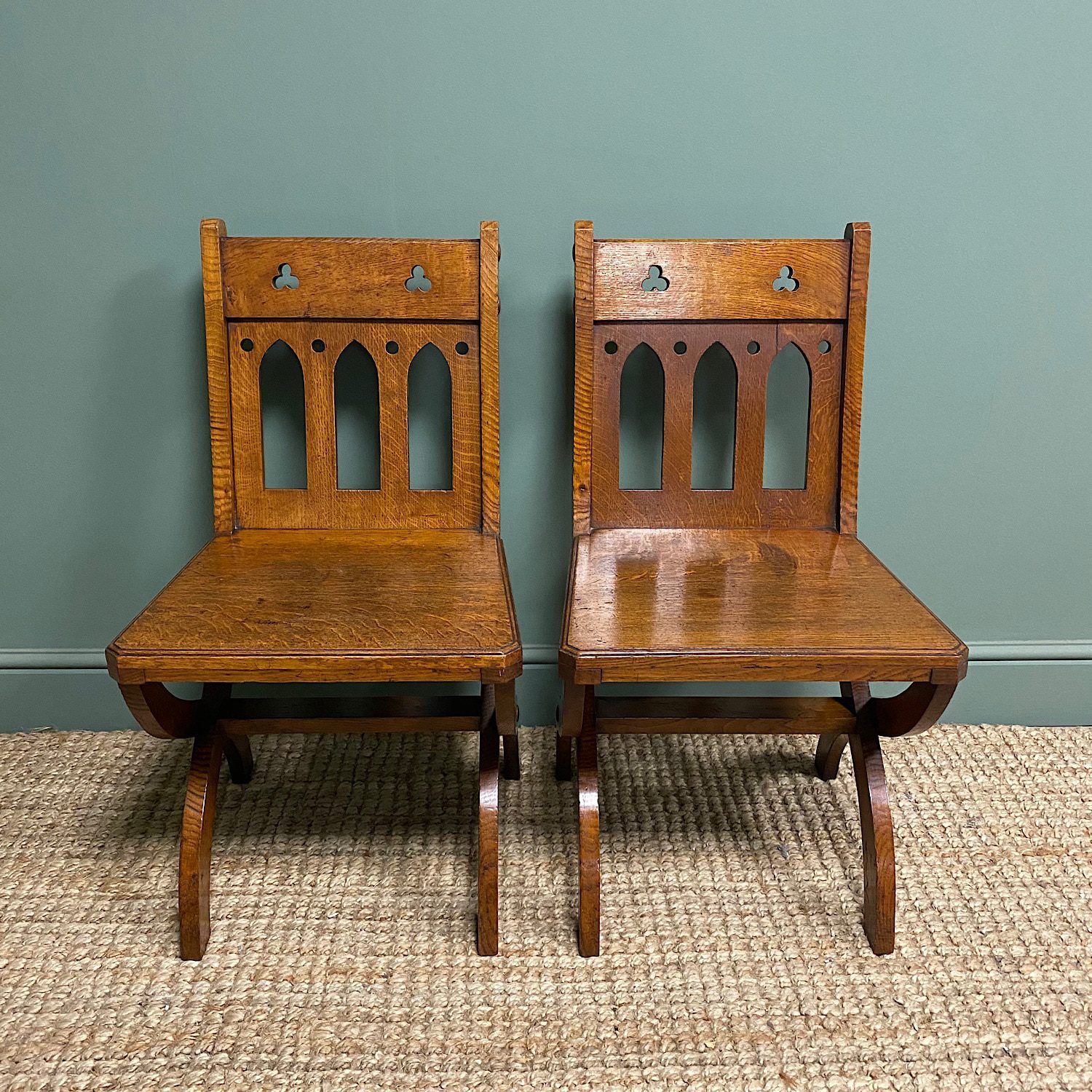
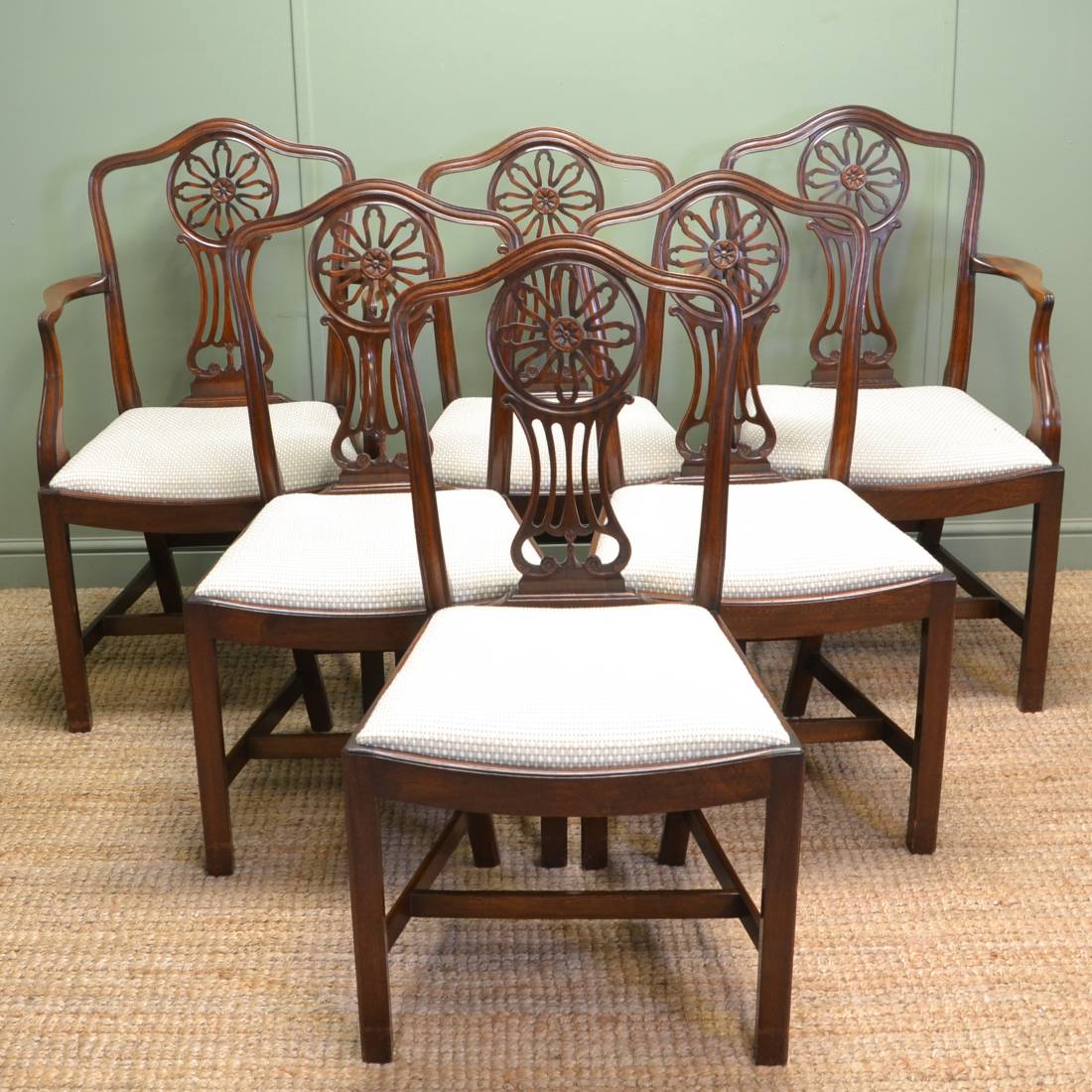
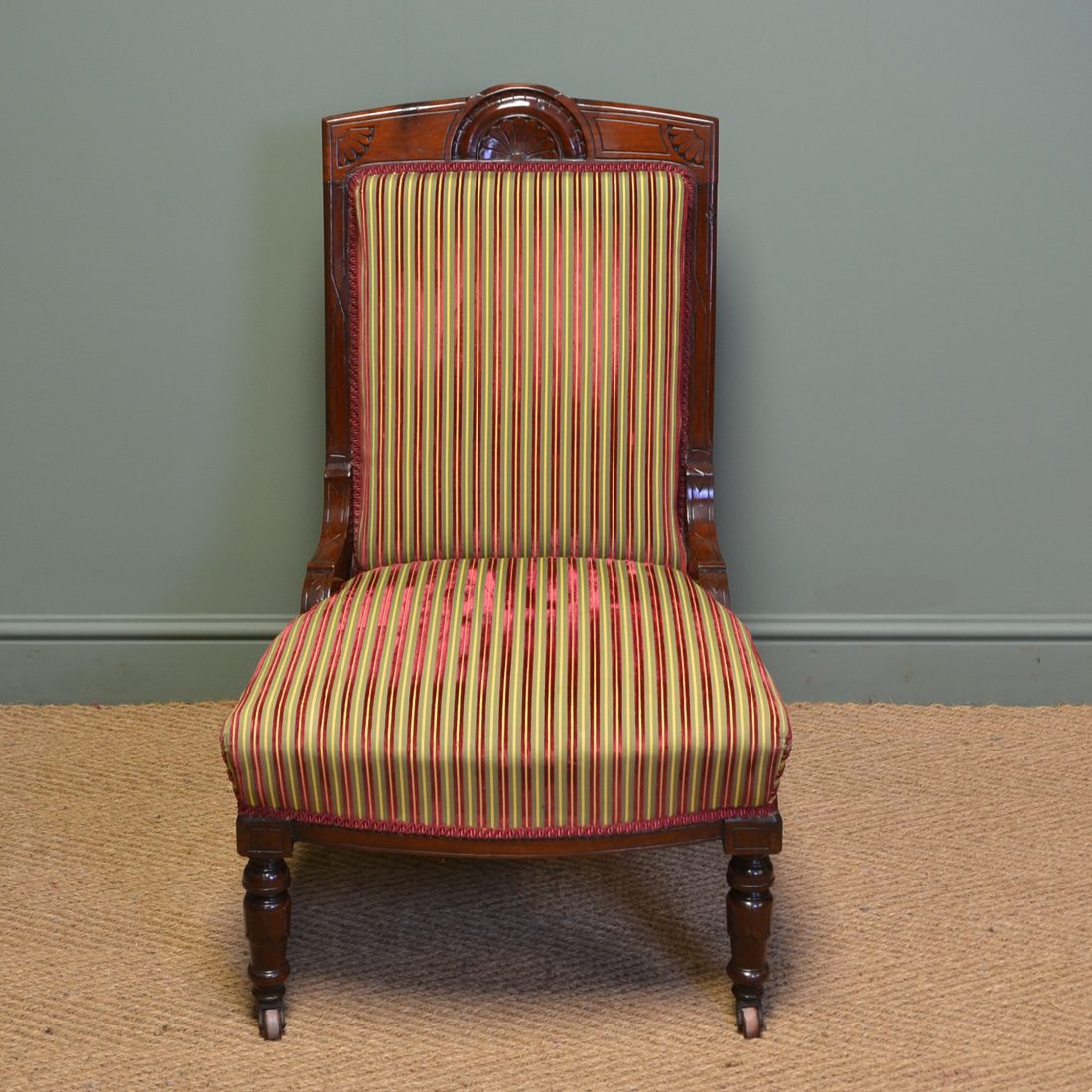
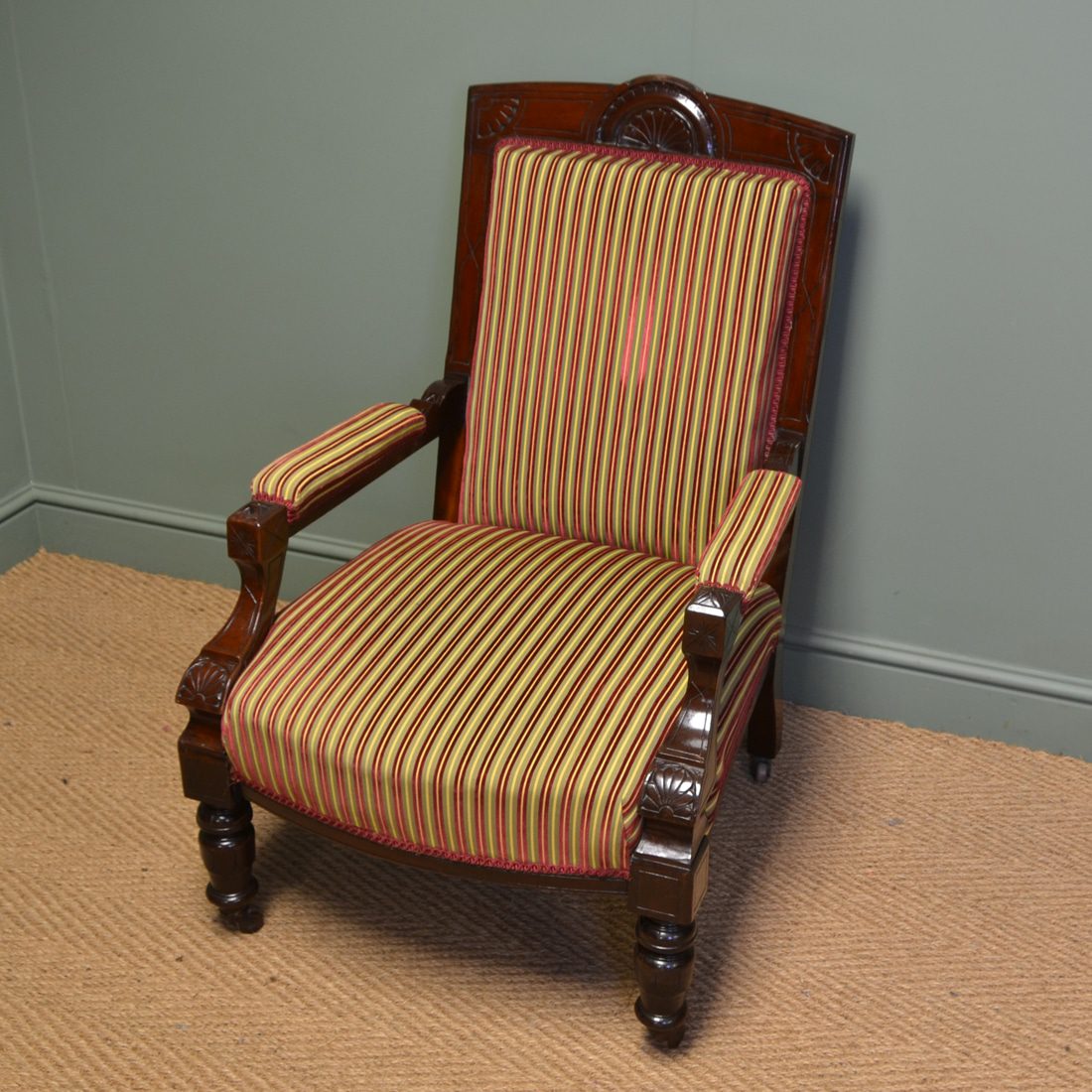
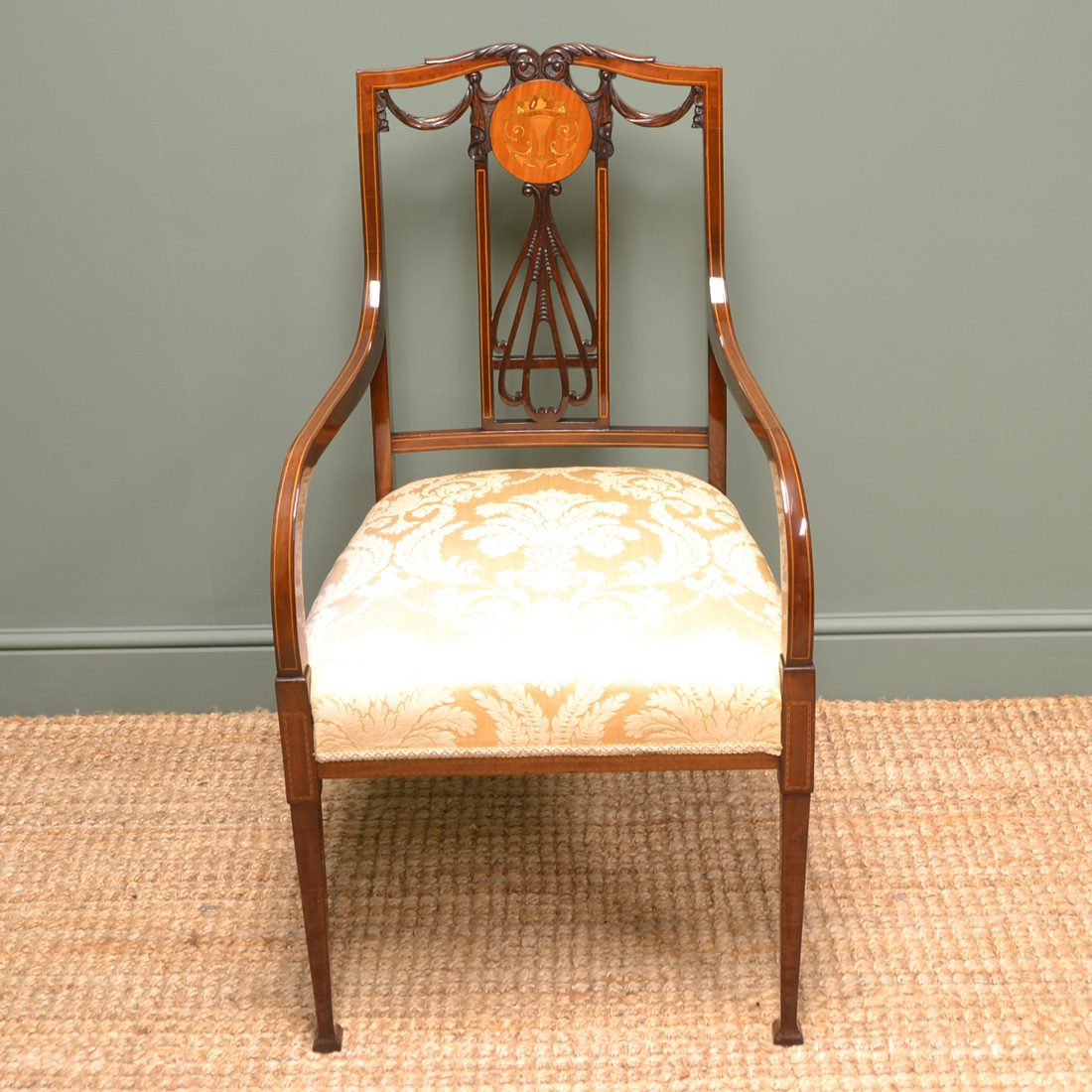
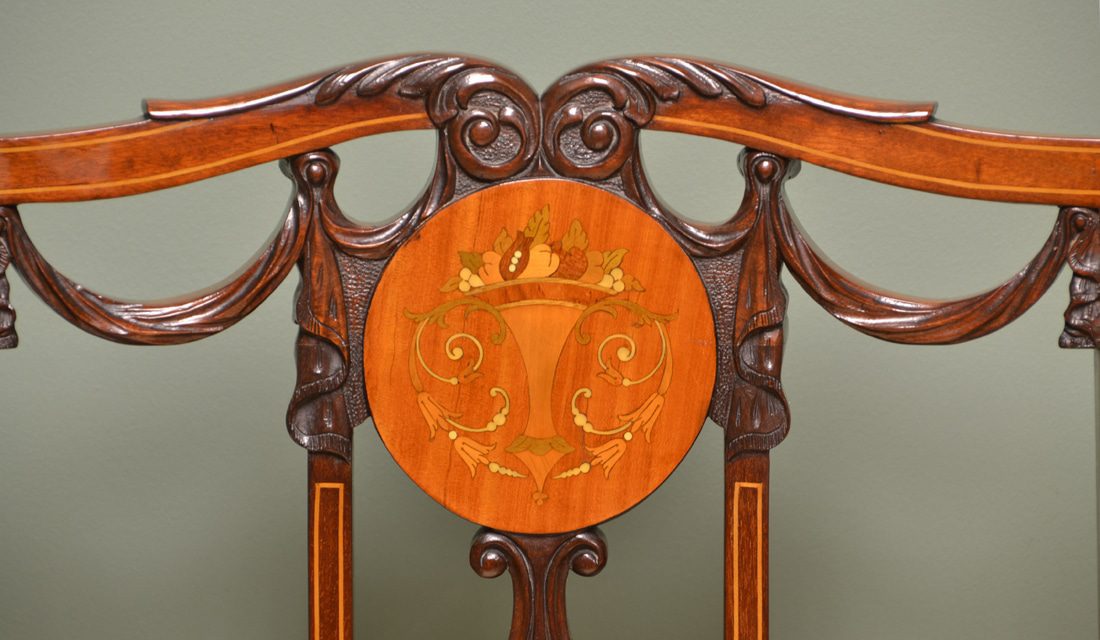
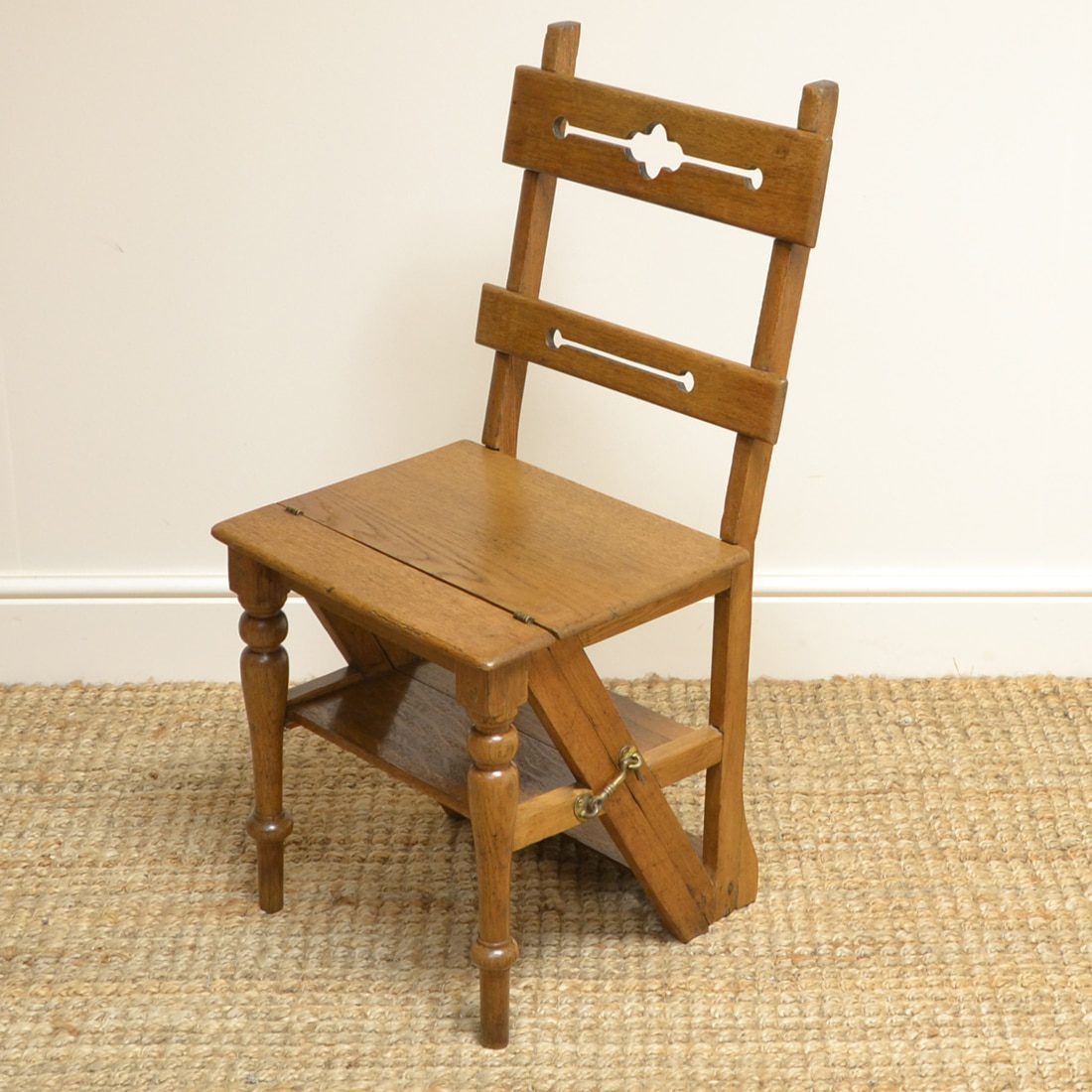
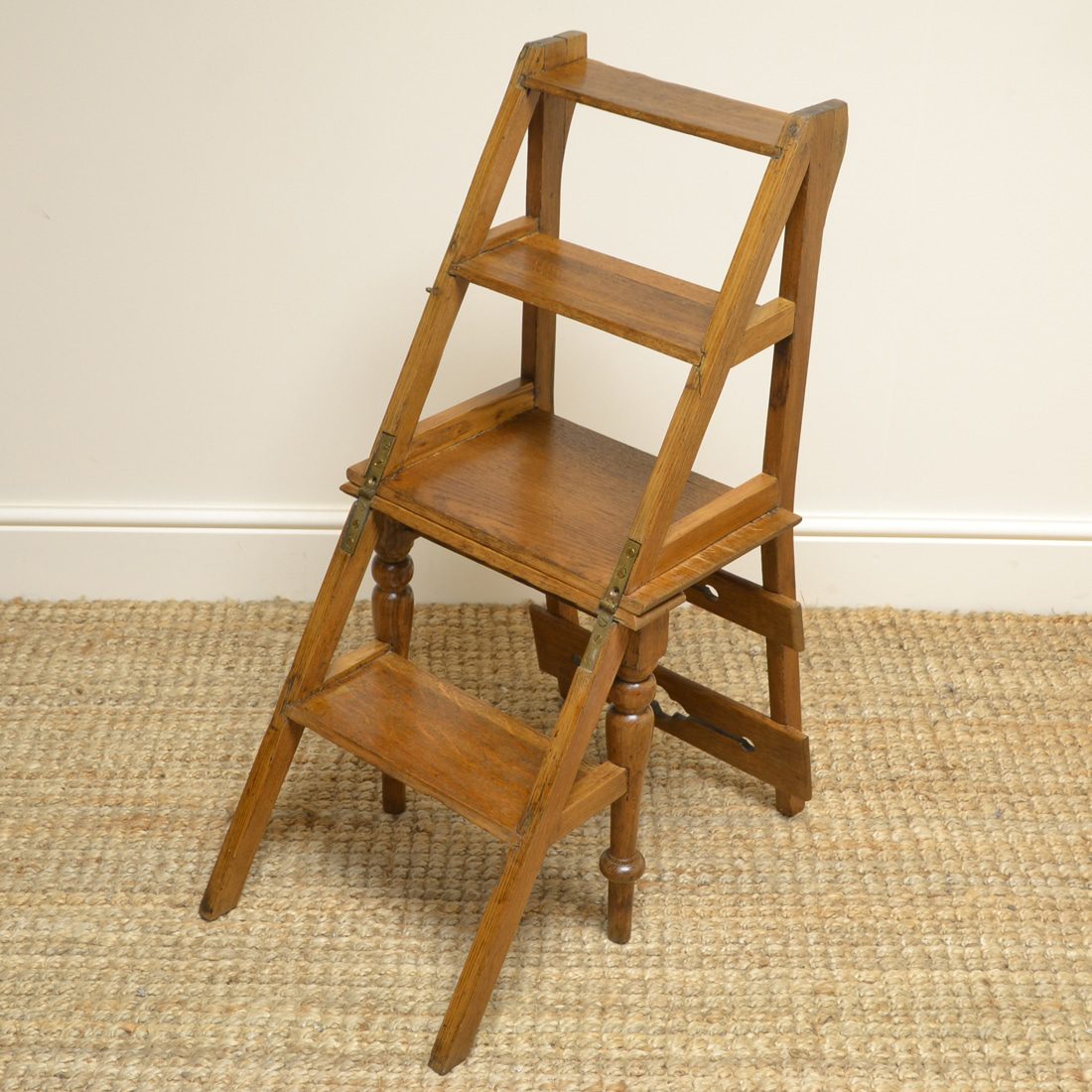
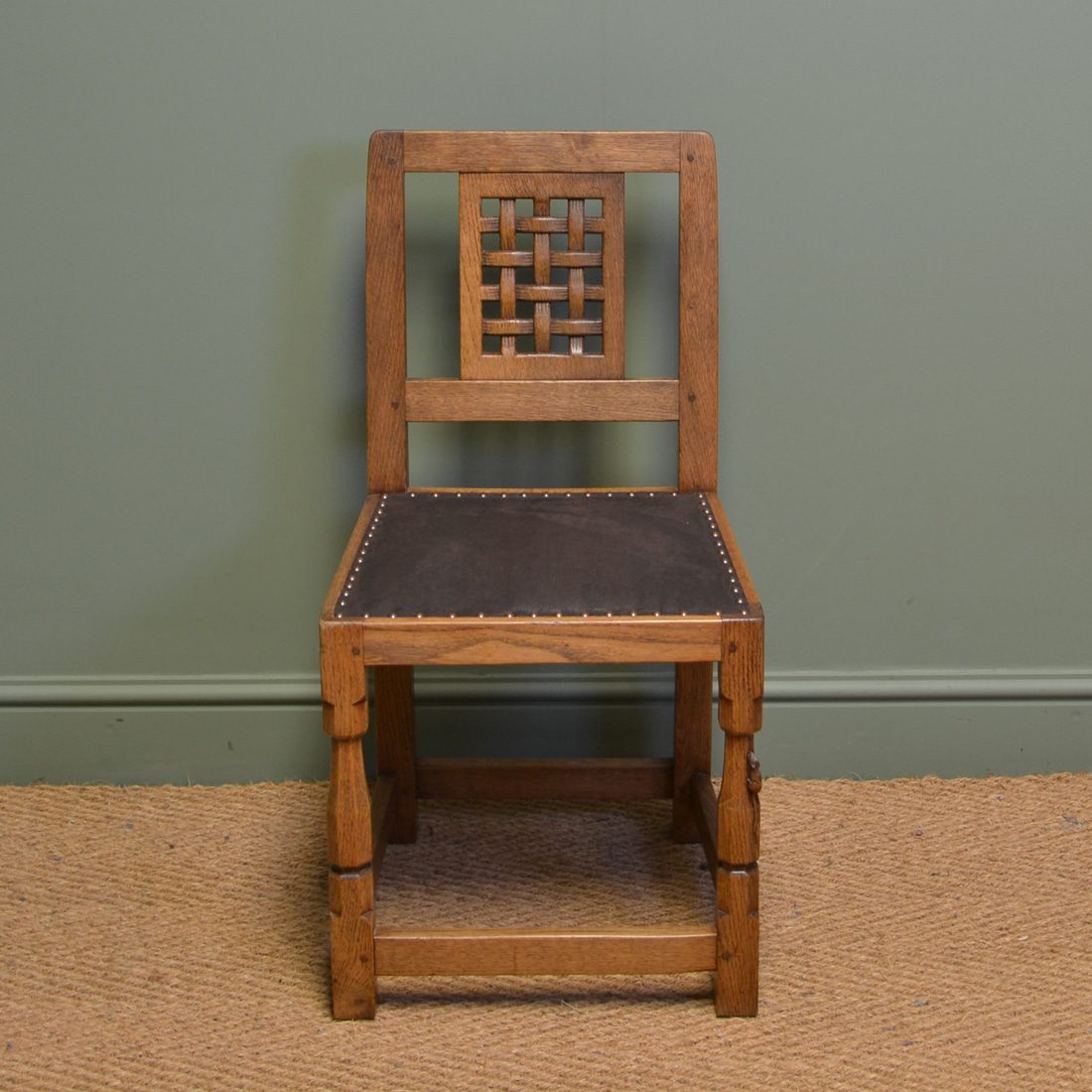
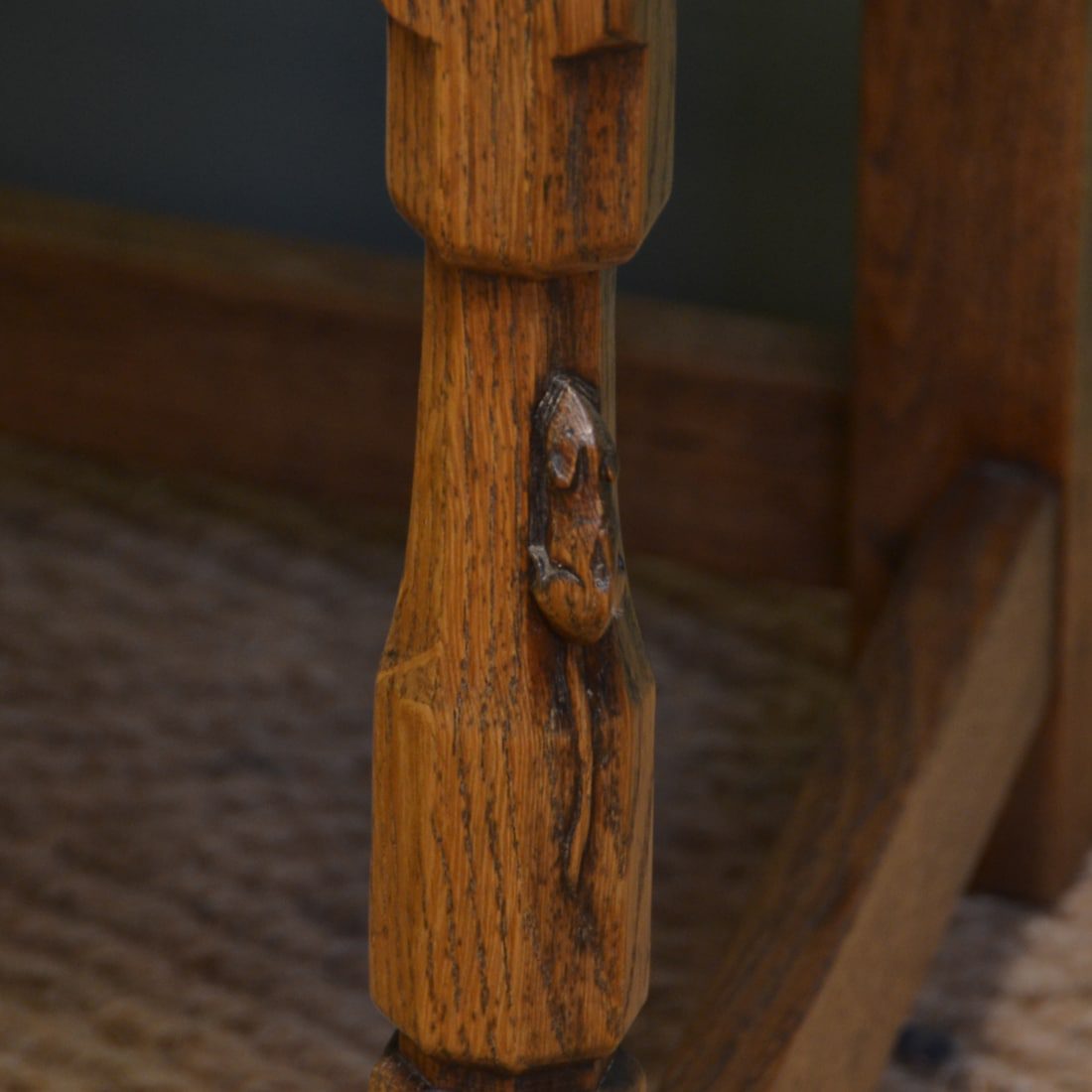
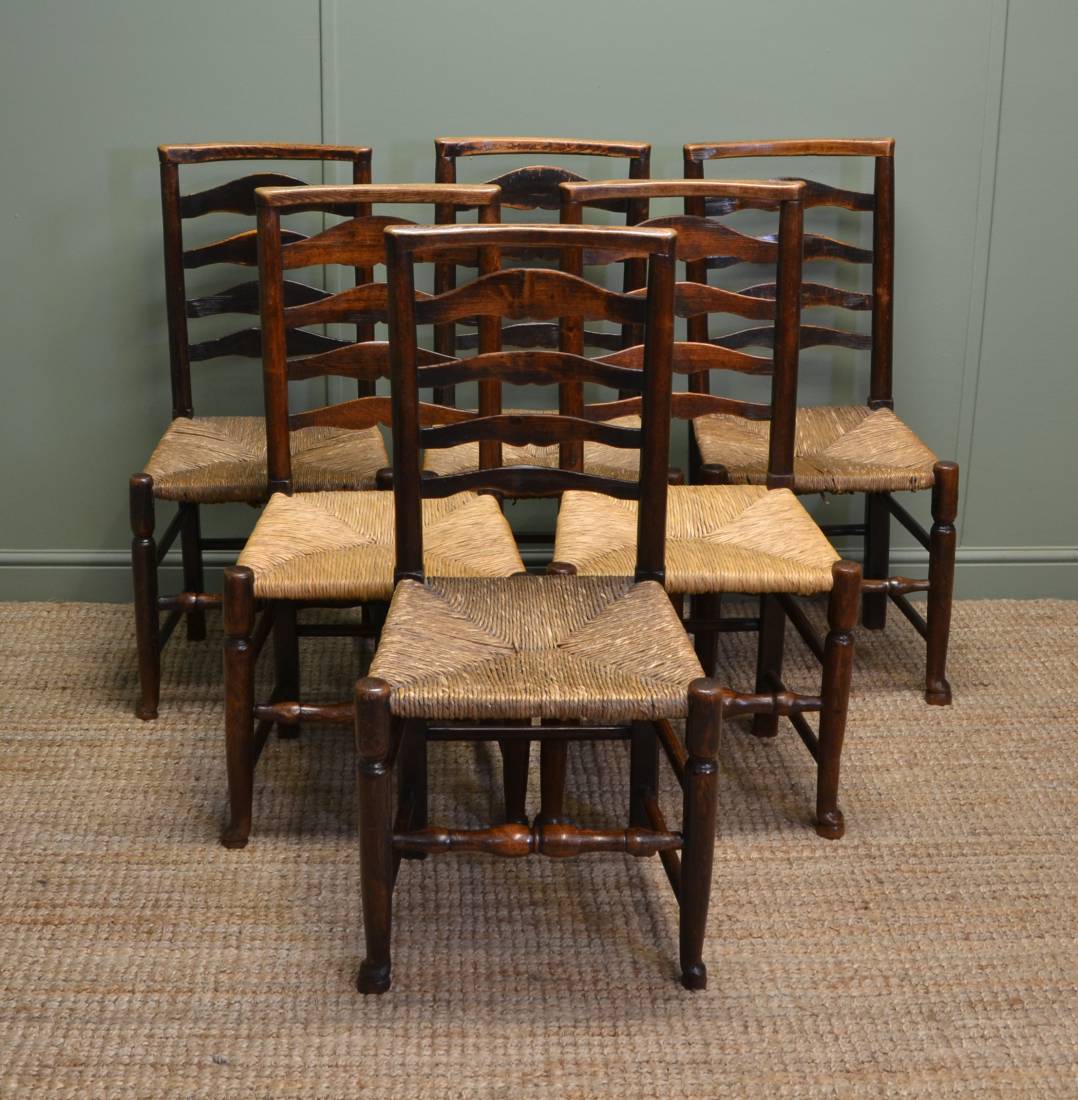
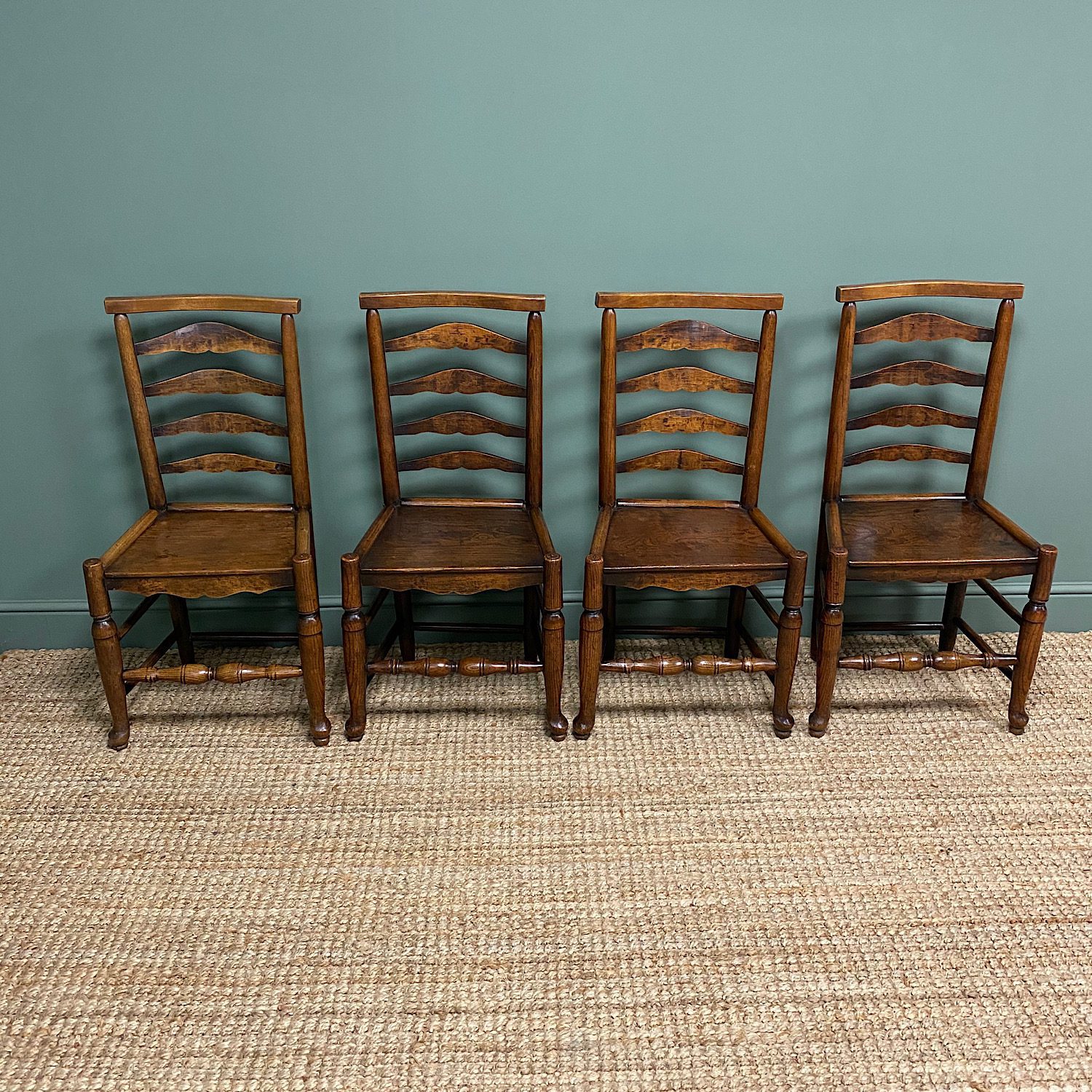
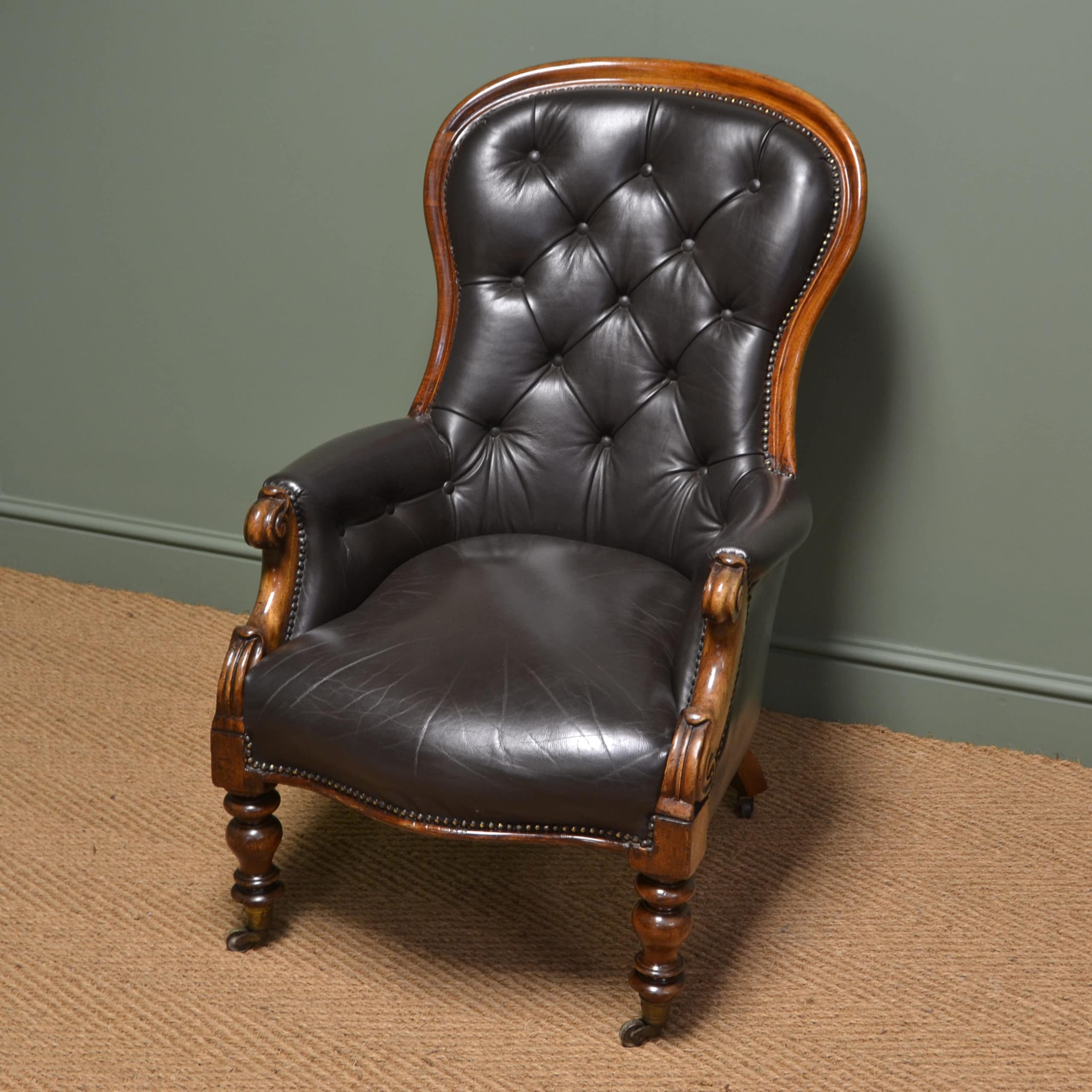
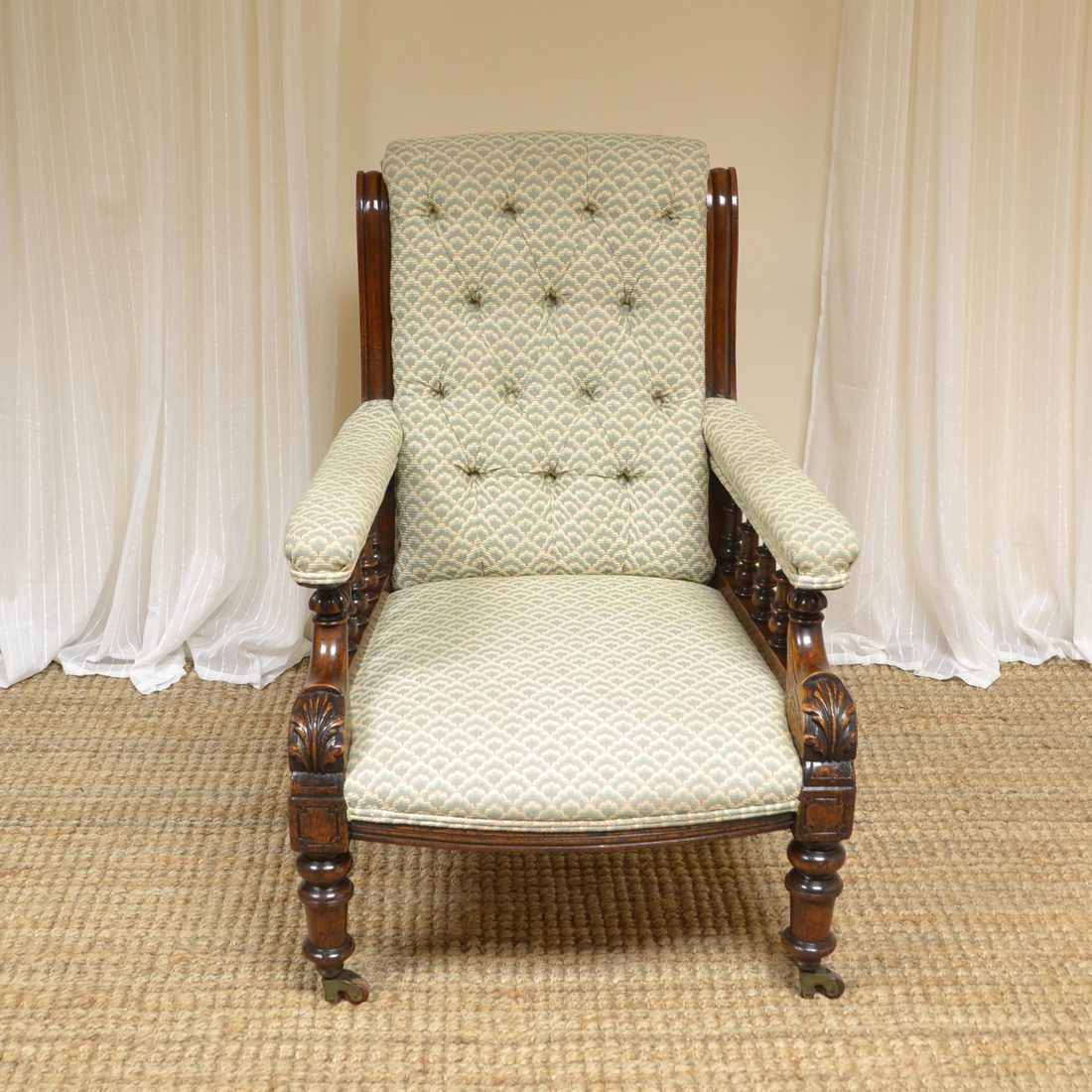
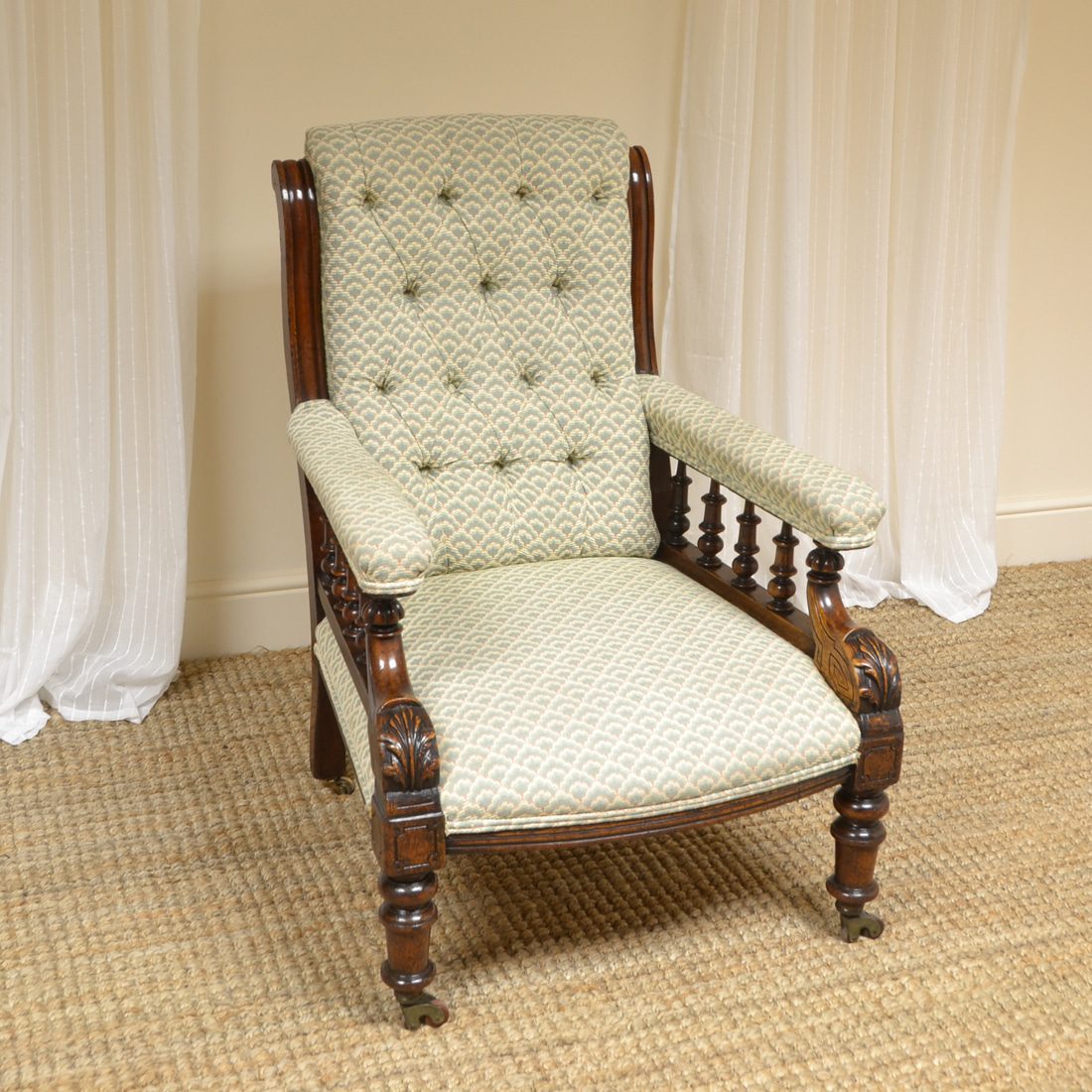
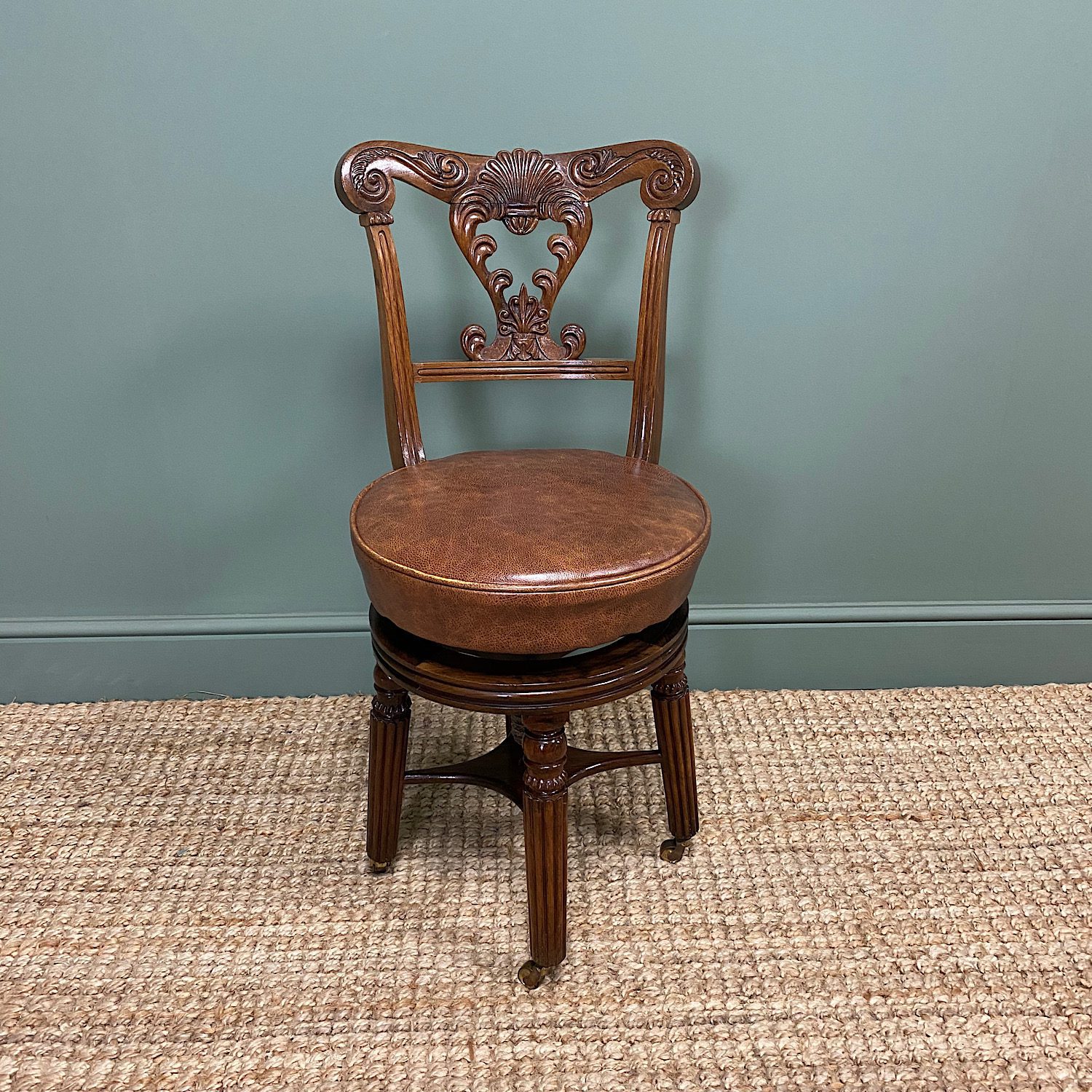
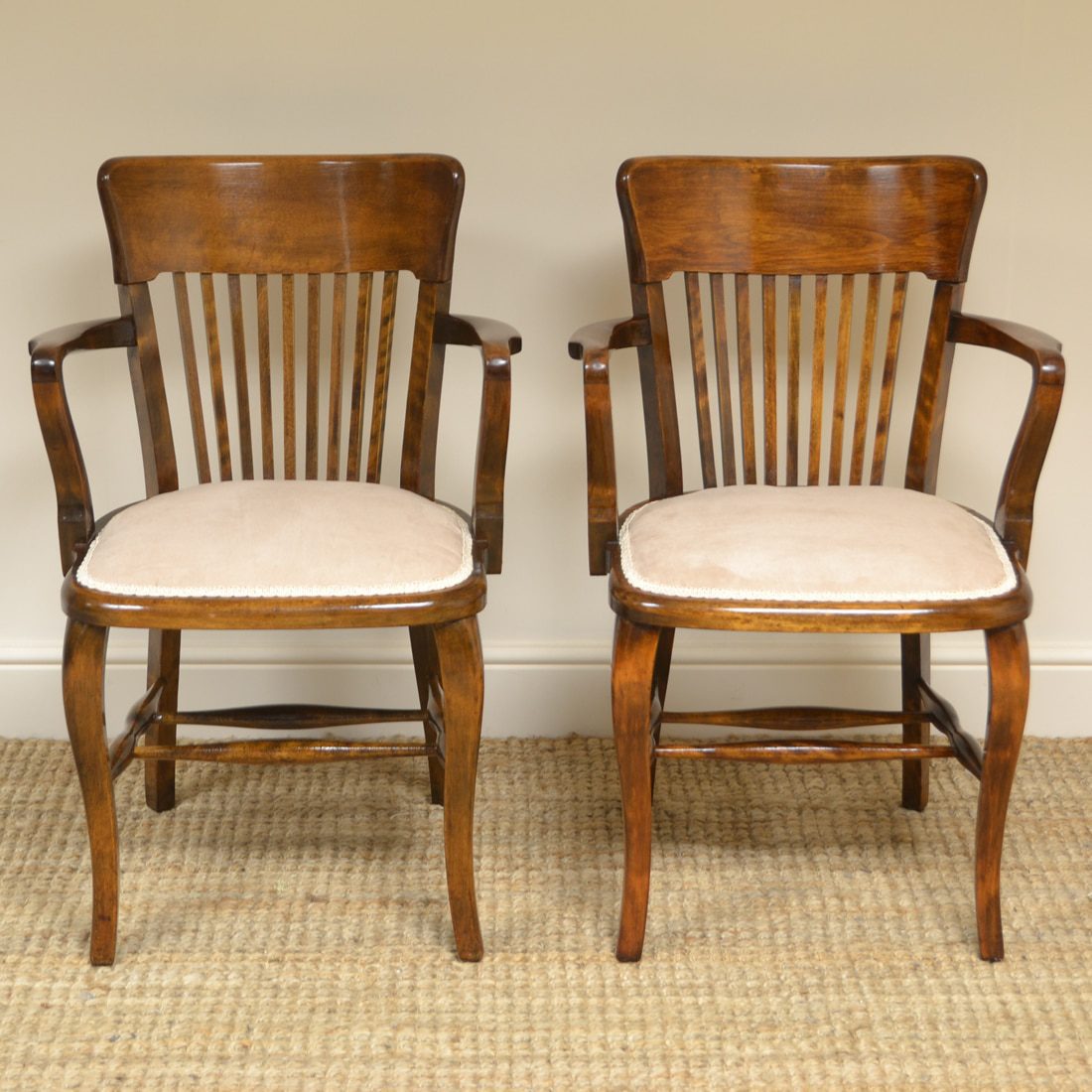
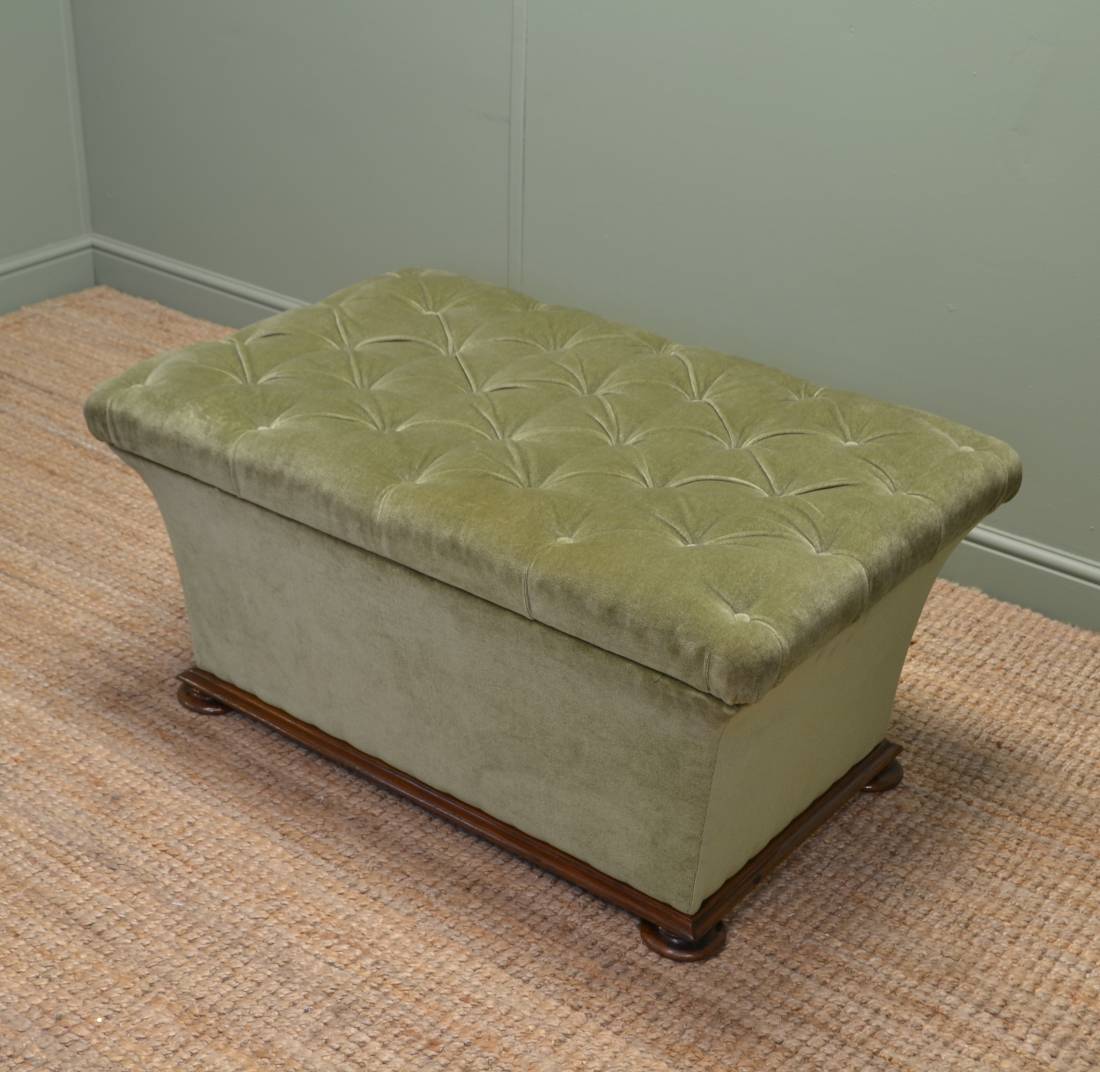
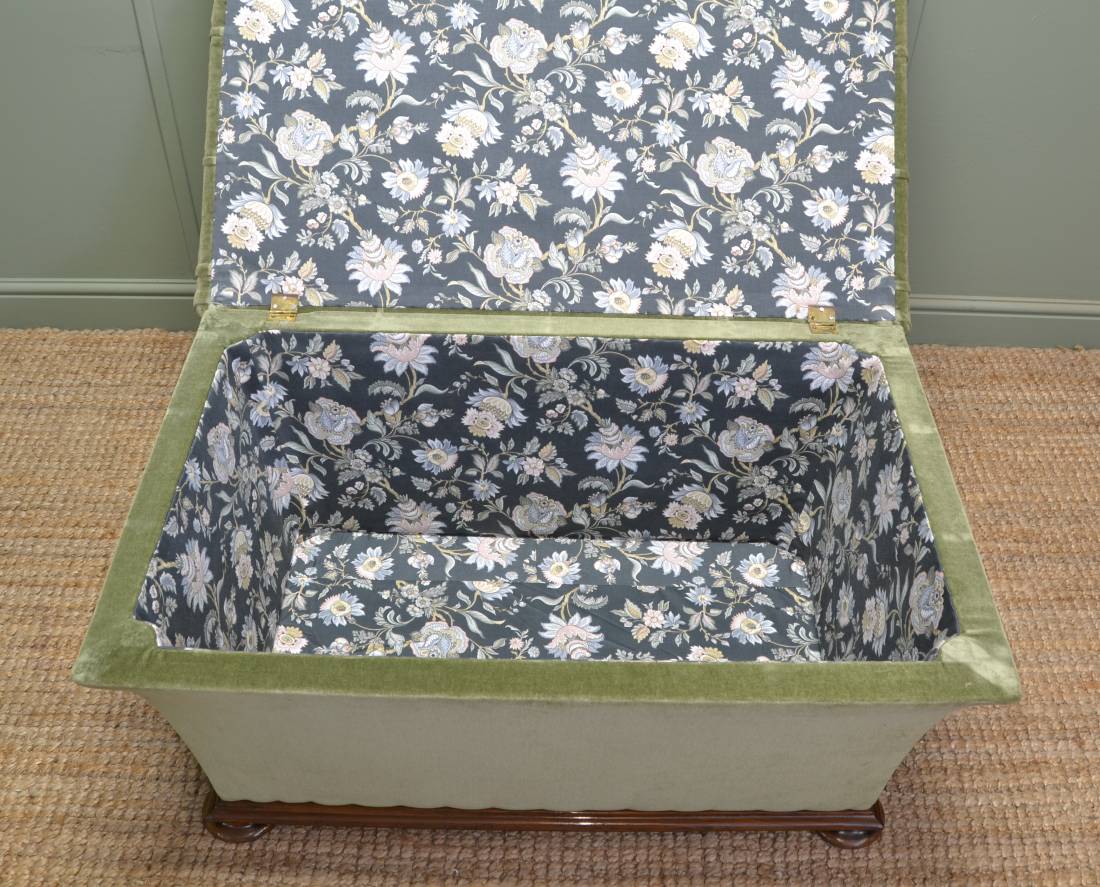
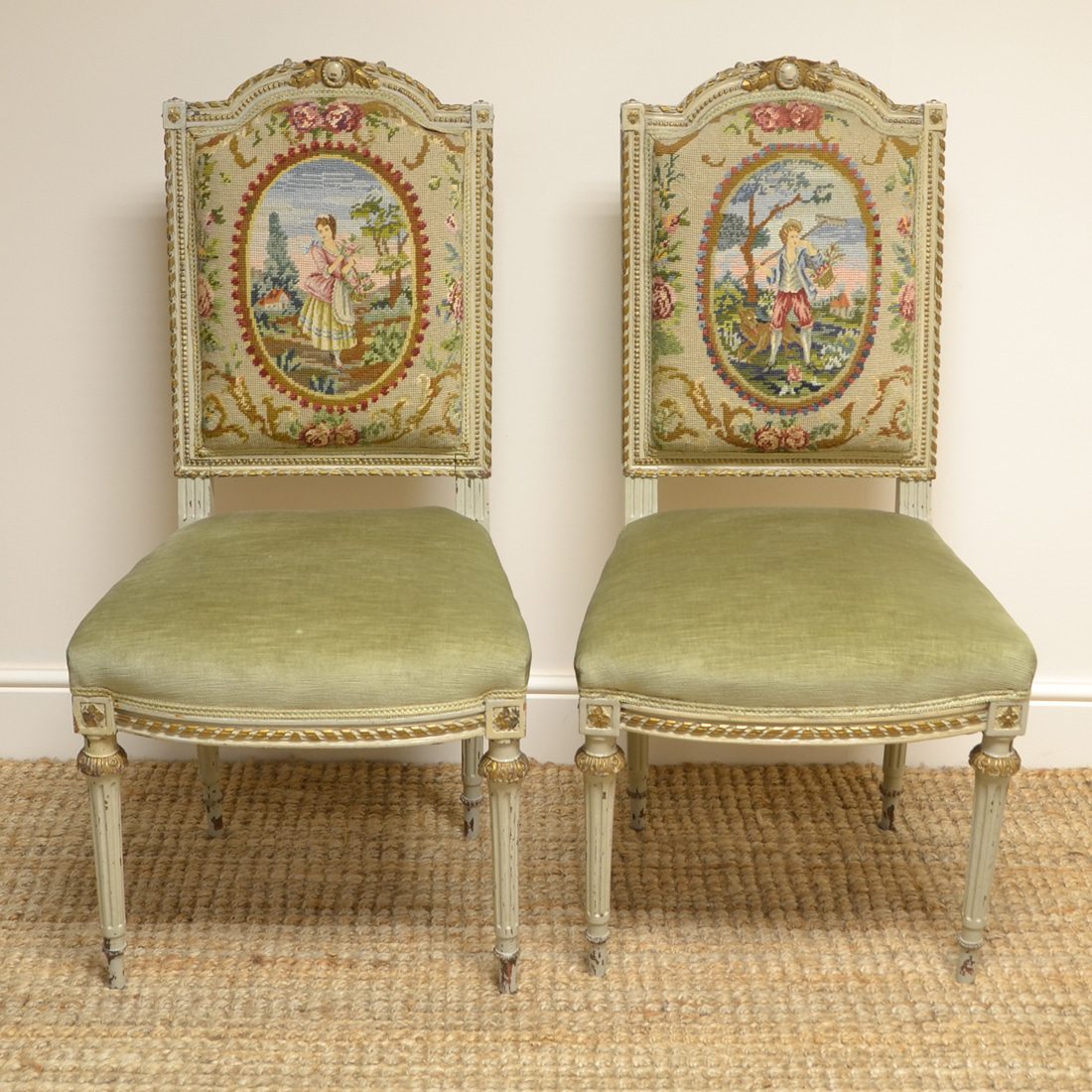
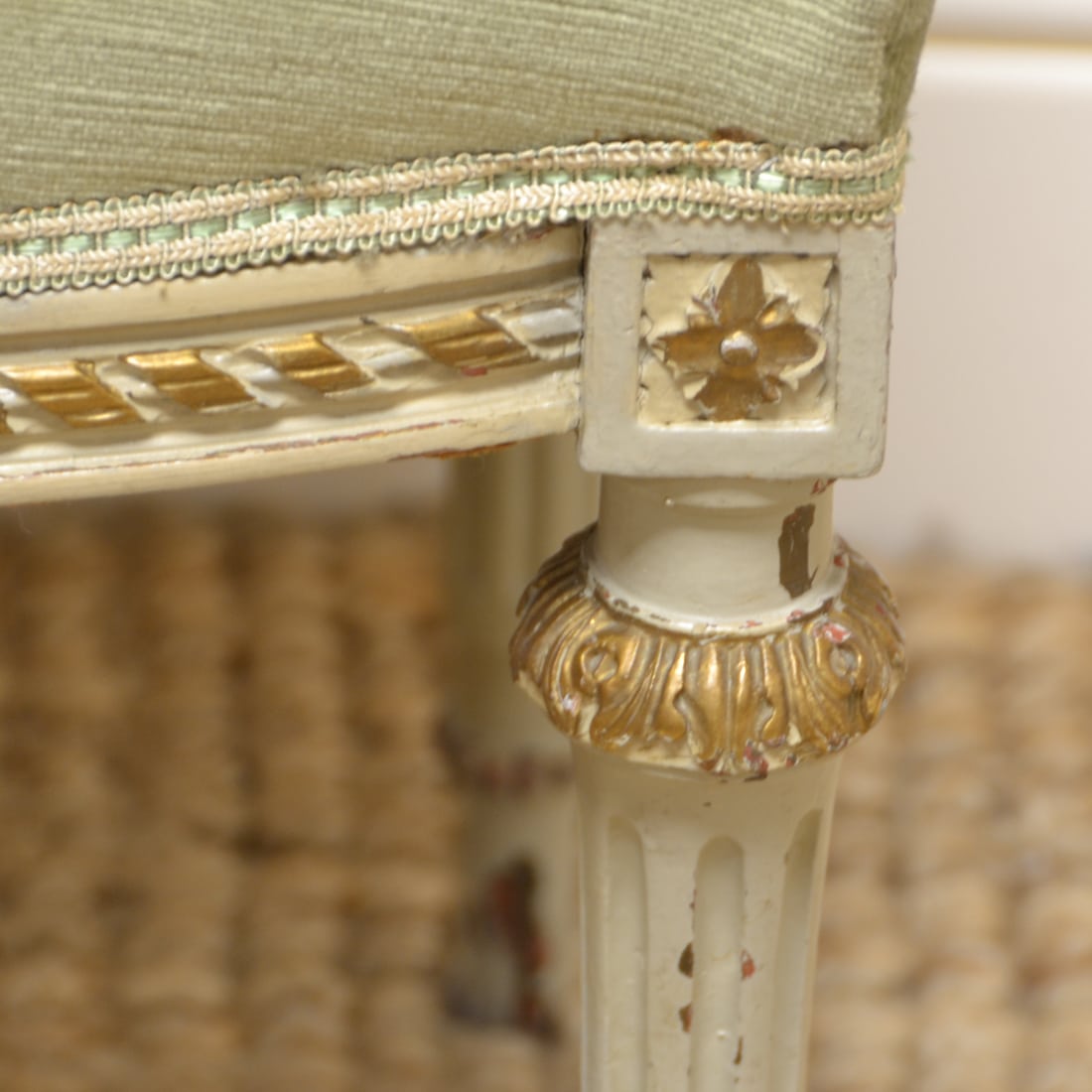
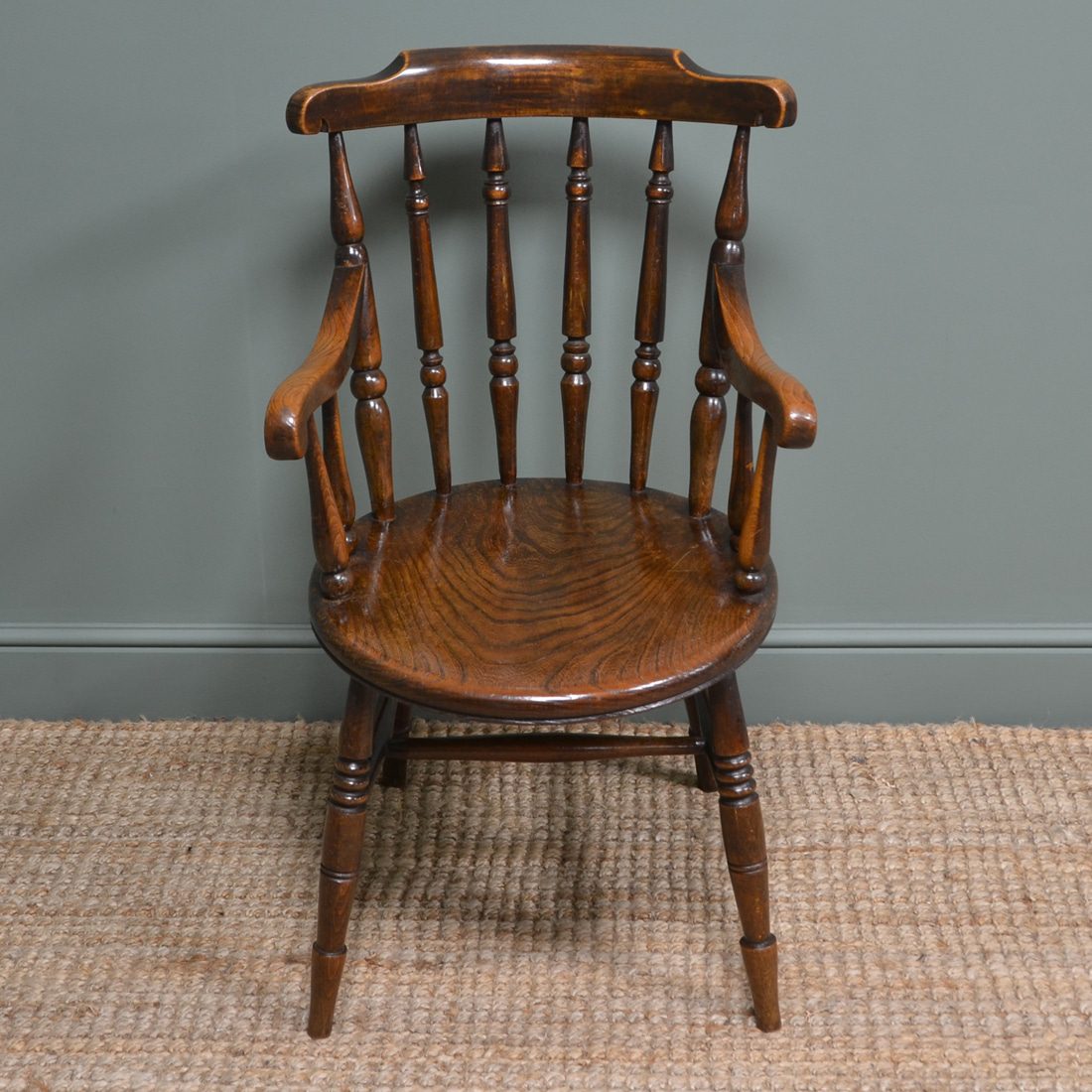
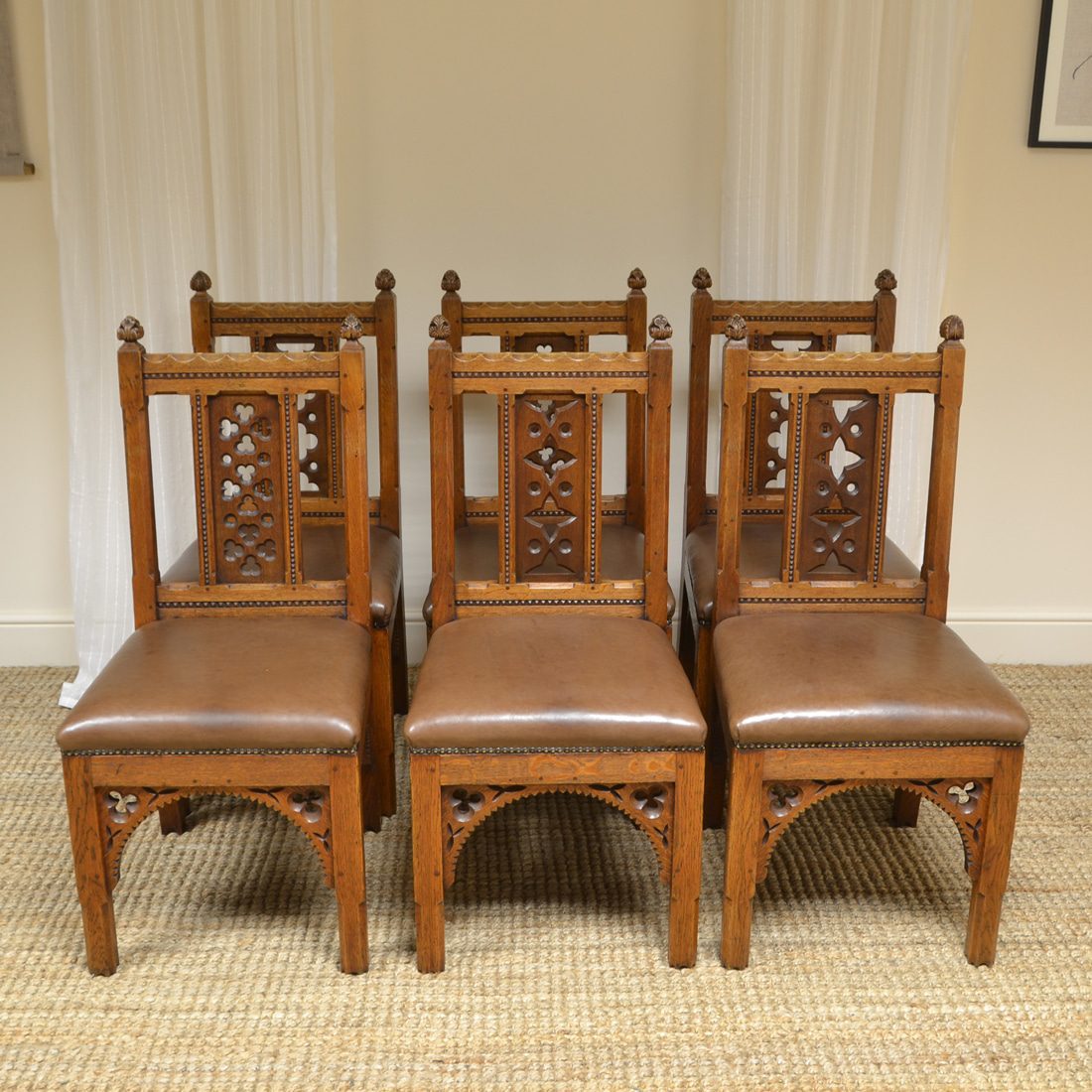
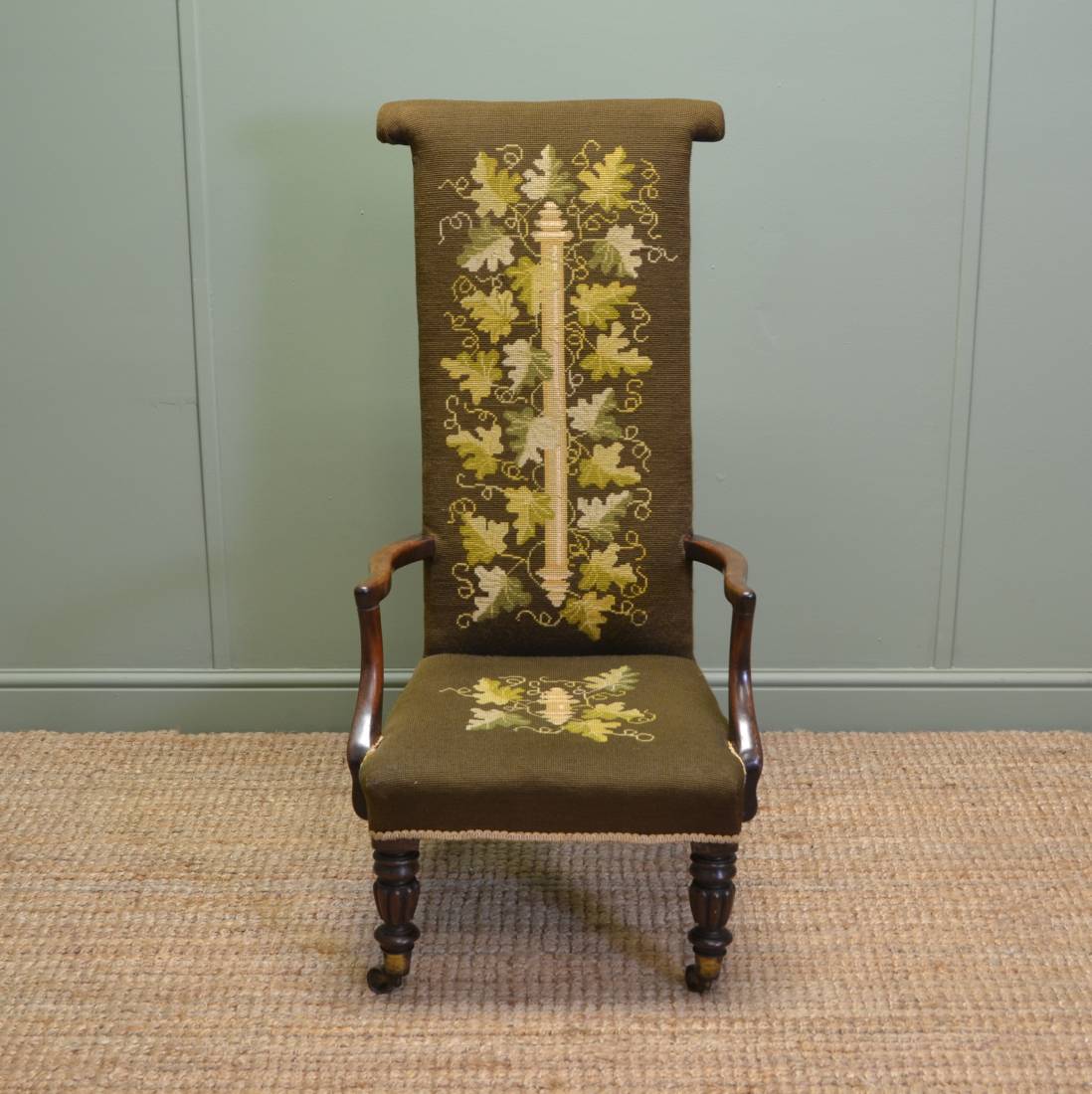
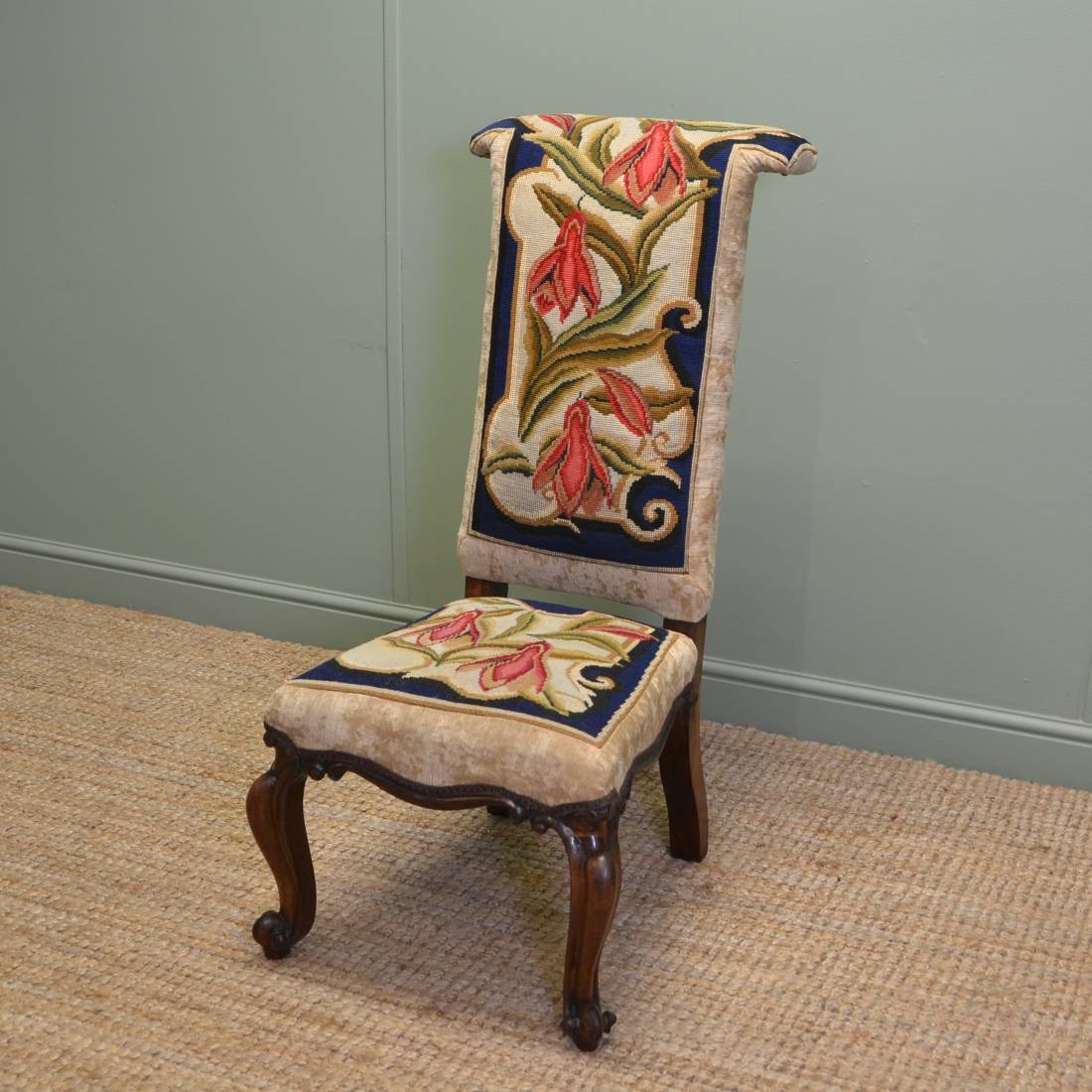
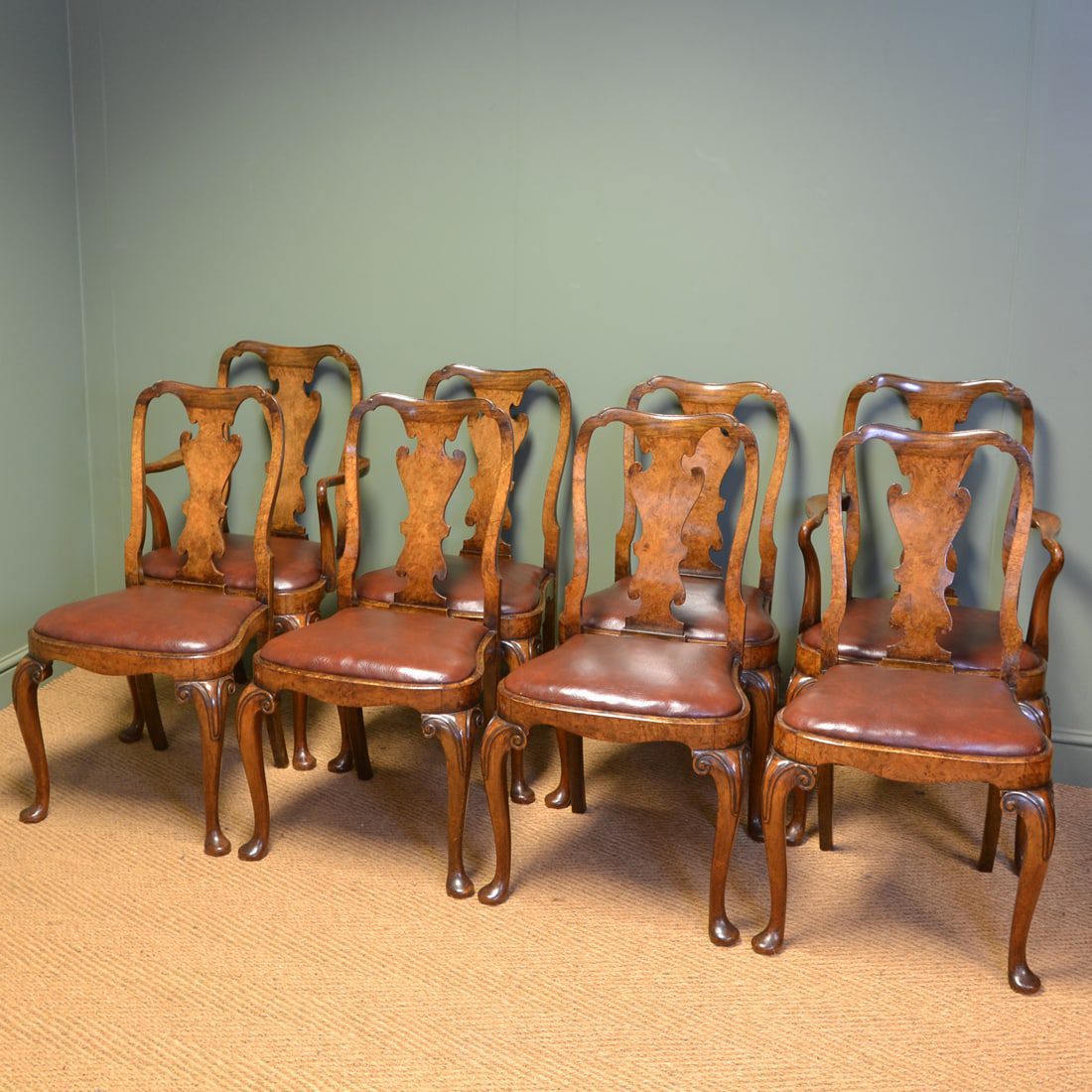
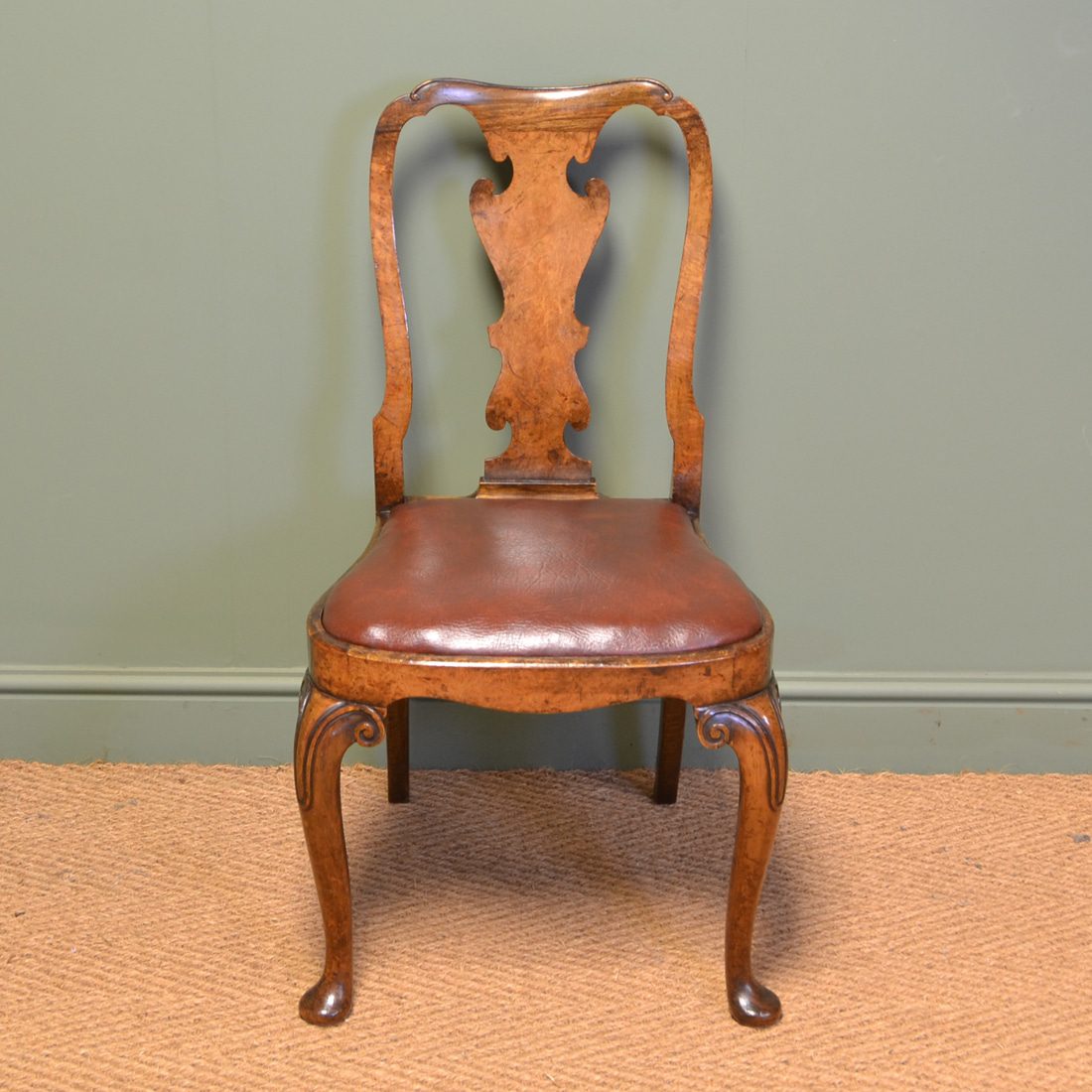
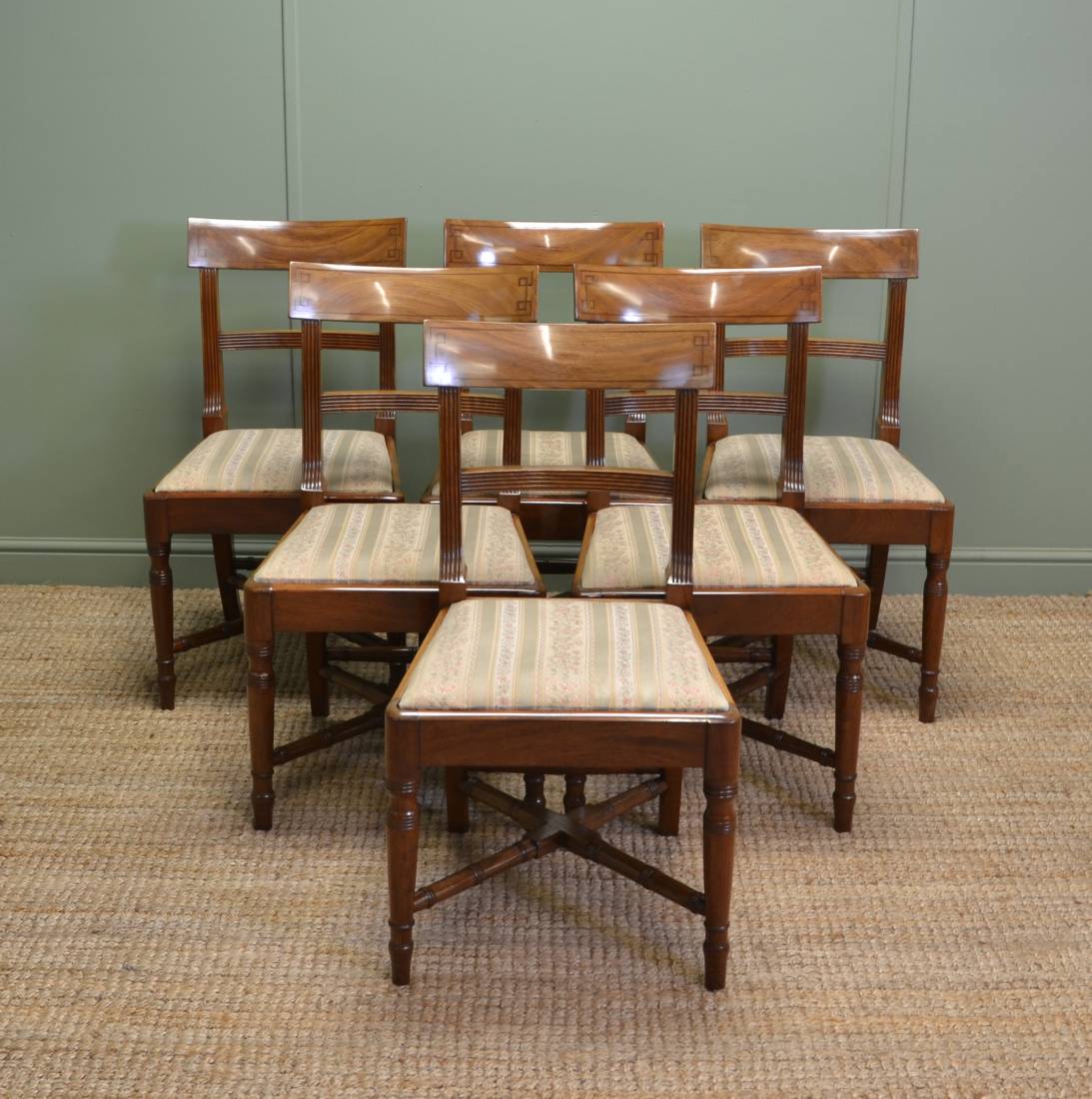
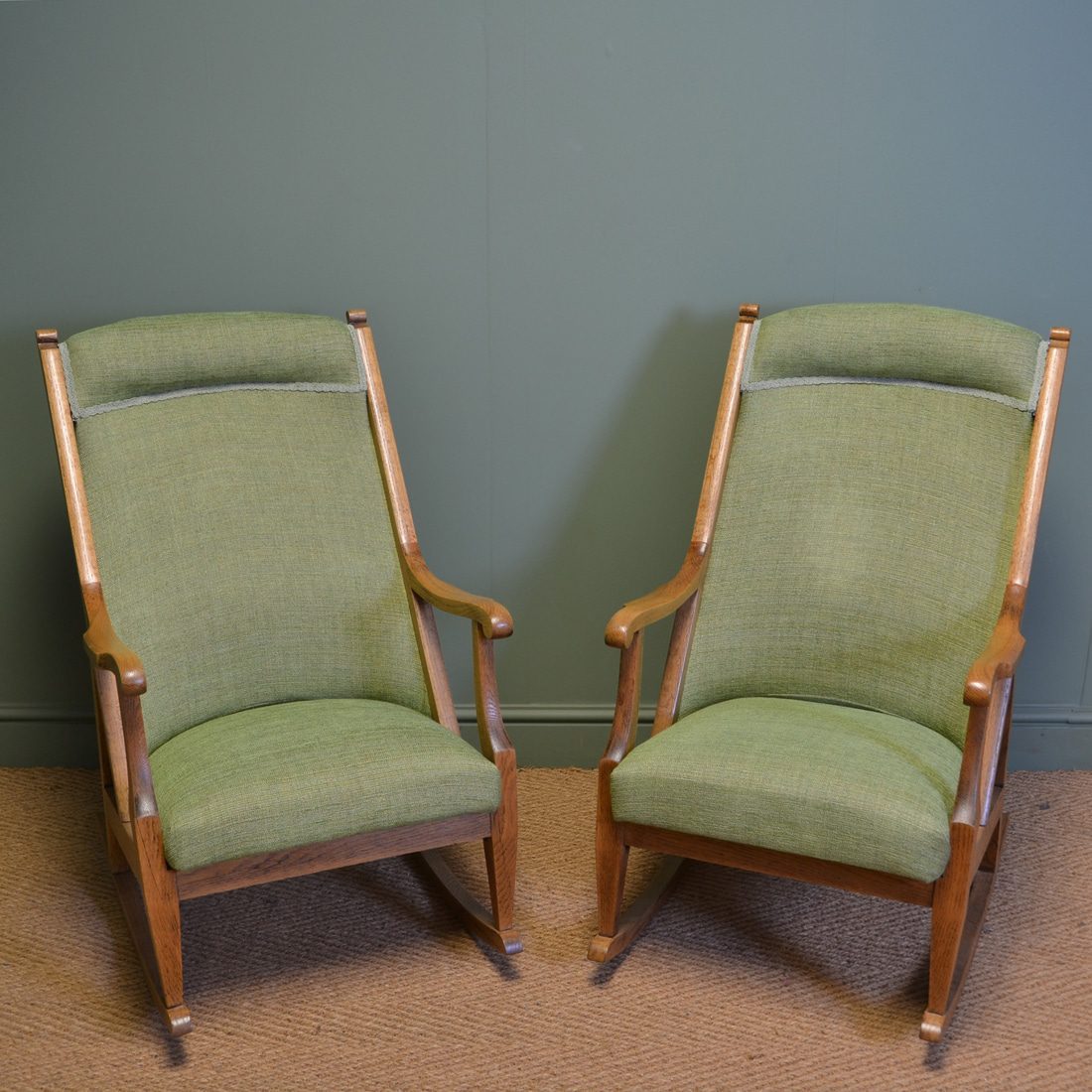
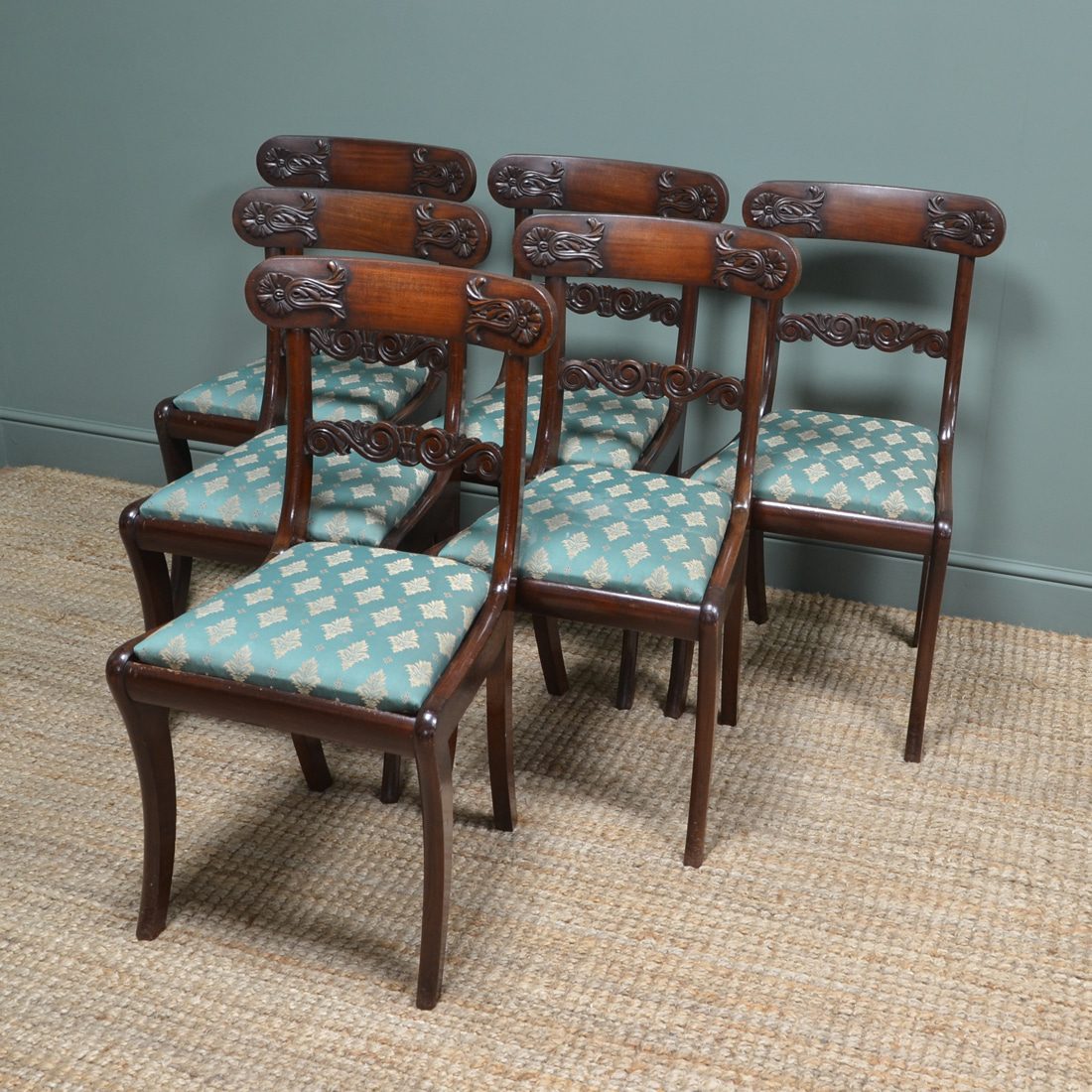
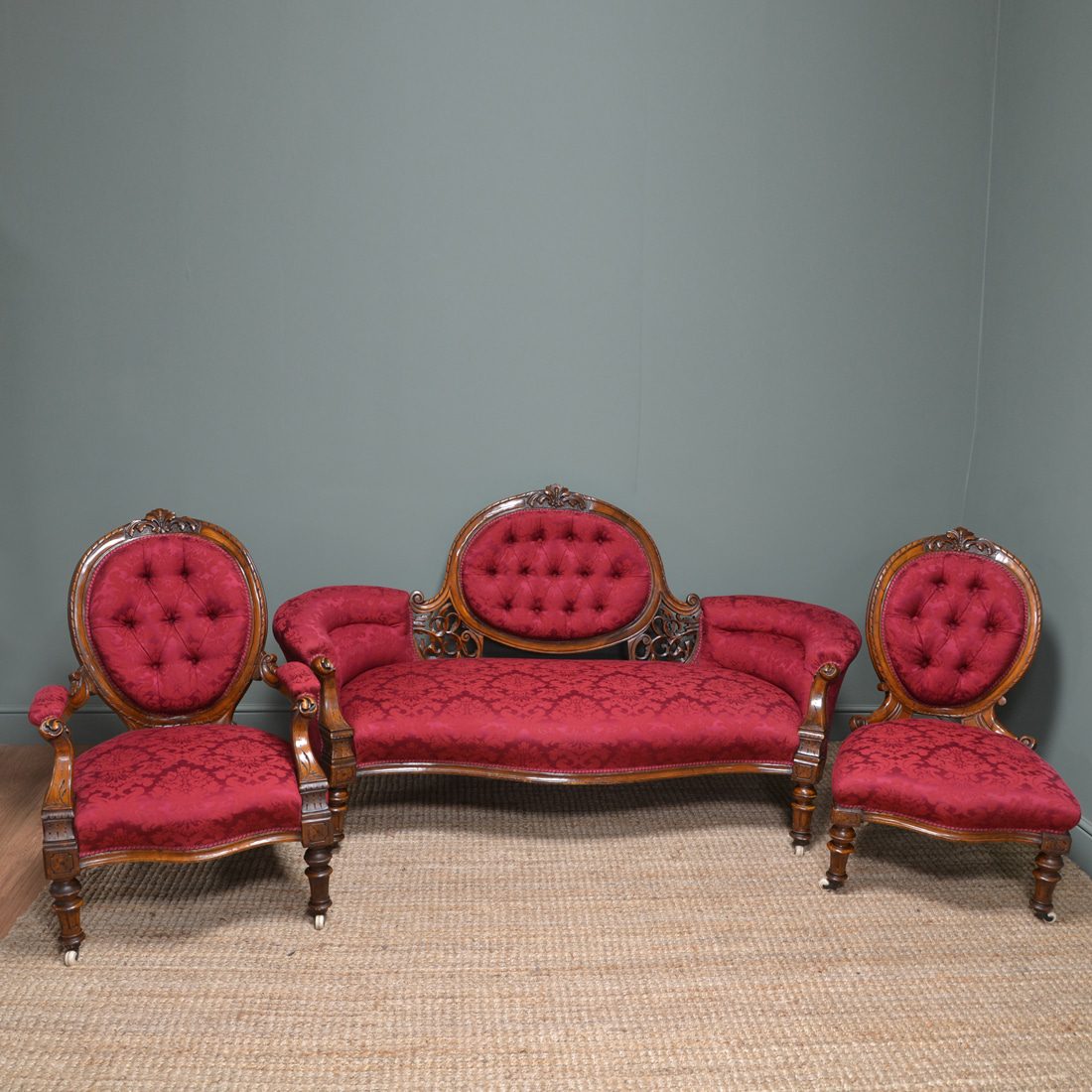
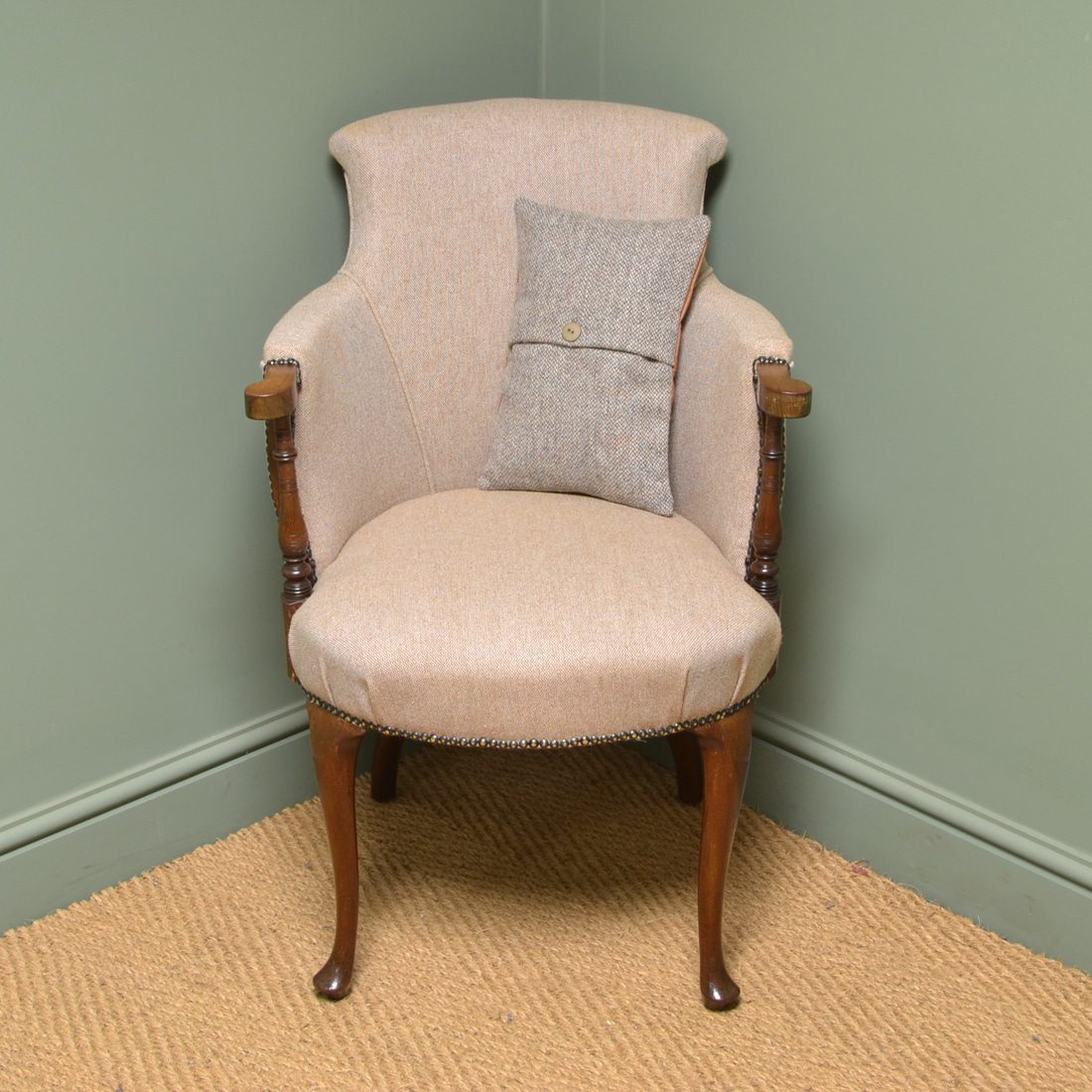
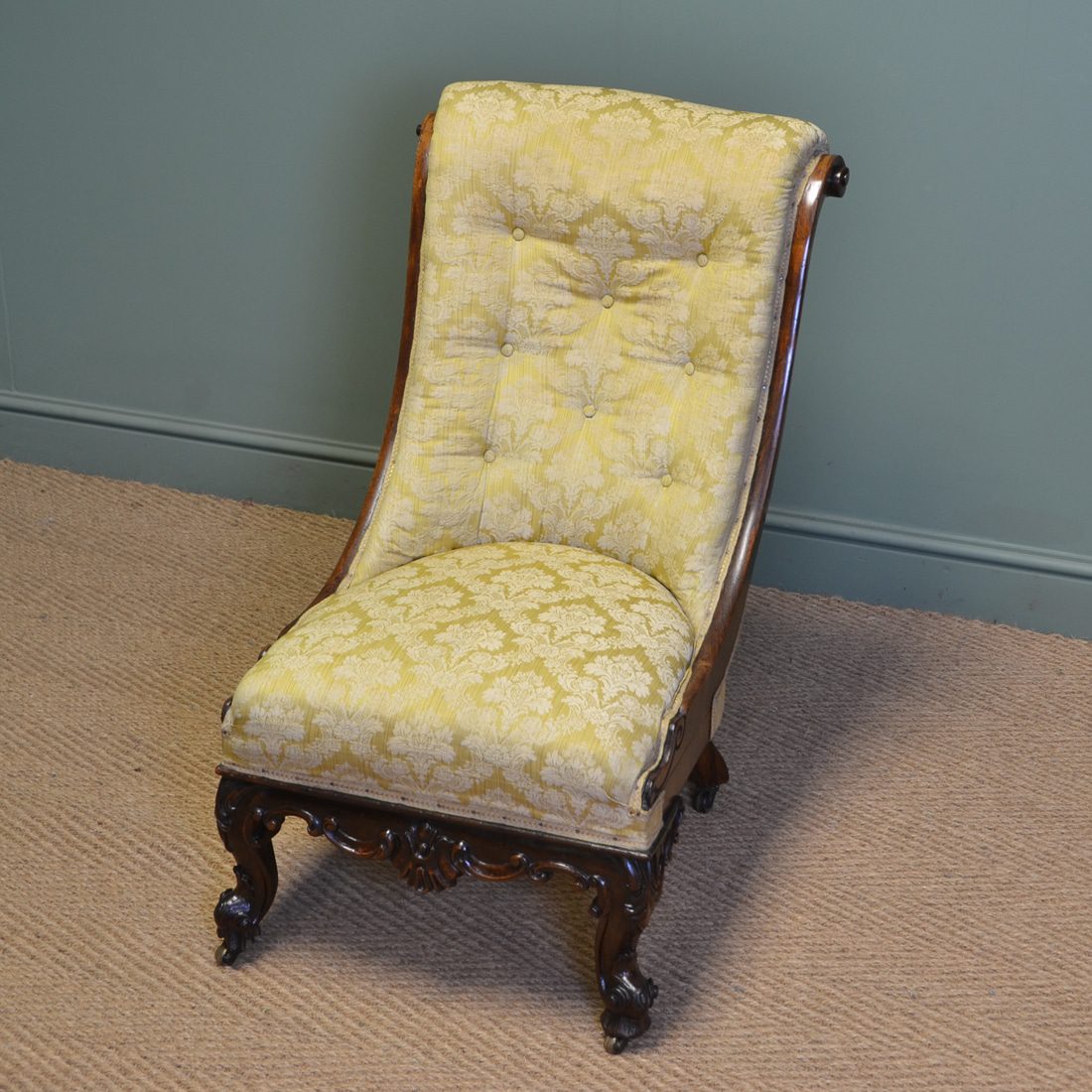
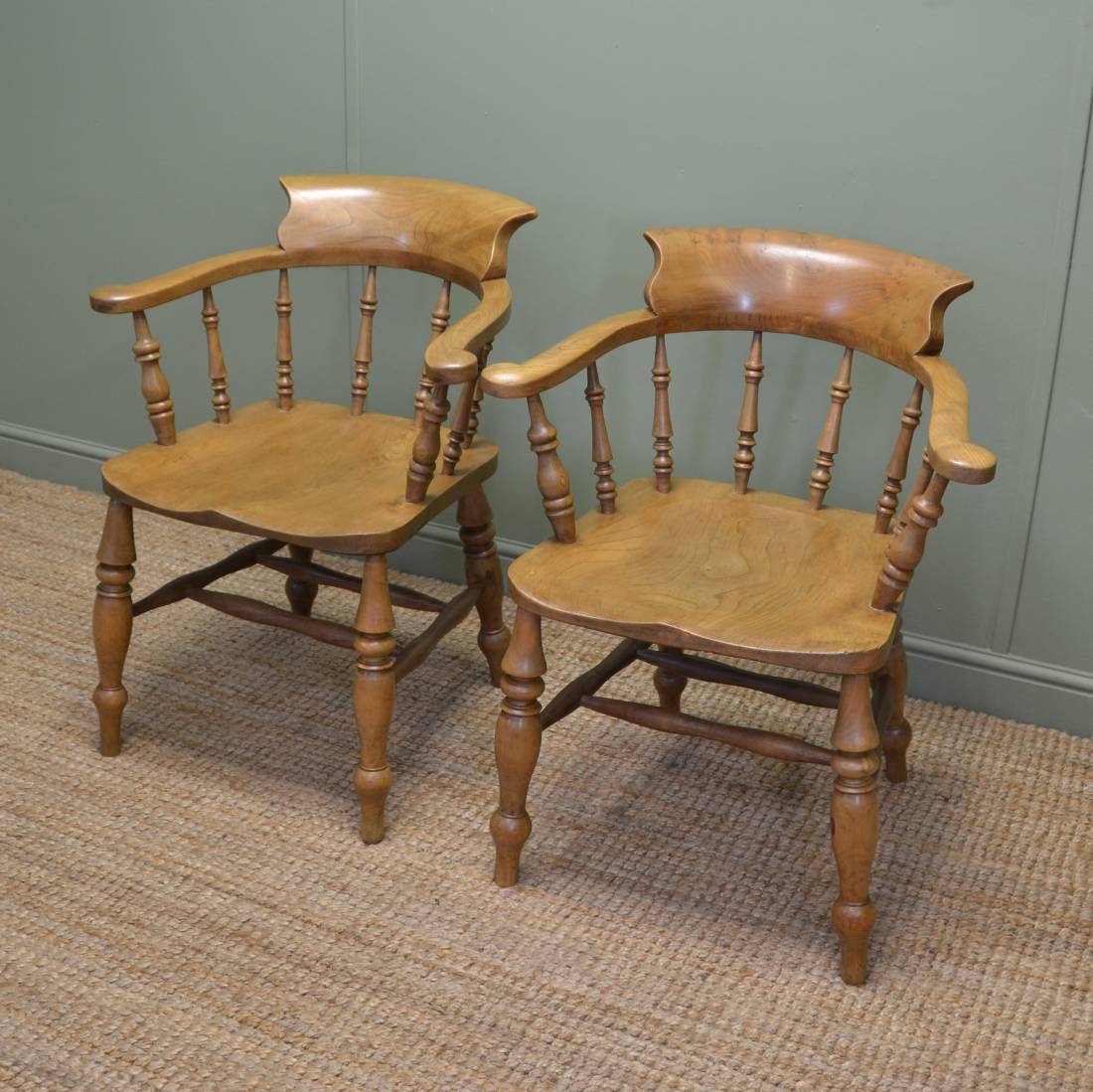
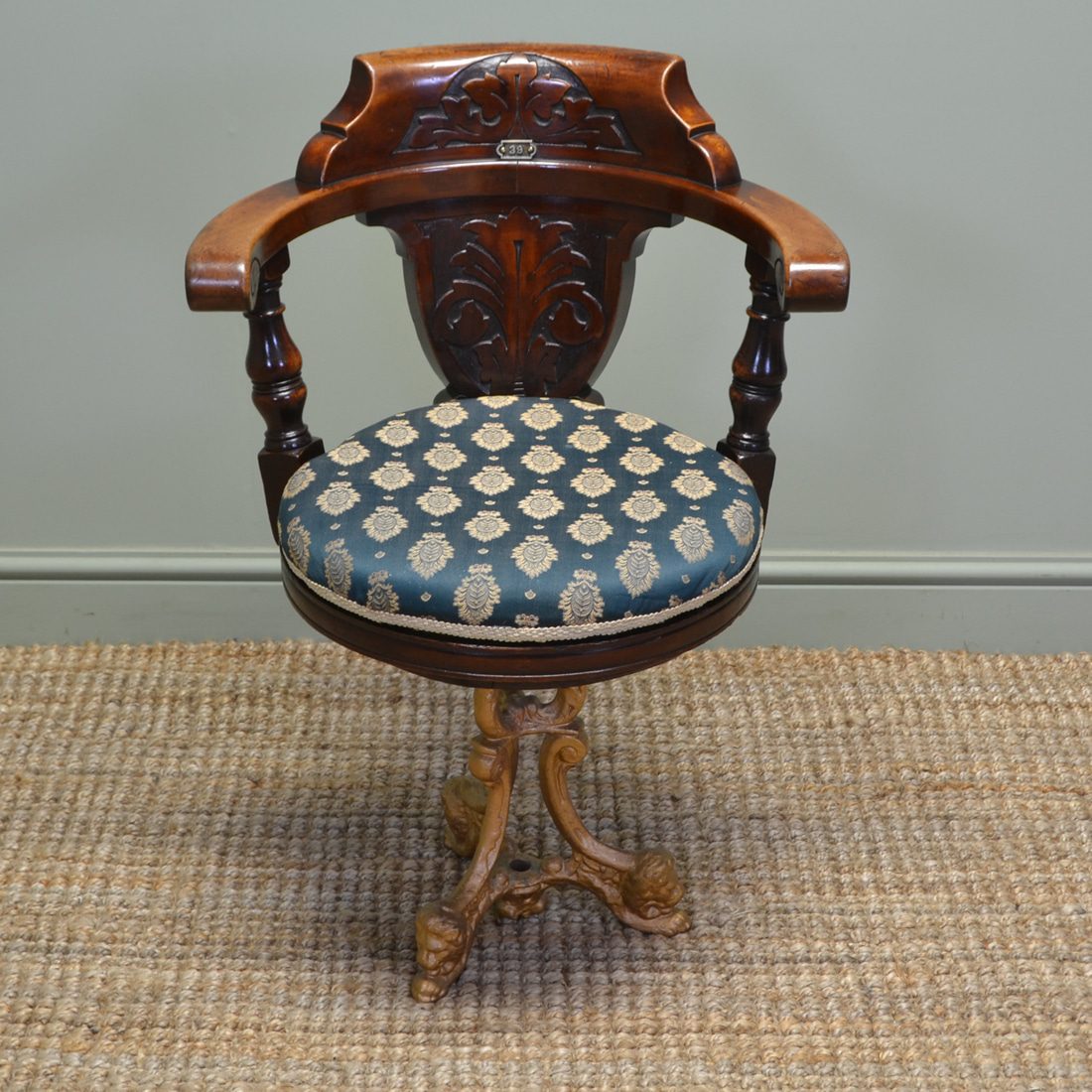
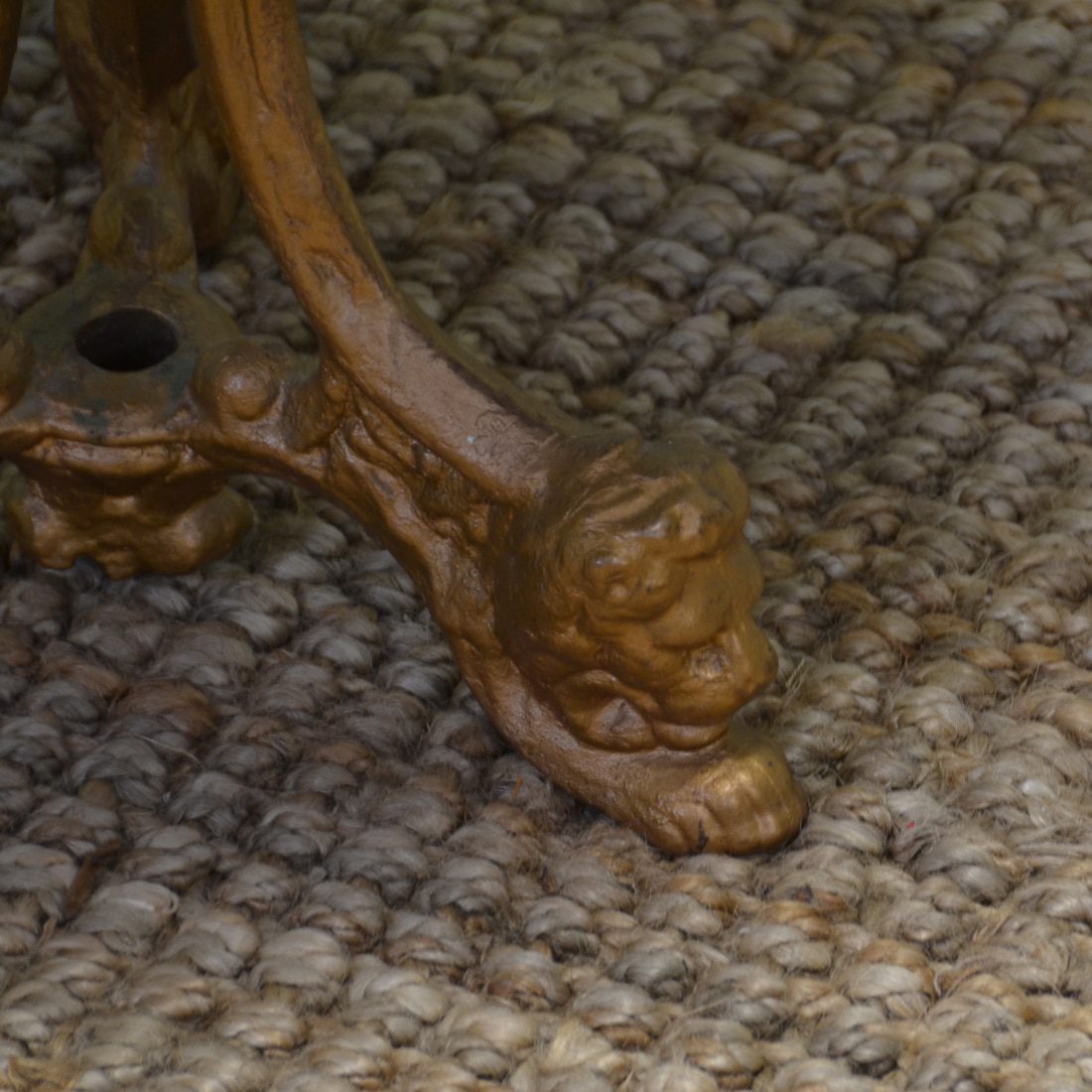
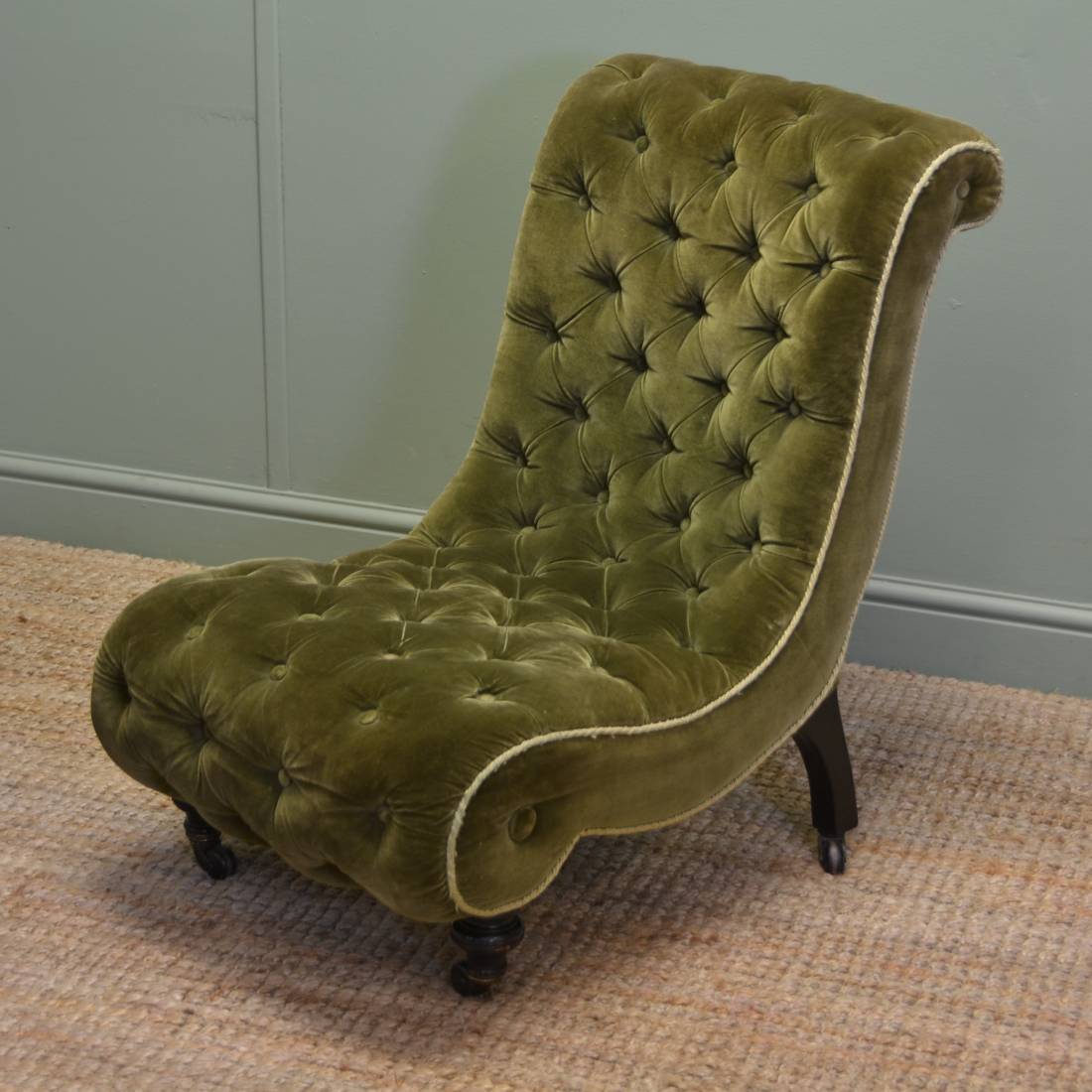
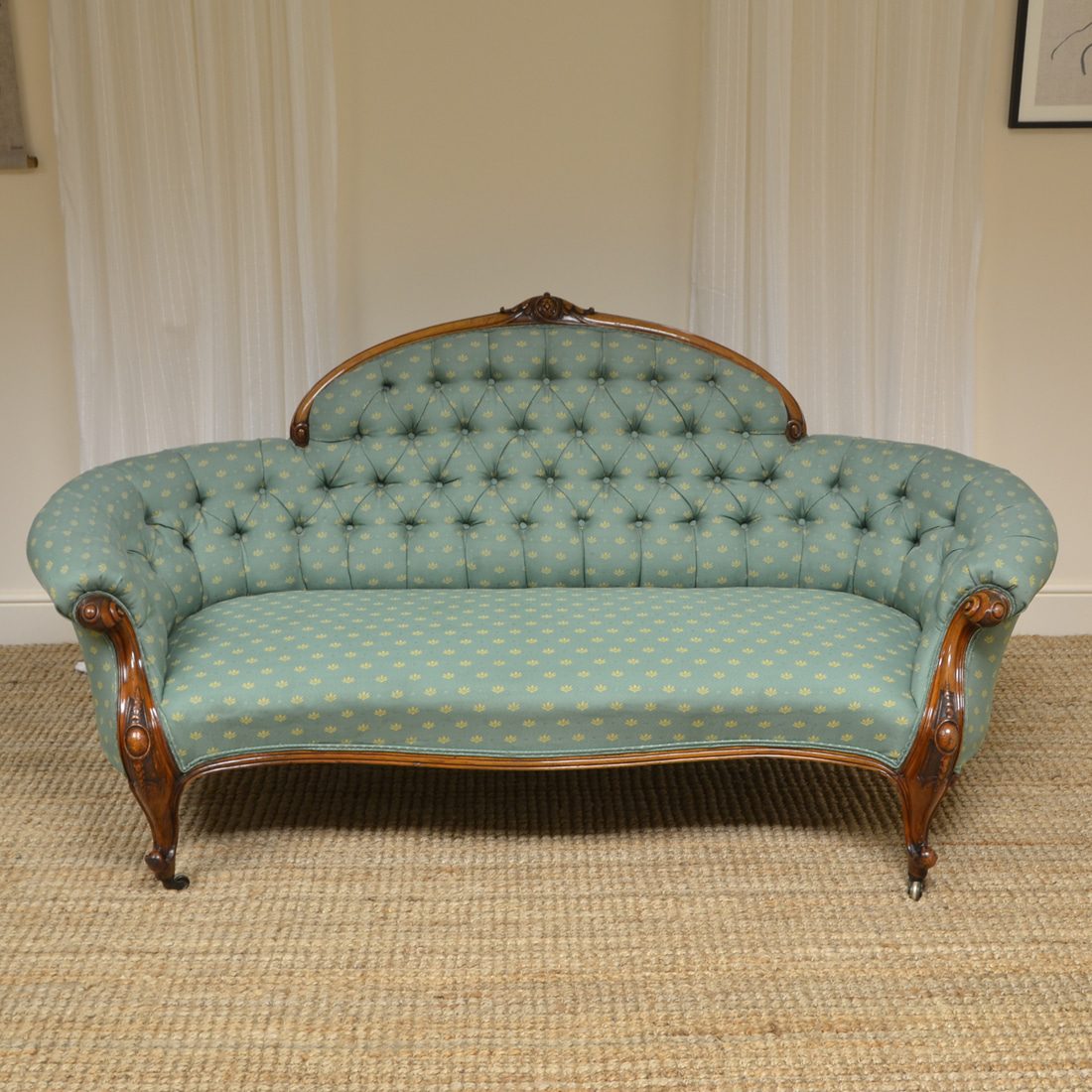
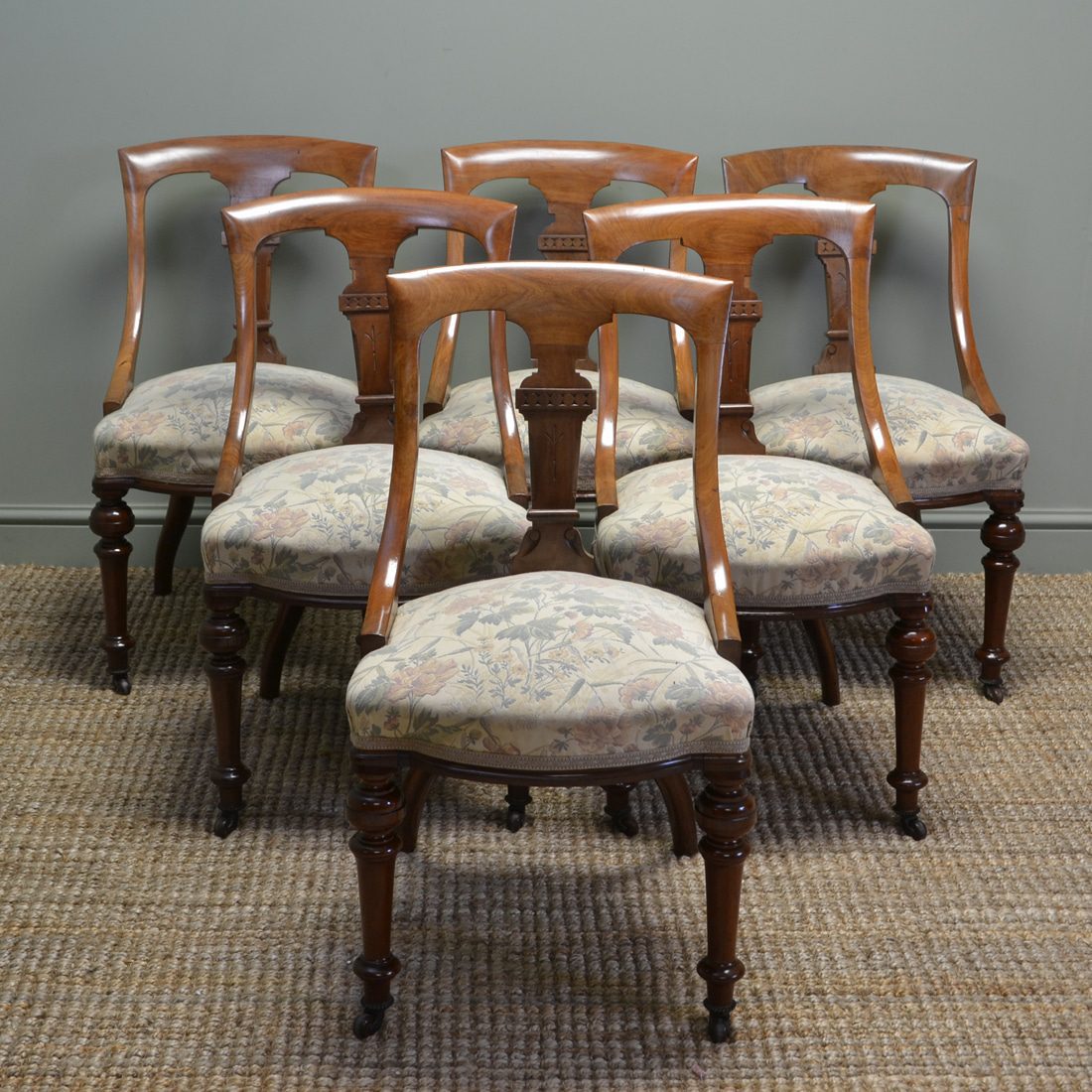
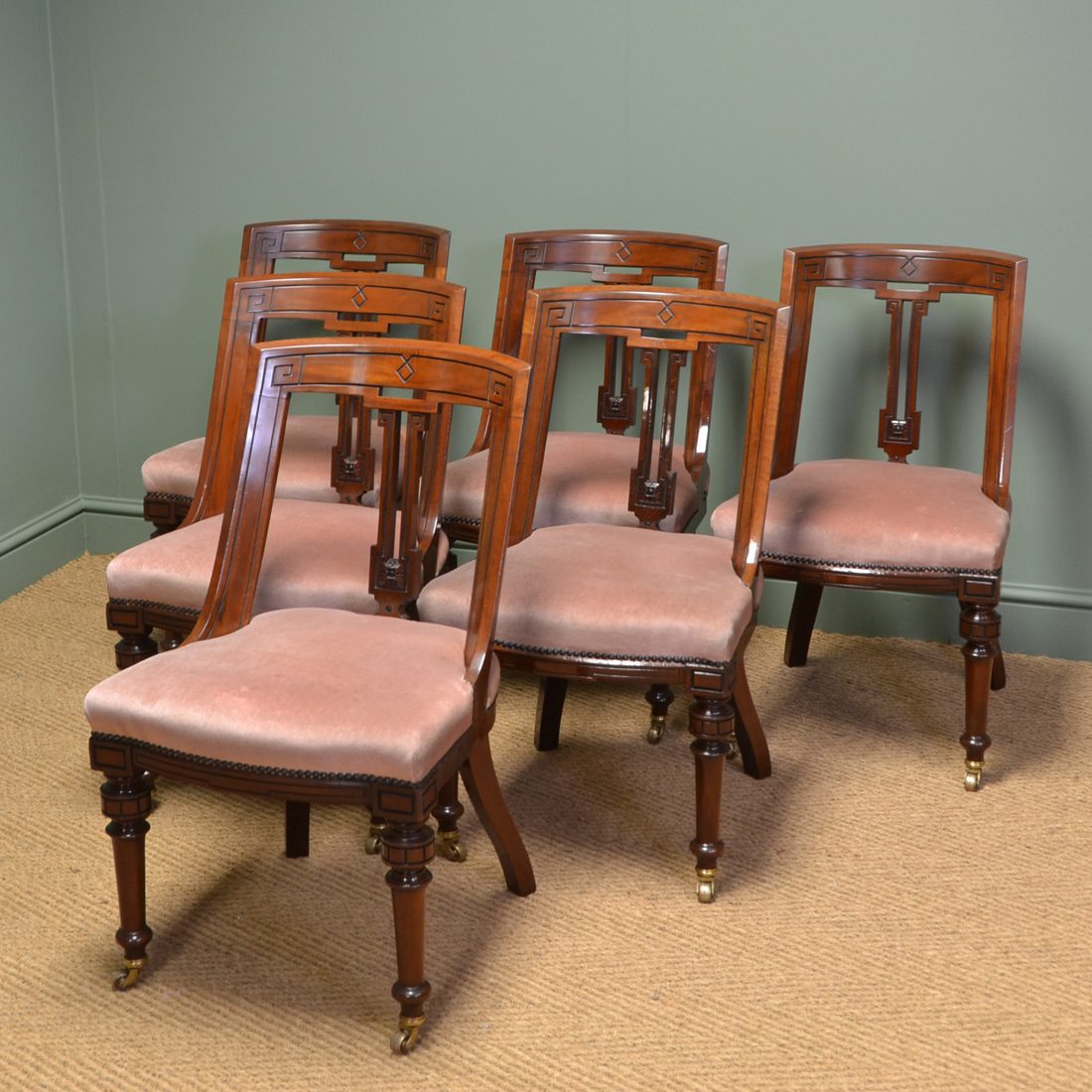
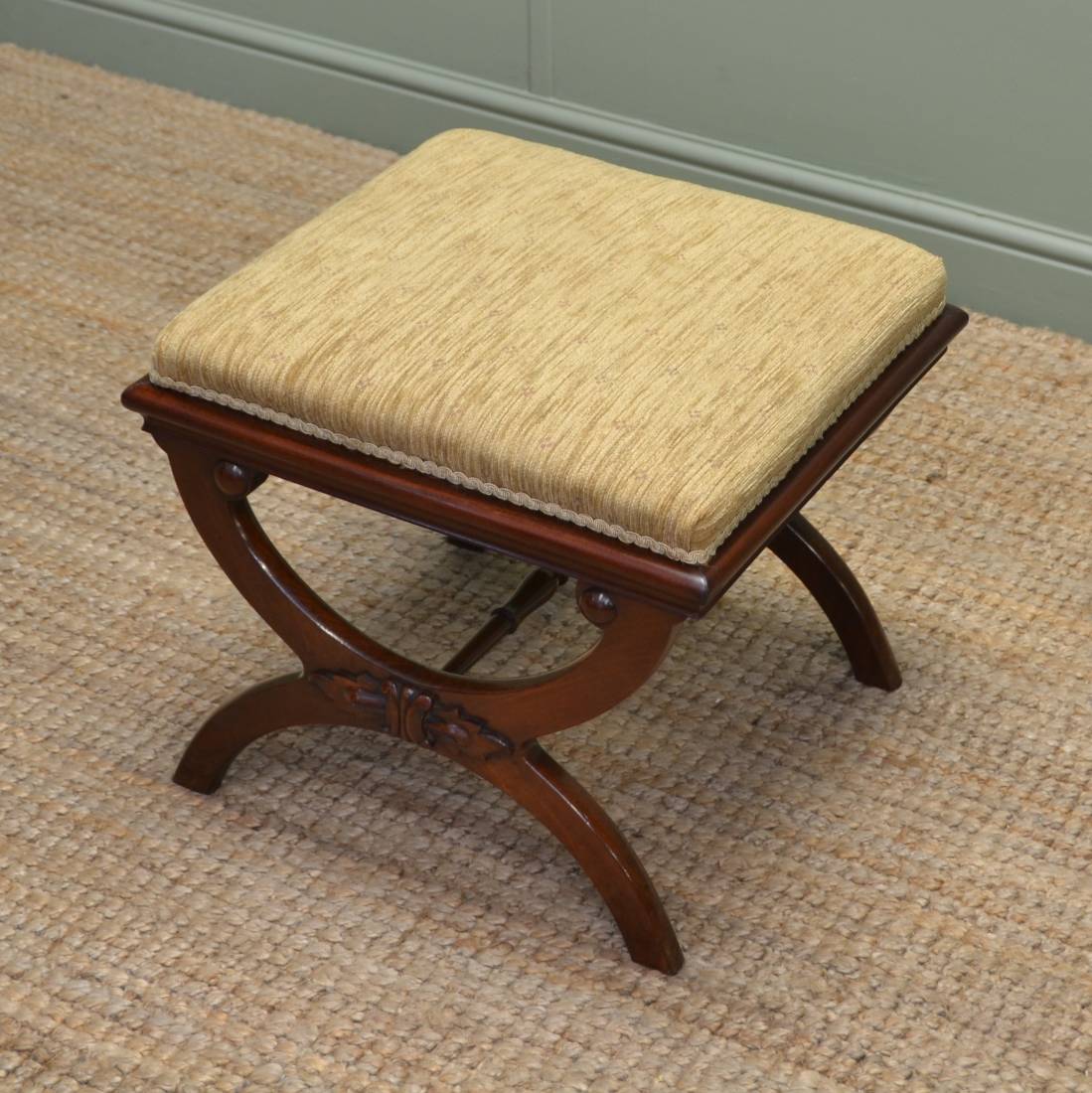
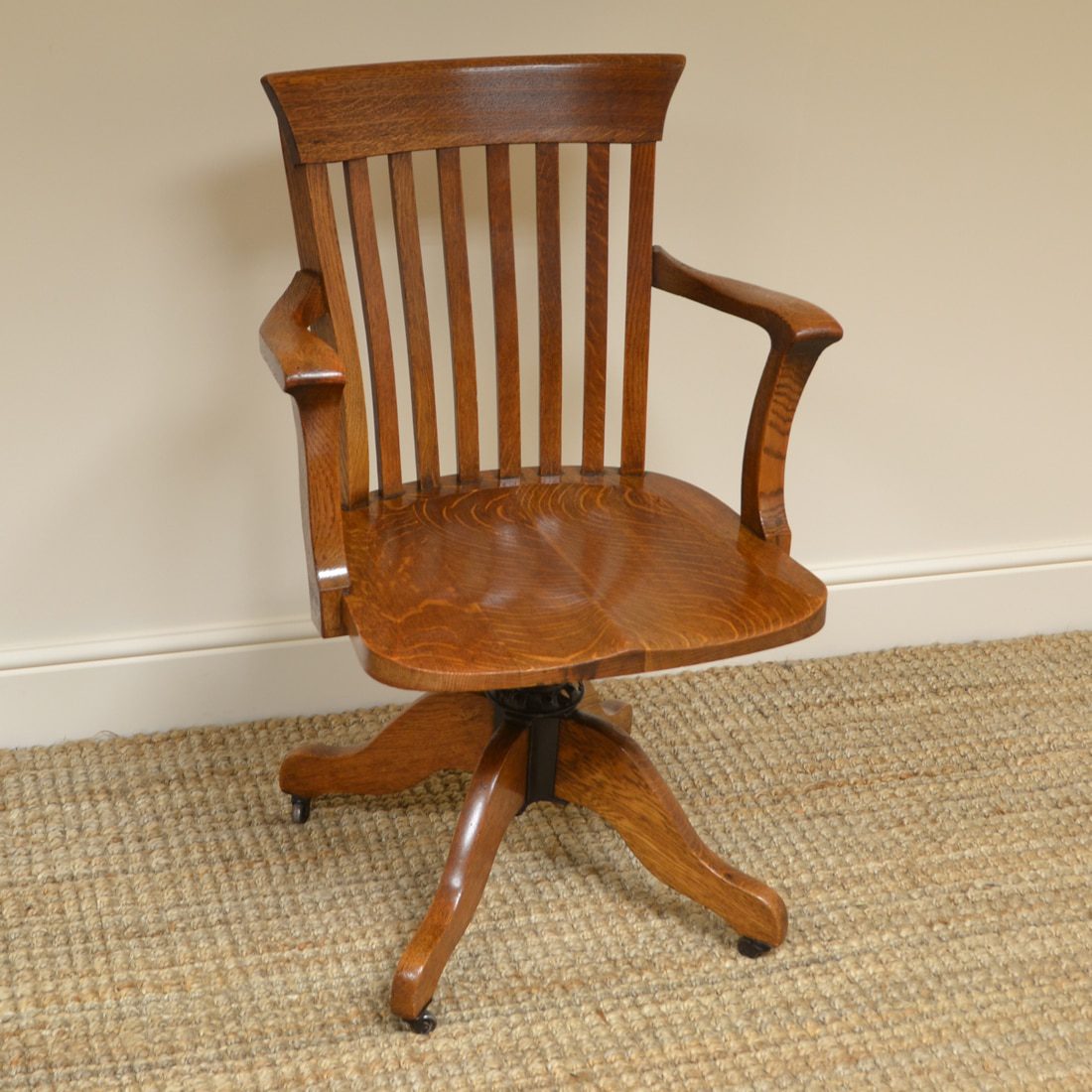
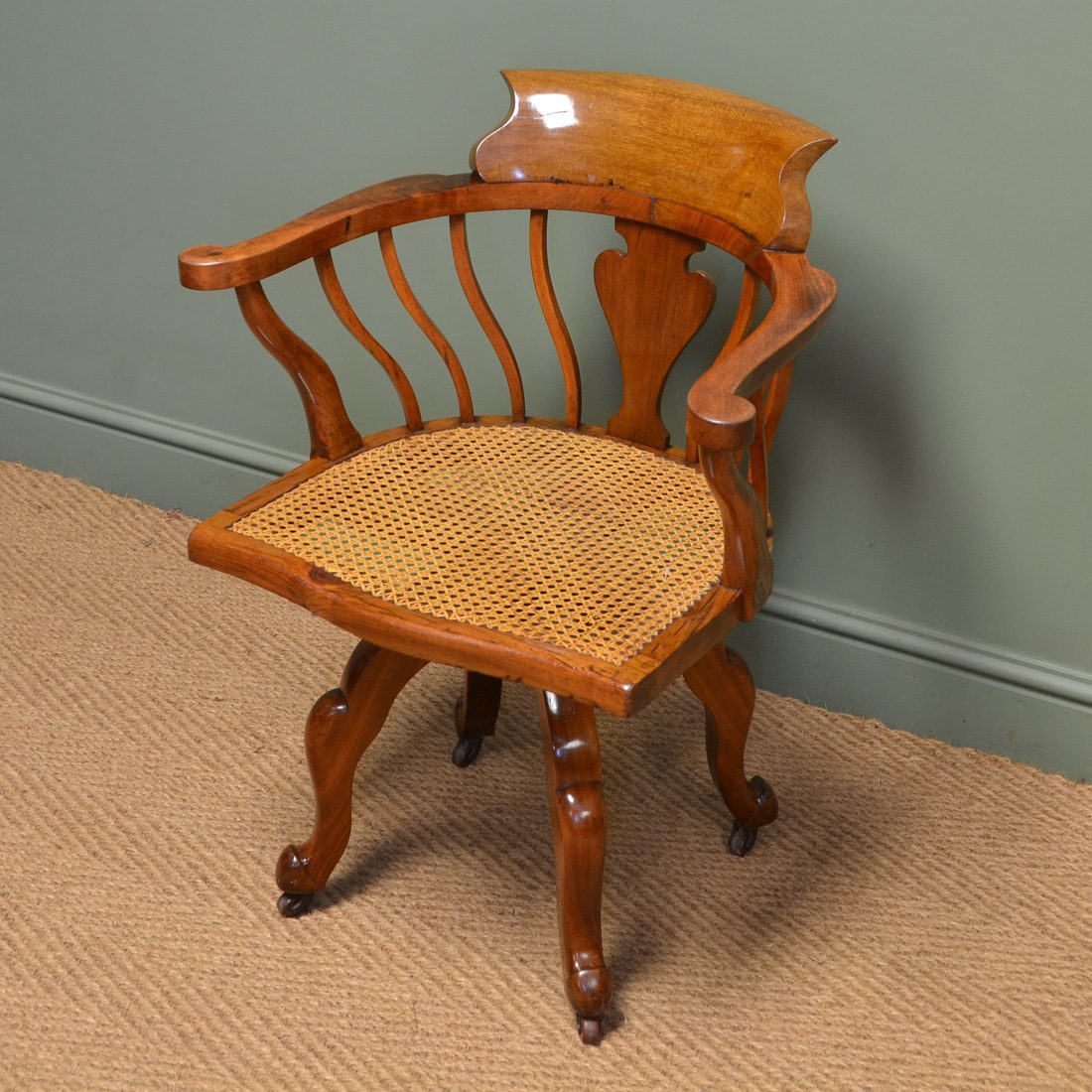
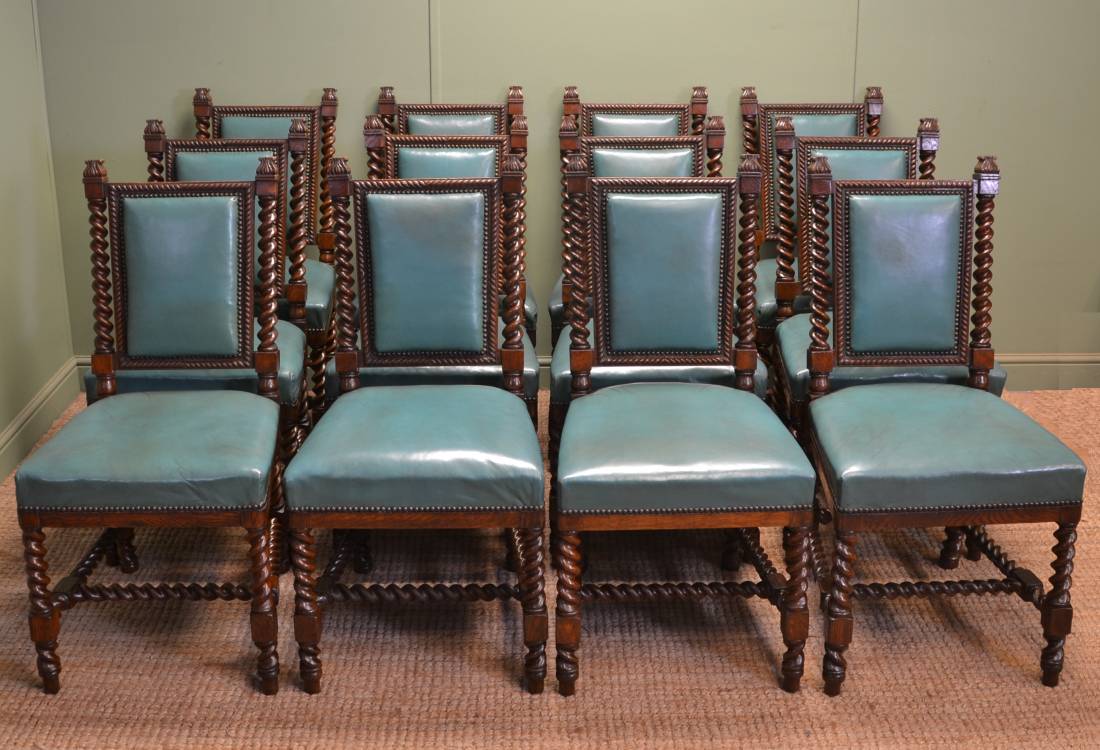
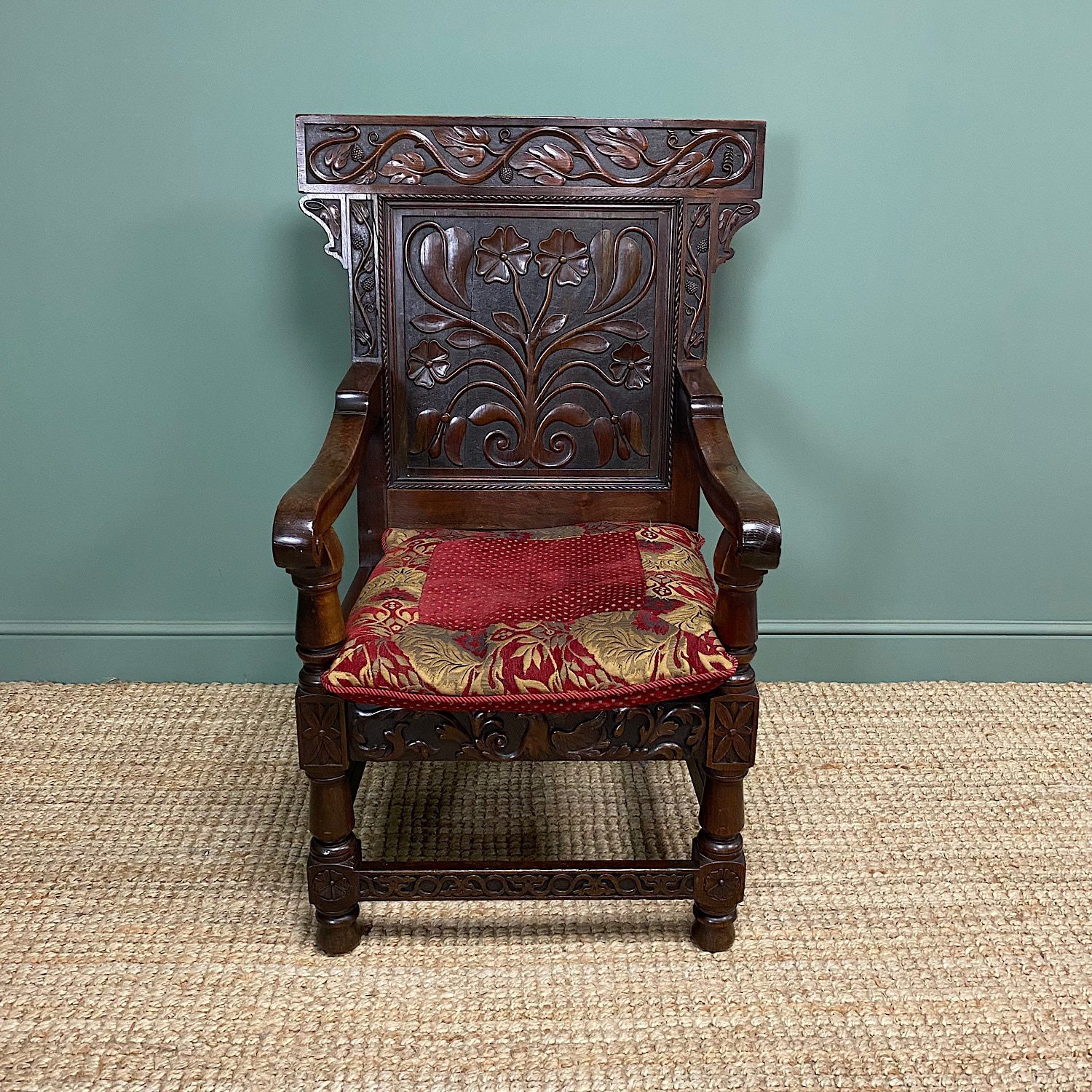
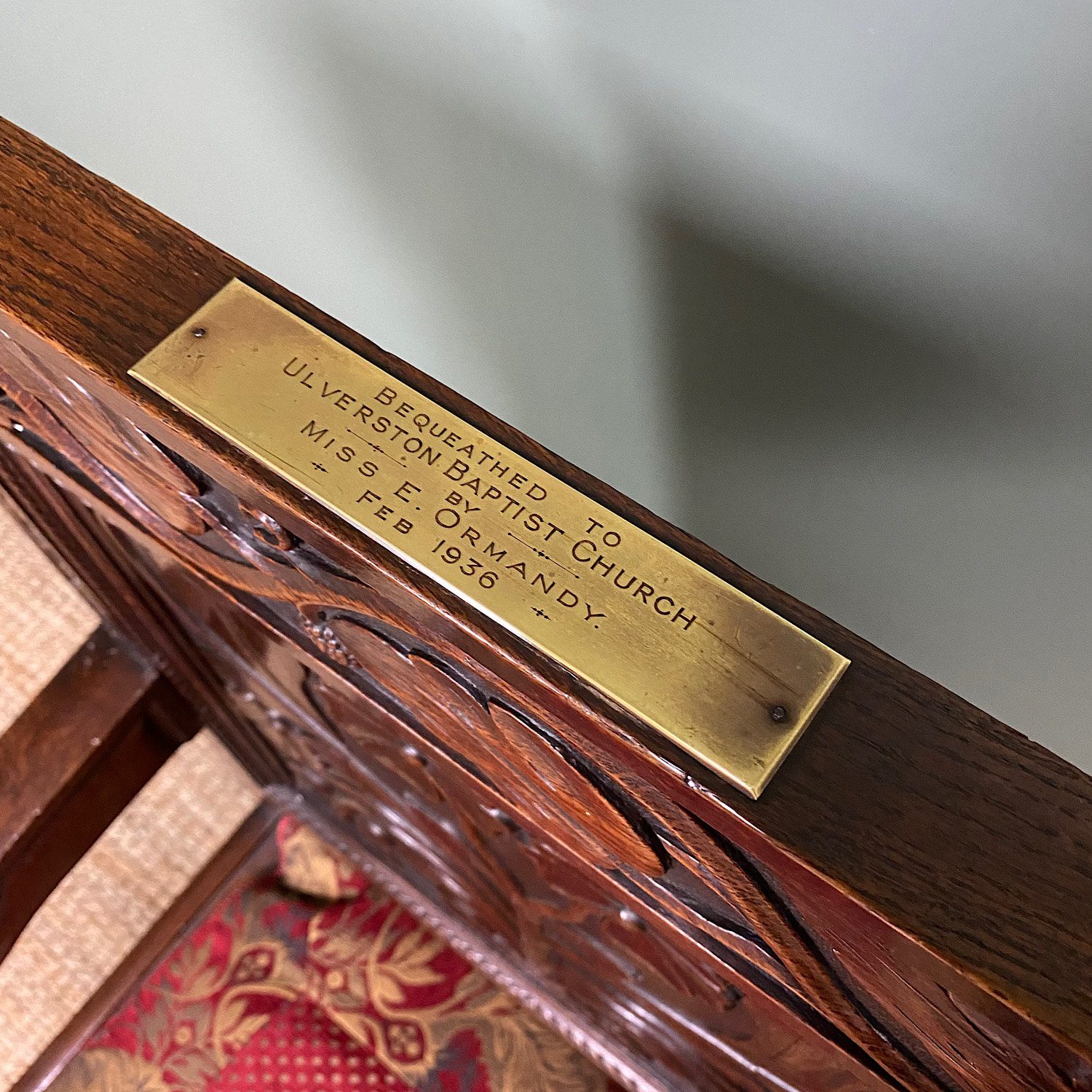
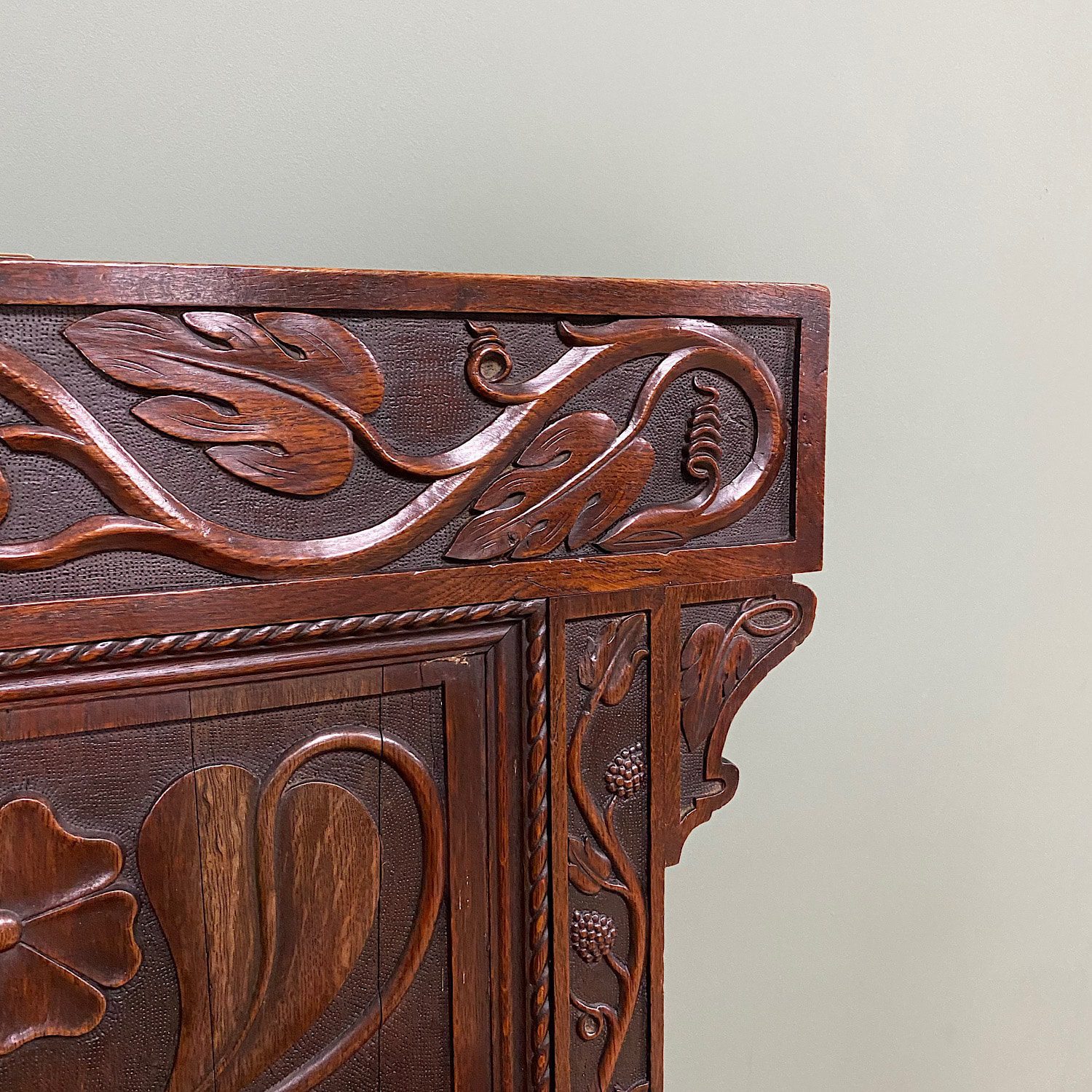
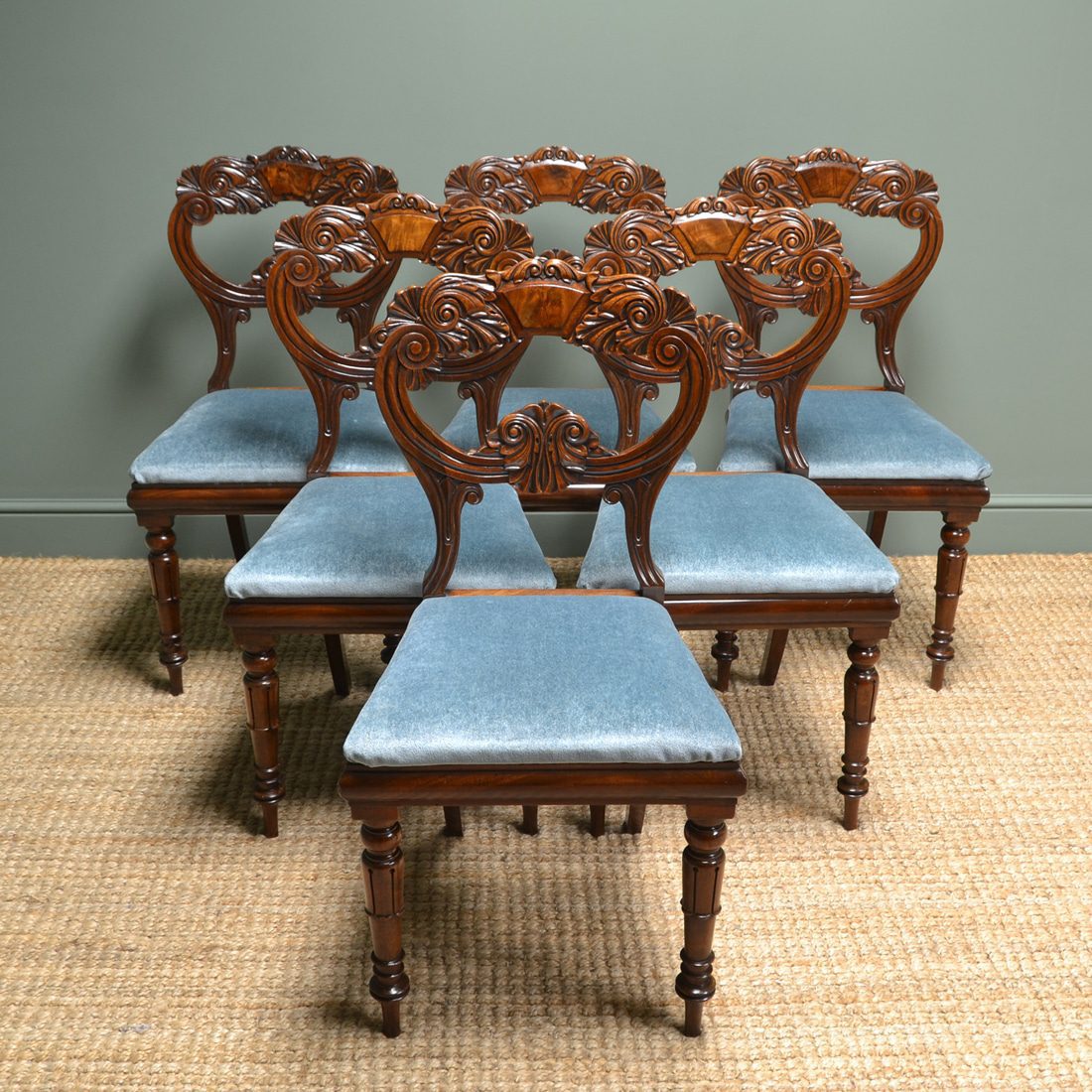
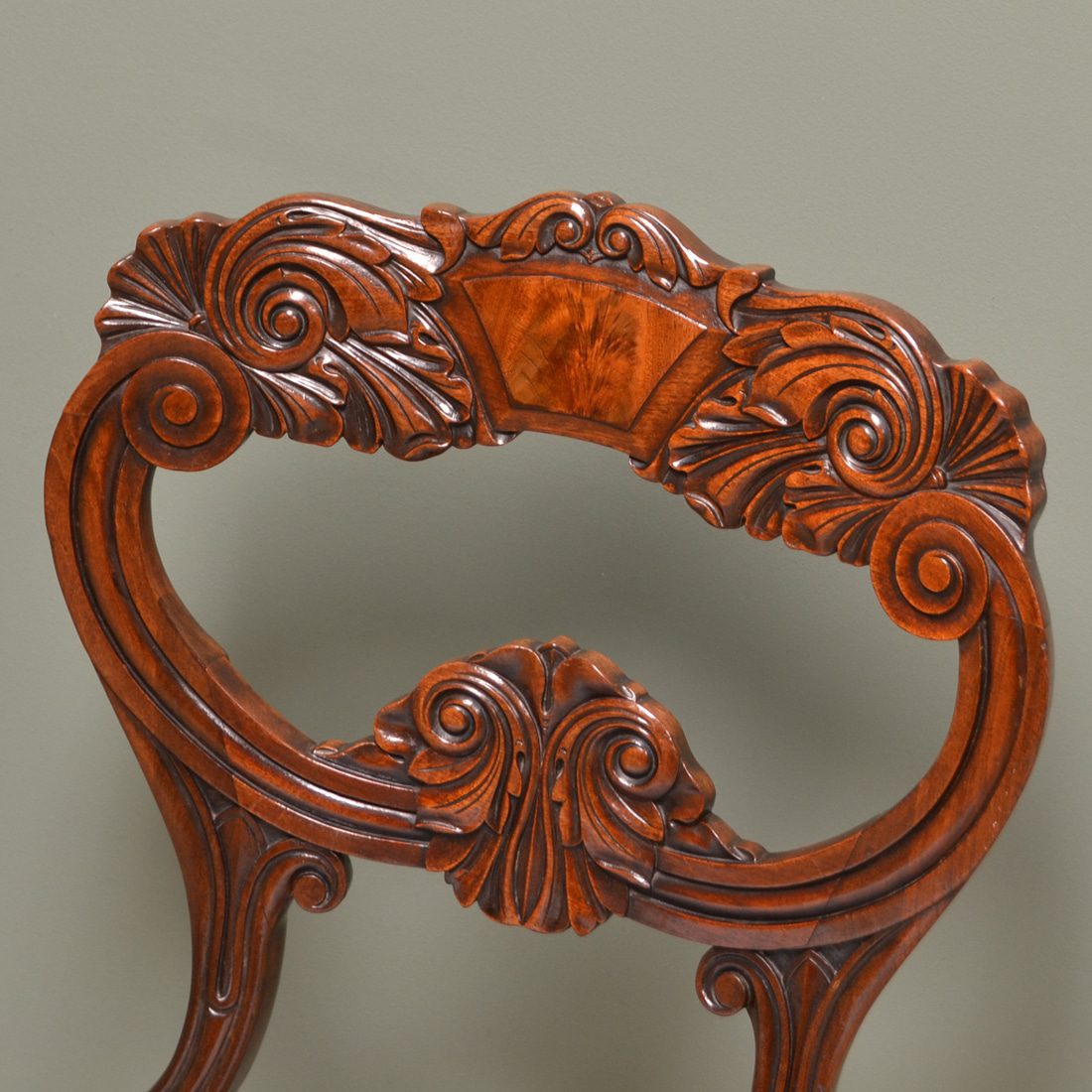
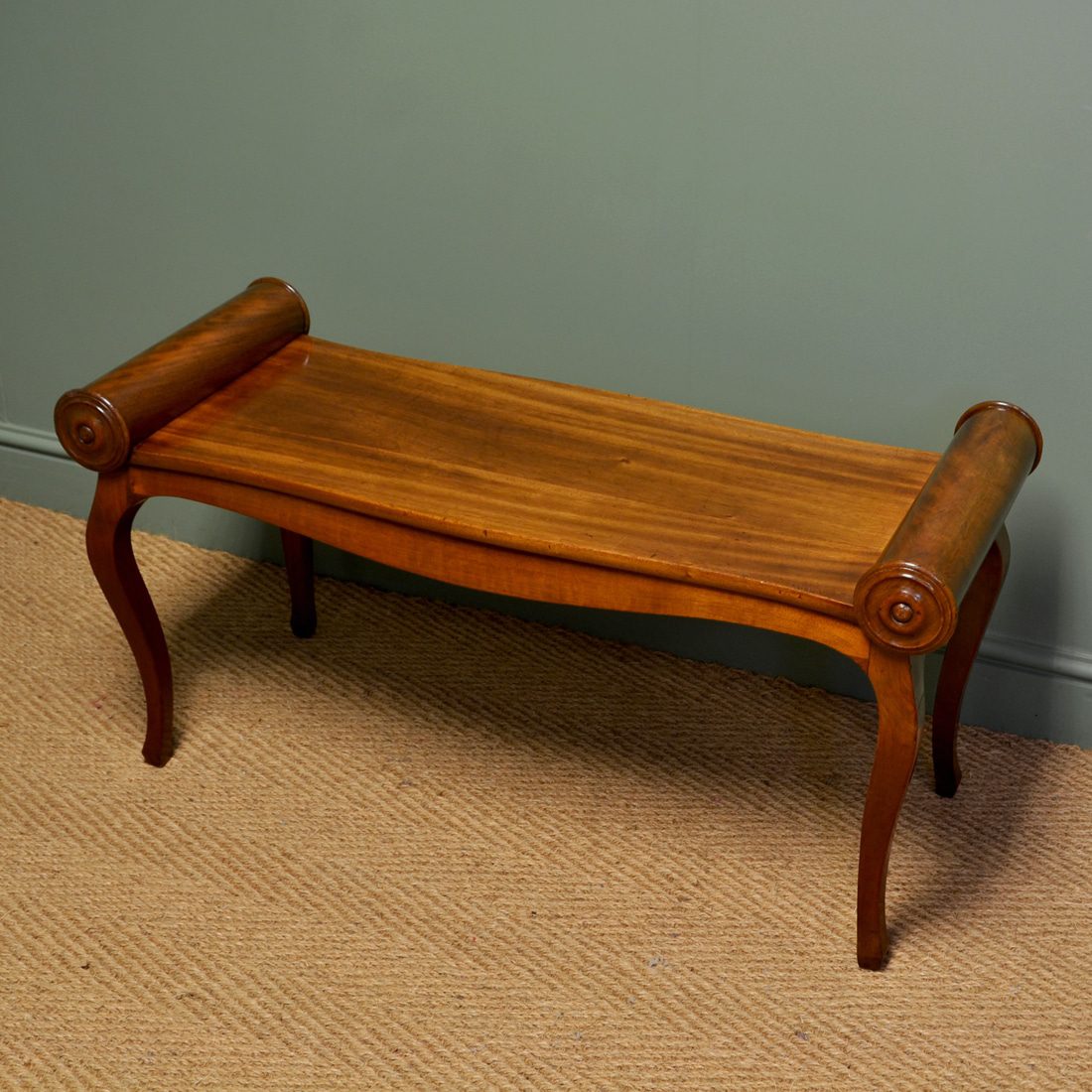
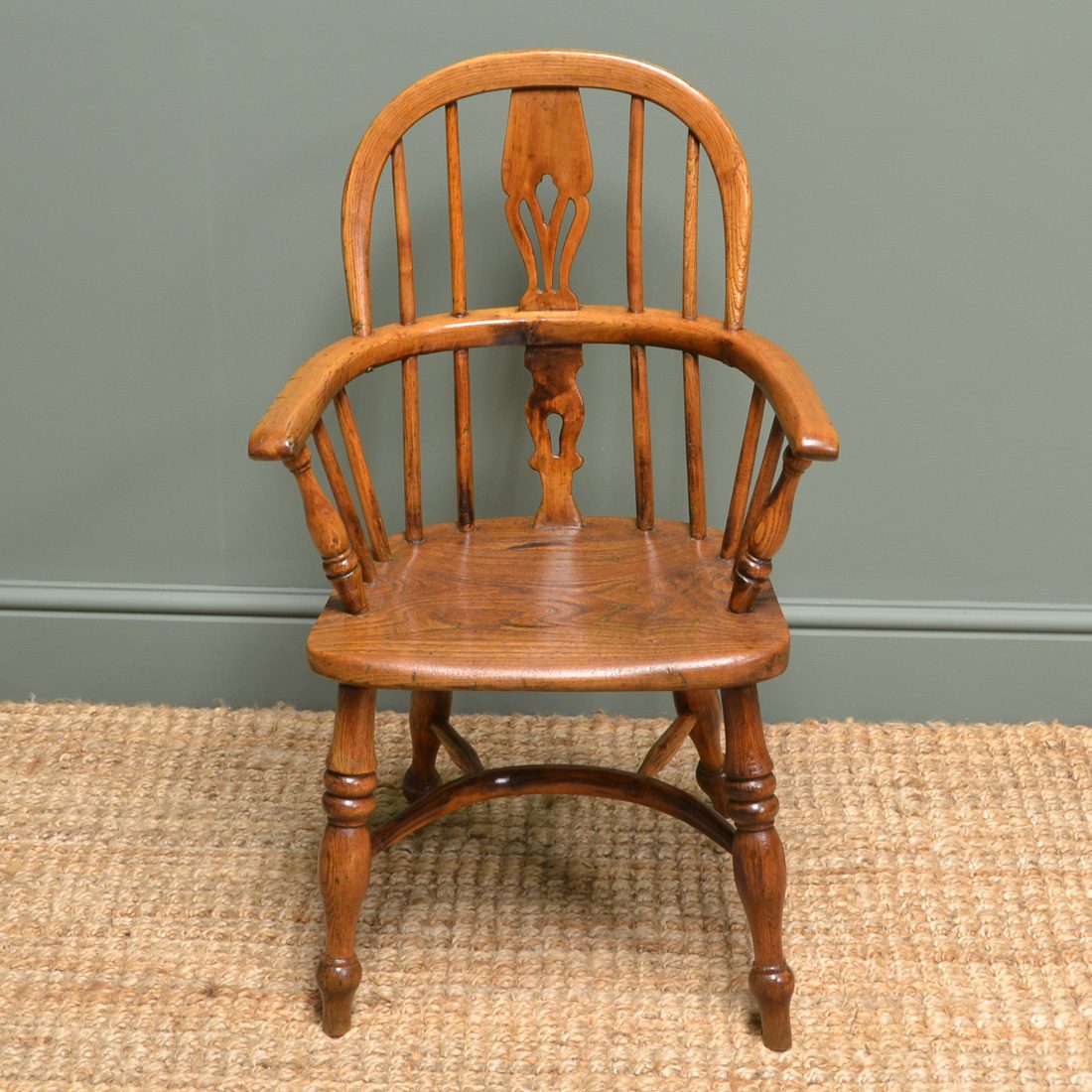
4 Comments. Leave new
How can I confirm my dining table and chairs are actual Hepplewhite? I am lead to believe the table and two chairs are original and my grandfather had six more chairs made to match.
Hi
You would have to look at the construction and the timber used to determine the age. I would be very difficult, unless an expert looked at these in the flesh as there are a lot of good copies of the same designs from the Victorian period.
Is there such a thing as a ‘crinoline dining chair’ it is made of mahogany and has an upholstered back and seat.
Thank tou
Hi
You can find chairs with a crinoline stretcher, but unsure on a ‘crinoline chair’
Many thanks
James